7800 XT vs 4070 Ti: how well AMD's latest stack up against Nvidia's powerhouse
Who wins the battle between the 7800 XT vs 4070 Ti?
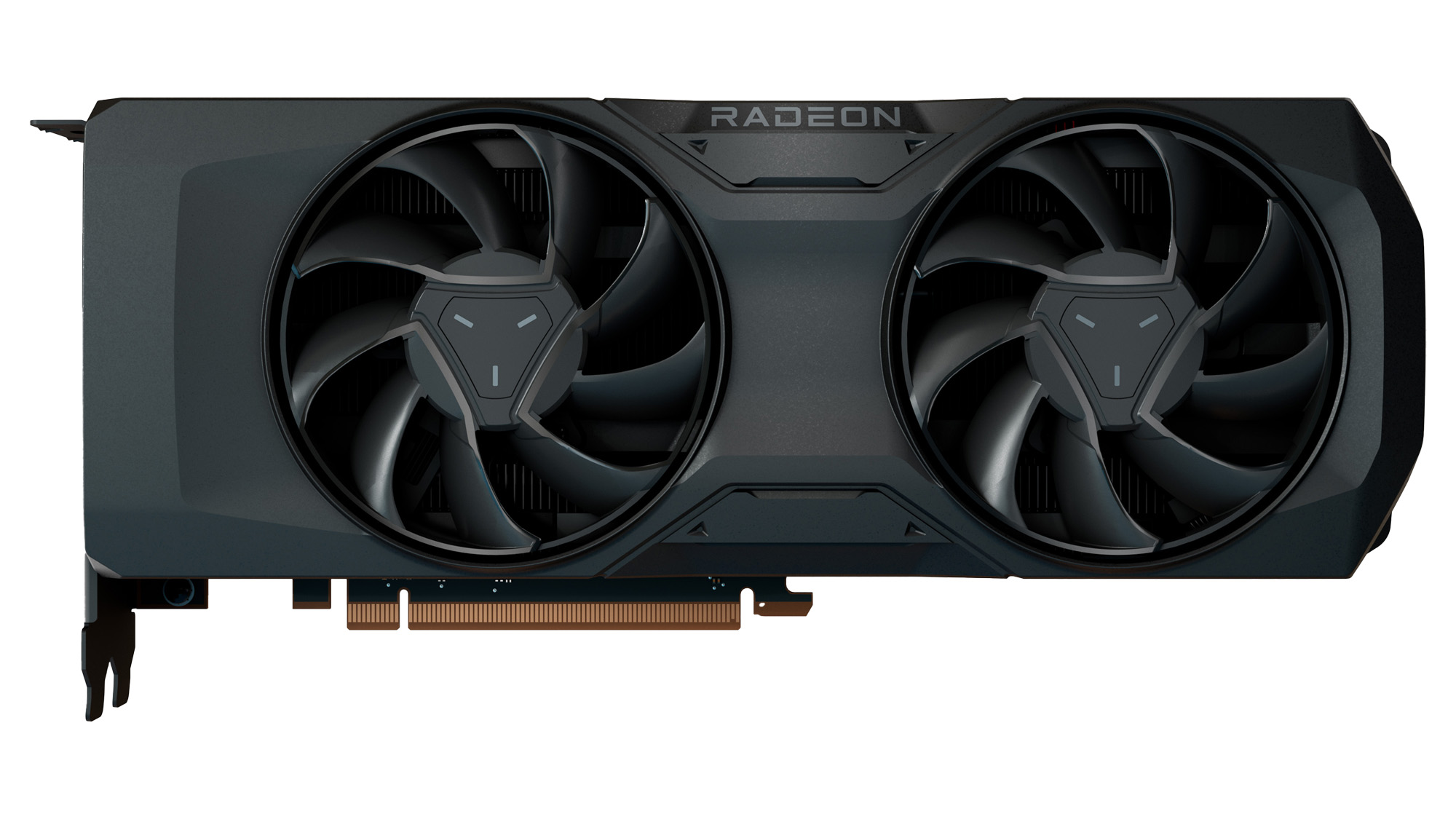
Shaders: 3,840
Ray Processors: 60
AI Processors: 120
Boost Clock: 2,430 MHz
VRAM: 16GB GDDR6 @ 19.4 Gbps effective
TGP: 263W
The AMD Radeon RX 7800 XT is going to be a fantastic graphics card for a lot of gamers out there who don't have the cash to shell out for Nvidia's much more expensive rival offering. Overall, it battles the RTX 4070 to a draw, but its performance is only marginally better than the RX 6800 XT
For
- Better rasterization than RTX 4070
- Improved ray tracing
- Much cheaper than rival
Against
- Only marginally better than RX 6800 XT
- Power hungry
- Lags Nvidia in ray tracing
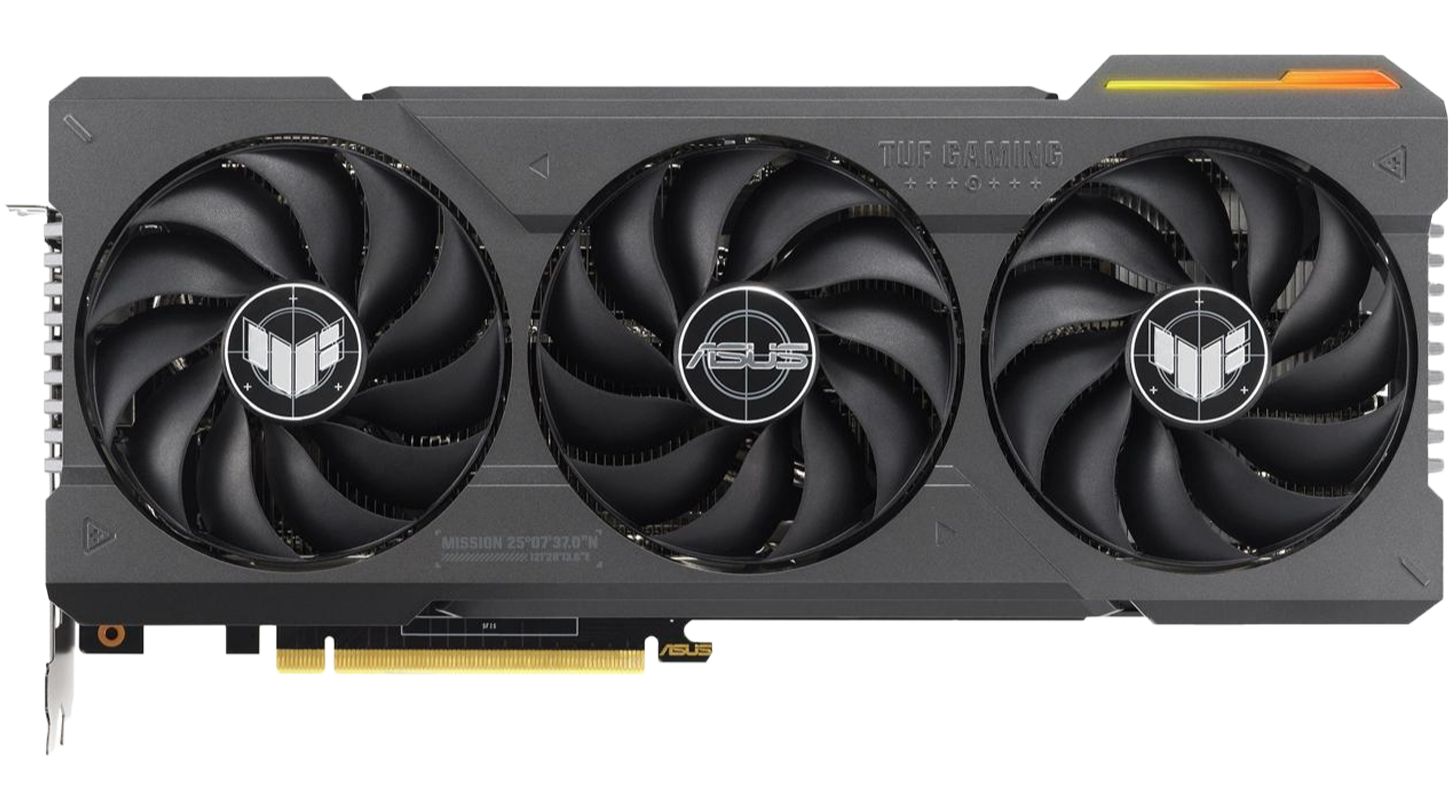
Shaders: 7,680
Ray processors: 60
AI Processors: 240
Boost Clock: 2,610 MHz
VRAM: 12GB GDDR6X @ 21 Gbps effective
TGP: 285W
The Nvidia GeForce RTX 4070 Ti looks suspiciously like the 'unlaunched' Nvidia RTX 4080, especially because its performance is among the best you can find right now. Its price puts it as the cheapest next-gen graphics card available (at least technically), and features like DLSS 3 offer even more ground-breaking gaming performance.
For
- Excellent gaming performance
- An excellent "budget" creative workstation GPU
- Cheapest premium GPU on the market
Against
- Expensive
- Only 12GB VRAM
- 16-pin 12VHPWR connector required
7800 XT vs 4070 Ti: putting AMD's latest and Nvidia favorite to the test
Now that the AMD has released it's two latest midrange GPUs, plenty of people are asking how the 7800 XT vs 4070 Ti stack up against each other.
I've tested both cards extensively, including a huge battery of synthetic, creative, and gaming benchmarks to lay out the performance of both cards so you can see which is the better card by the raw numbers.
That's not the only thing that matters, though, especially if you're on something of a budget and your eyes are watering at some of the Nvidia GeForce RTX 4070 Ti prices we're seeing online, none of which anyone would call cheap.
And while the AMD Radeon RX 7800 XT isn't the best cheap graphics card on the market, it's definitely one of the best graphics cards there is right now, even if there are some trade-offs to be made.
With all that said, it's ultimately about the numbers, the features, and whether you can even buy one card over the other given their prices at the time of this comparison. So, with all that in mind, I'm going to lay it all out so you can find out which is the right graphics card for your rig.
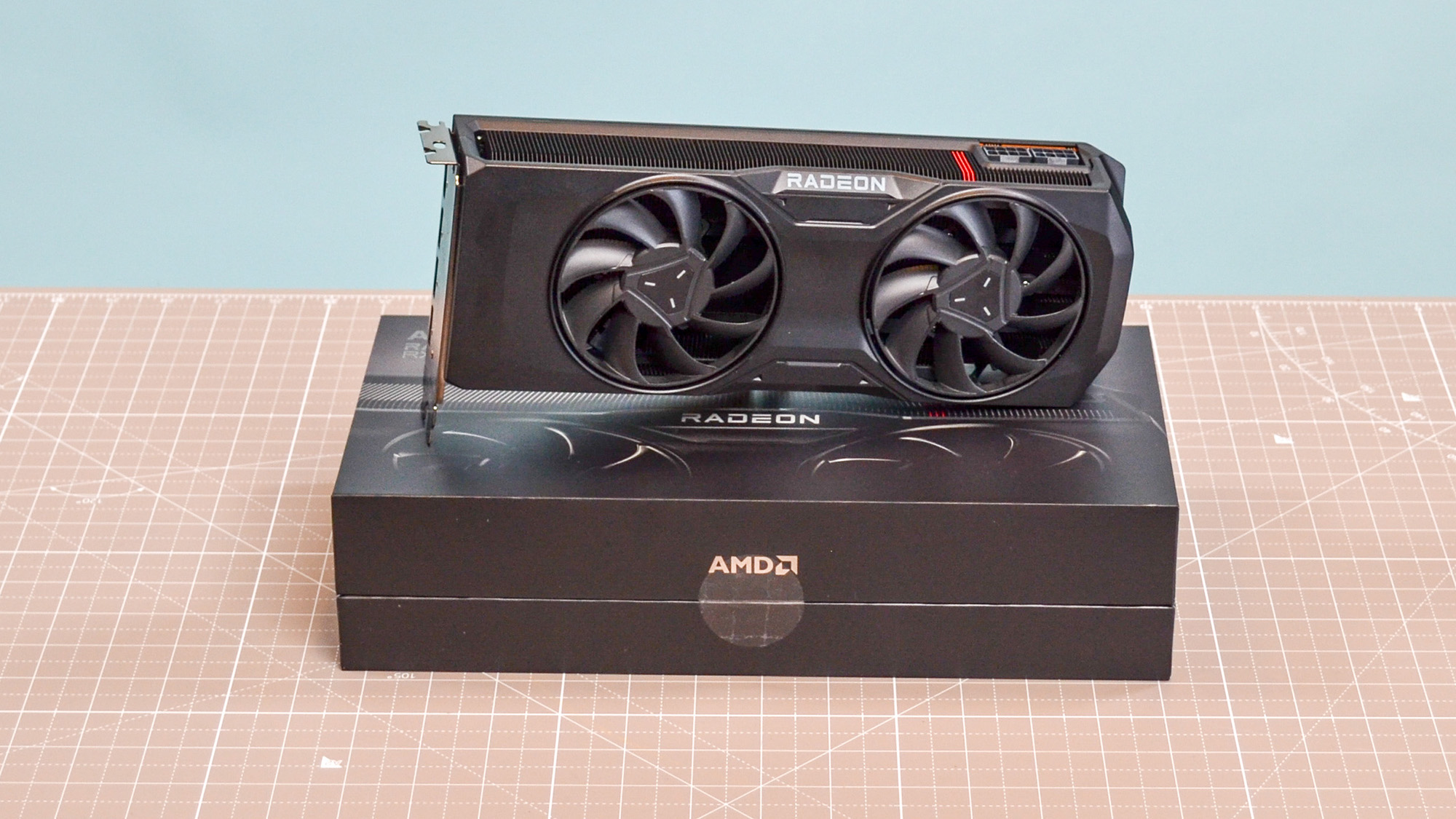
7800 XT vs 4070 Ti: Price
In terms of price, the RX 7800 XT has a retail MSRP of $499.99, versus an official MSRP for the RTX 4070 Ti of $799.99.
I have to caveat "official" on the latter, since it doesn't have a Founders Edition from Nvidia, meaning any RTX 4070 Ti you're going to find on sale is from a third-party manufacturer like Asus or Gigabyte.
These manufacturers don't have to charge Nvidia's MSRP, even for non-overclocked cards. And without an official reference card from Nvidia on sale to keep an anchor on the prices other manufacturers might charge, you will almost always see these prices creeping upward from their initial sale price as demand remains high.
AMD, meanwhile, has a reference card for the RX 7800 XT, which means that even though third-party AMD partners can also charge whatever they want, with AMD's own card on sale at MSRP to undercut them, they can't go too out of pocket if they want their cards to sell.
There is also the matter of value, as the performance-to-price ratio of the RX 7800 XT is honestly much better than the RTX 4070 Ti. You'll get about 29% more performance per dollar with the RX 7800 XT, so if you want your dollar to go farther, the RX 7800 XT is the way to go.
- Winner: AMD Radeon RX 7800 XT
7800 XT vs 4070 Ti: Design
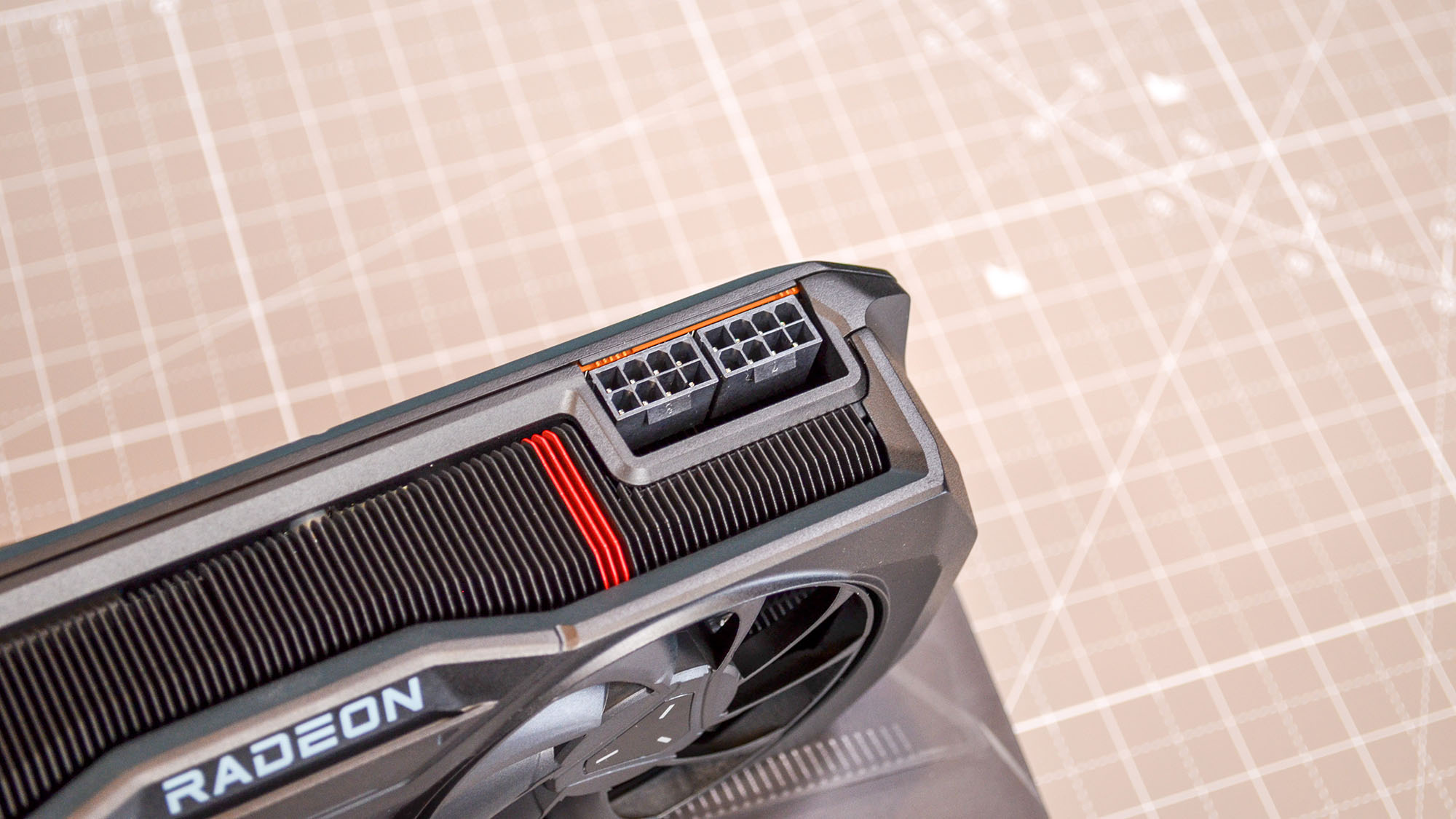
Without a reference card for the RTX 4070 Ti, the issue of design will really be up to the third-party manufacturers, but there are some points of comparison that I can make about the two cards.
First and foremost, the RTX 4070 Ti is going to require a 16-pin 12VHPWR power connector, and while every RTX 4070 Ti card you buy will have an 8-pin to 16-pin adapter, this isn't really ideal. If you have an ATX 3.0 power supply with a 16-pin cable already, this is much less of an issue. Still, the two 8-pin connectors on the RX 7800 XT will at least make things a lot less complicated for those without an ATX 3.0 power supply.
There is also a matter of power draw, with the RTX 4070 Ti pulling down 285W of power, while the RX 7800 XT has a TGP of 263W. This isn't the biggest difference, but if your PSU is really pushing the limit of how much more power it can deliver, then the RX 7800 XT is at least going to sip a little less juice.
- Winner: AMD Radeon RX 7800 XT
7800 XT vs 4070 Ti: Performance
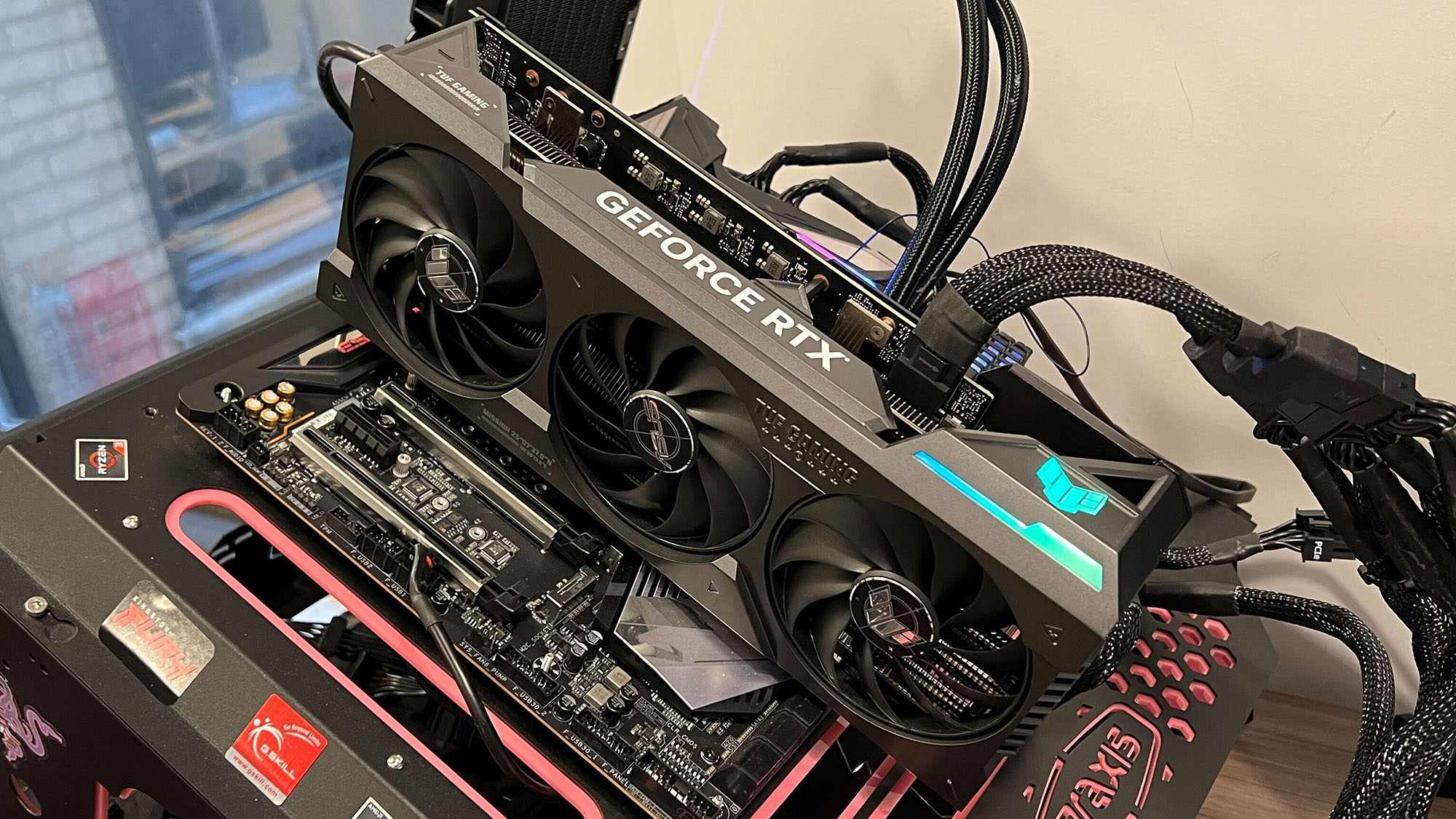
If AMD has been coming up roses up until this point, performance is where the RTX 4070 Ti absolutely runs away with it.
To be clear, the RTX 4070 Ti is really the unlaunched RTX 4080 12GB, seeing as its specs are identical to what we saw of that card before it was pulled. With that in mind, the RTX 4070 Ti technically outclasses the RX 7800 XT, so the performance results I found aren't surprising in the least.
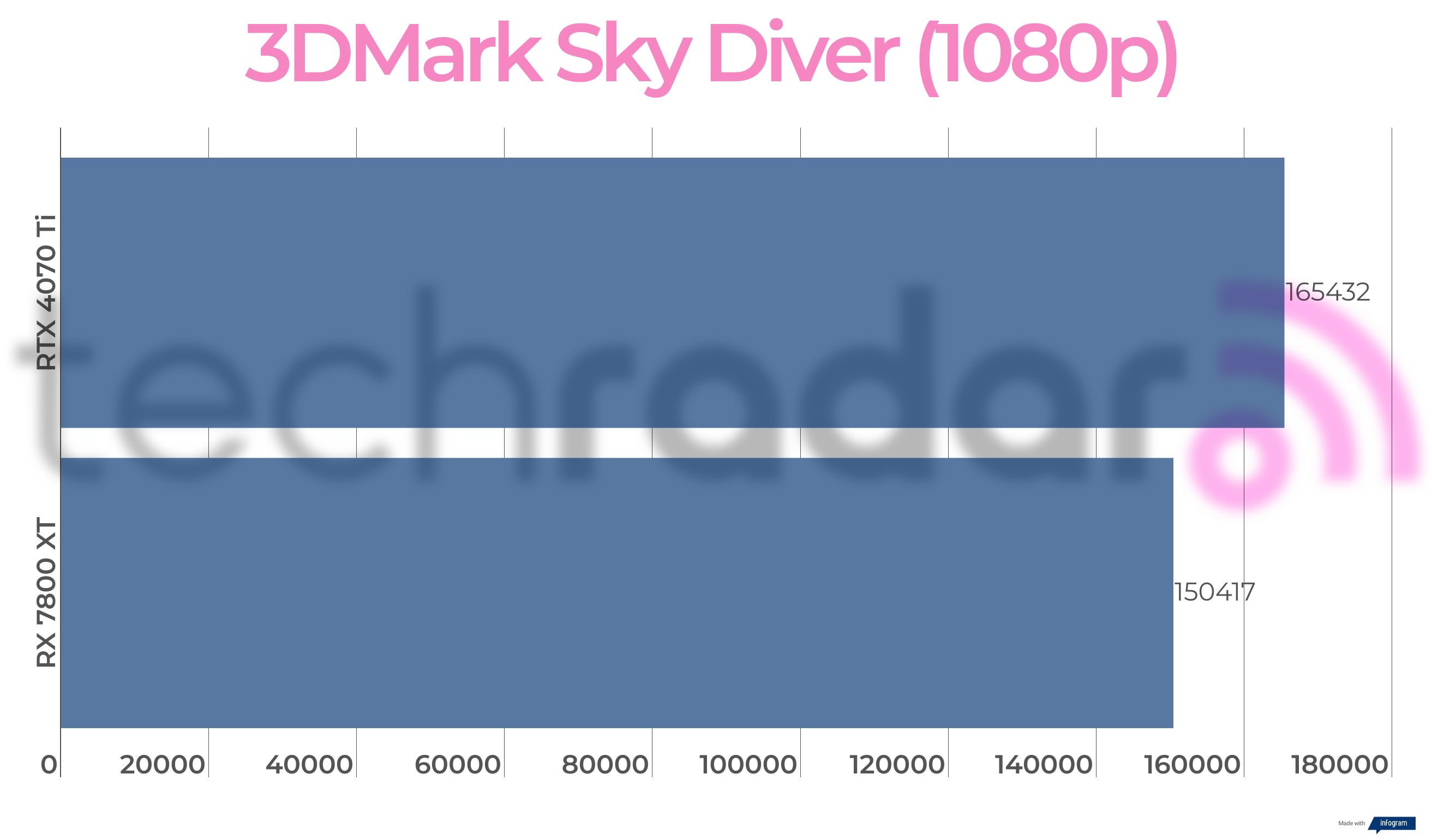
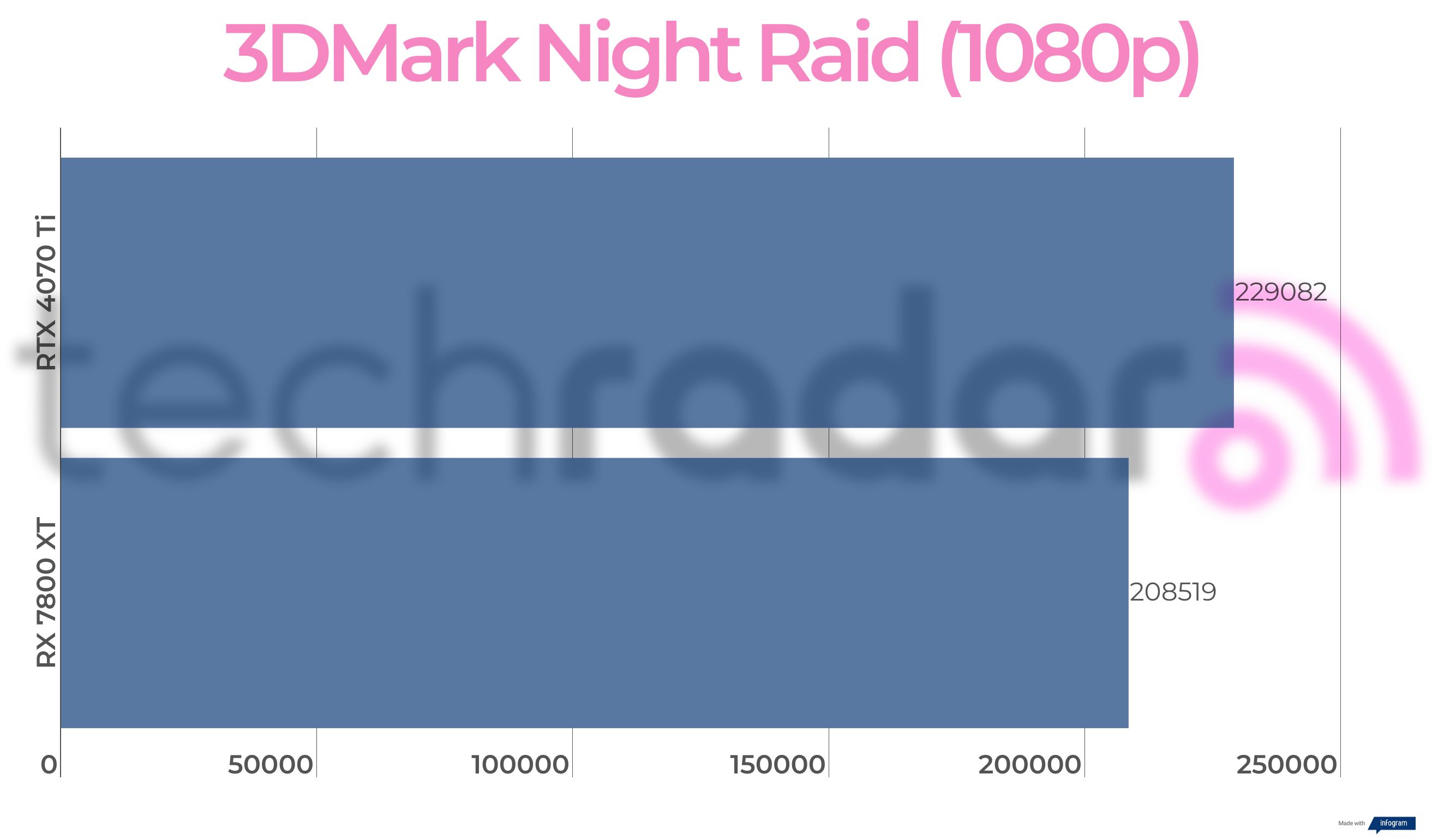
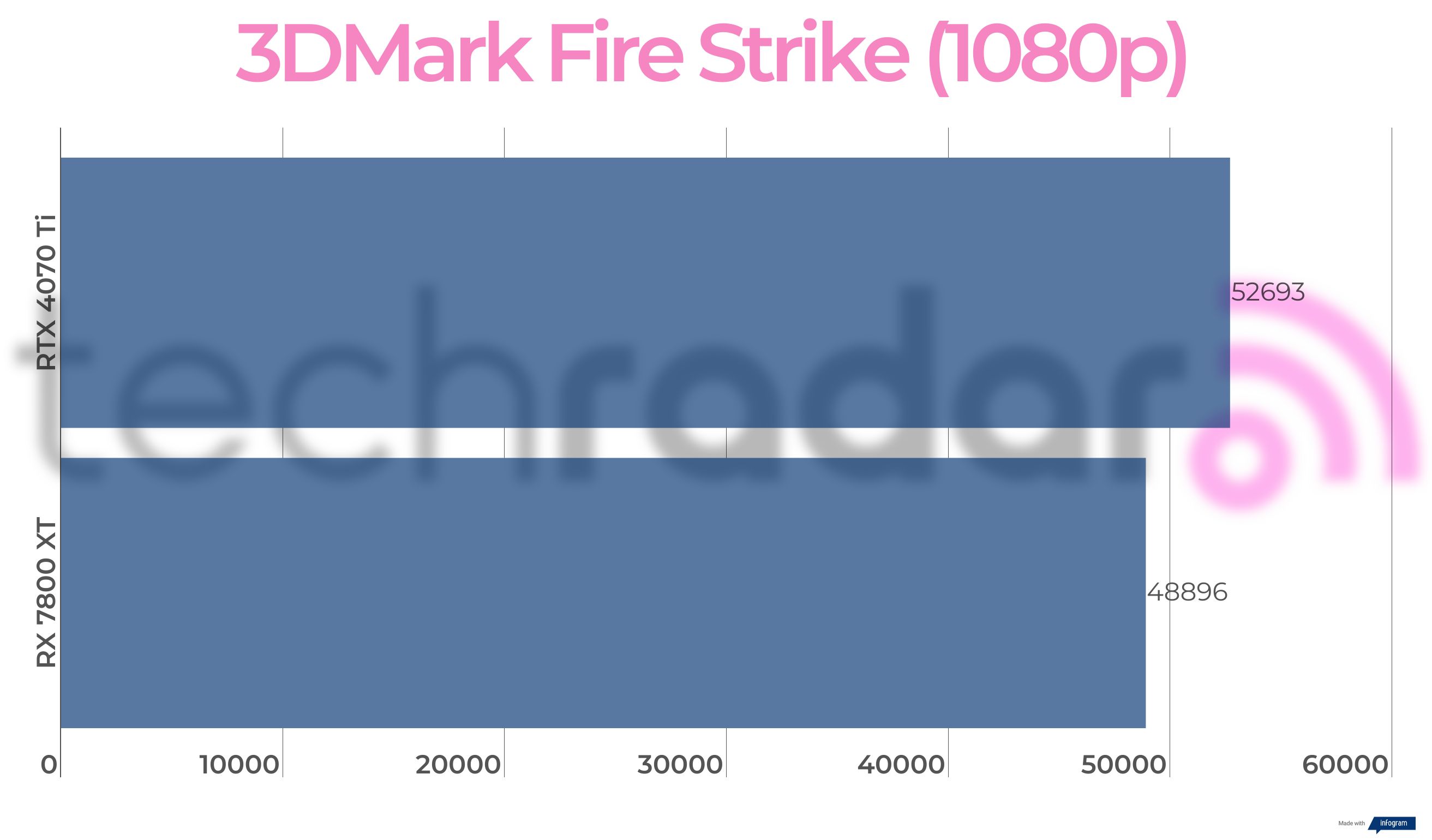

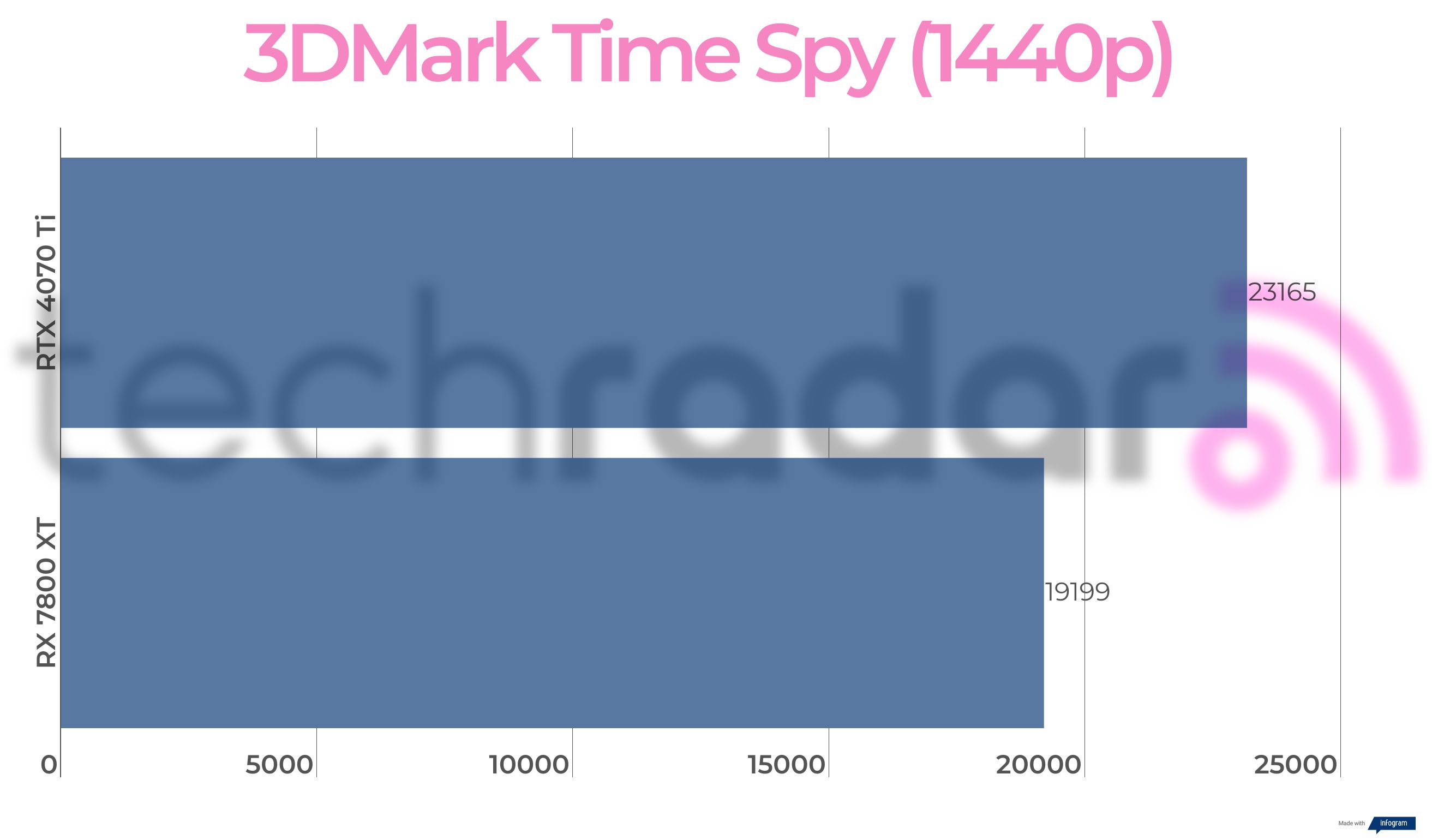
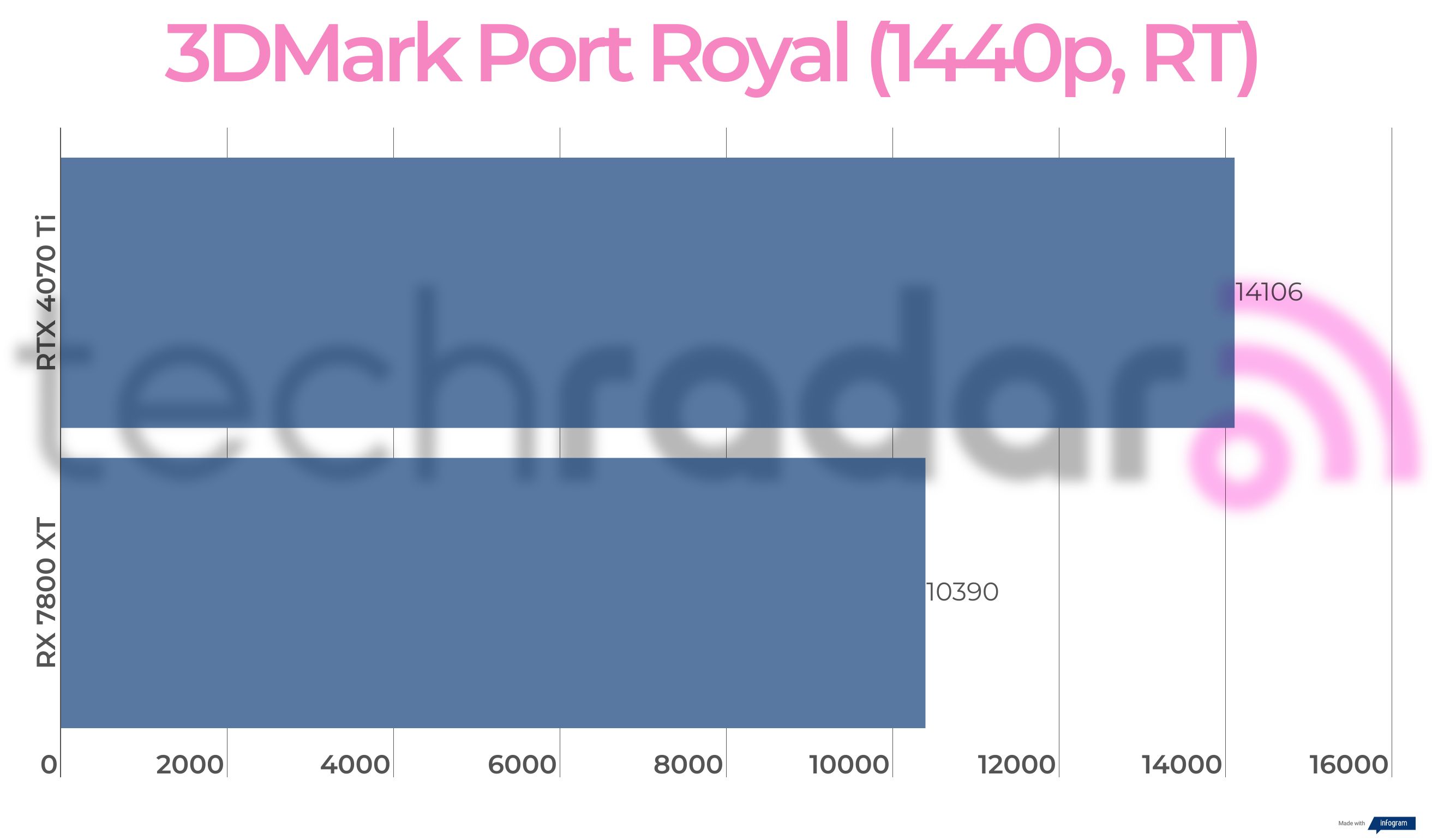
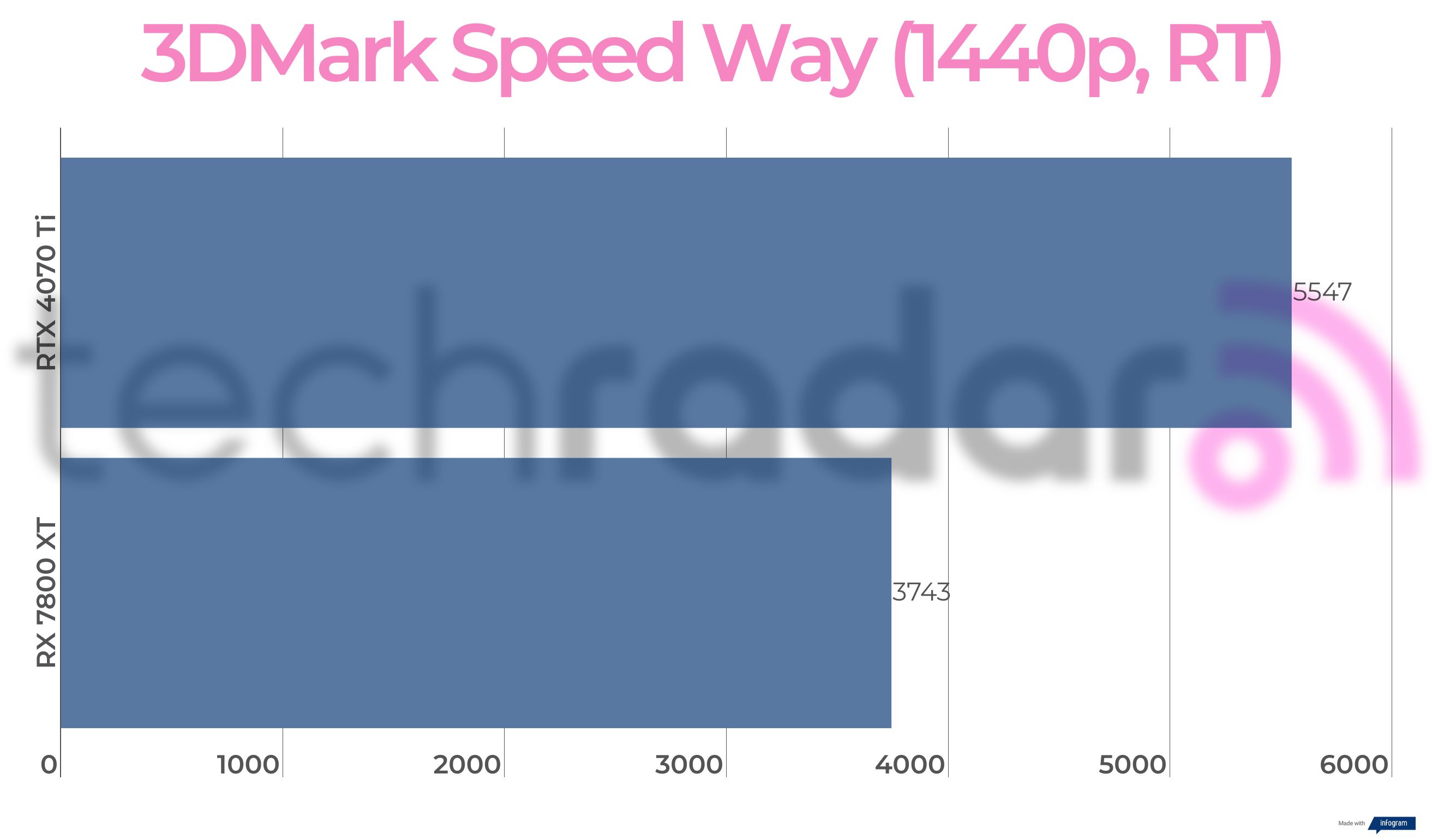
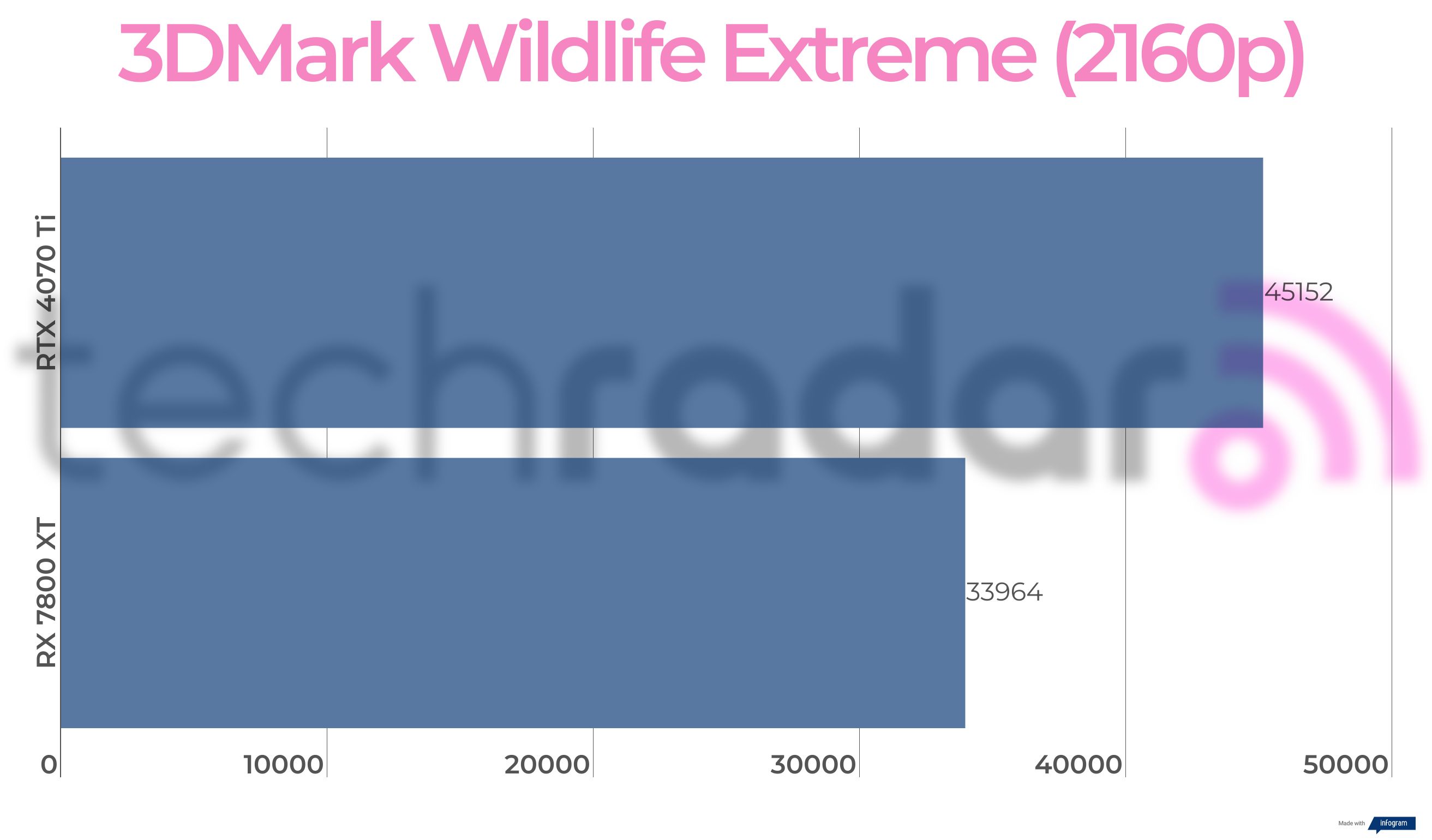
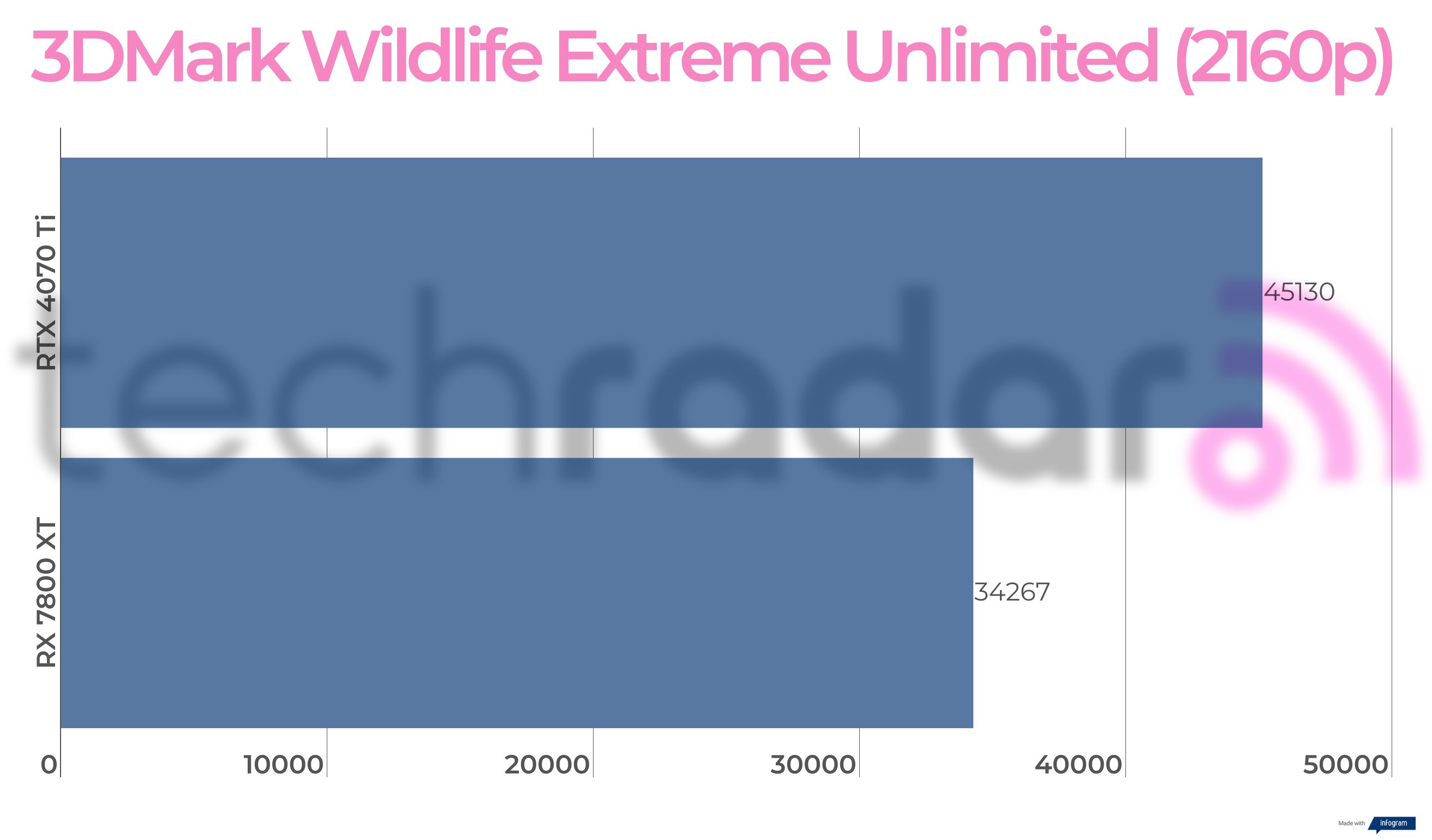
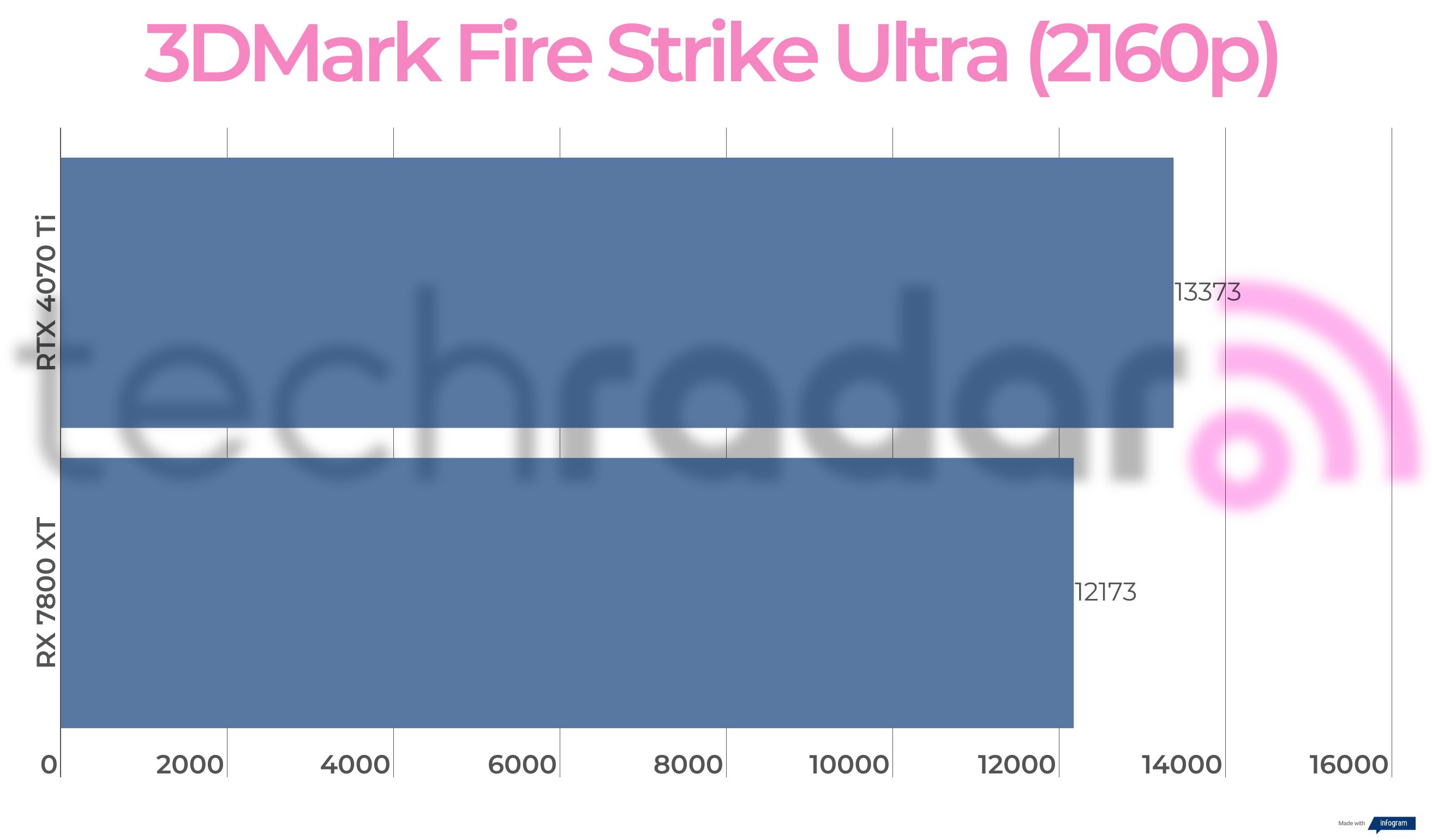
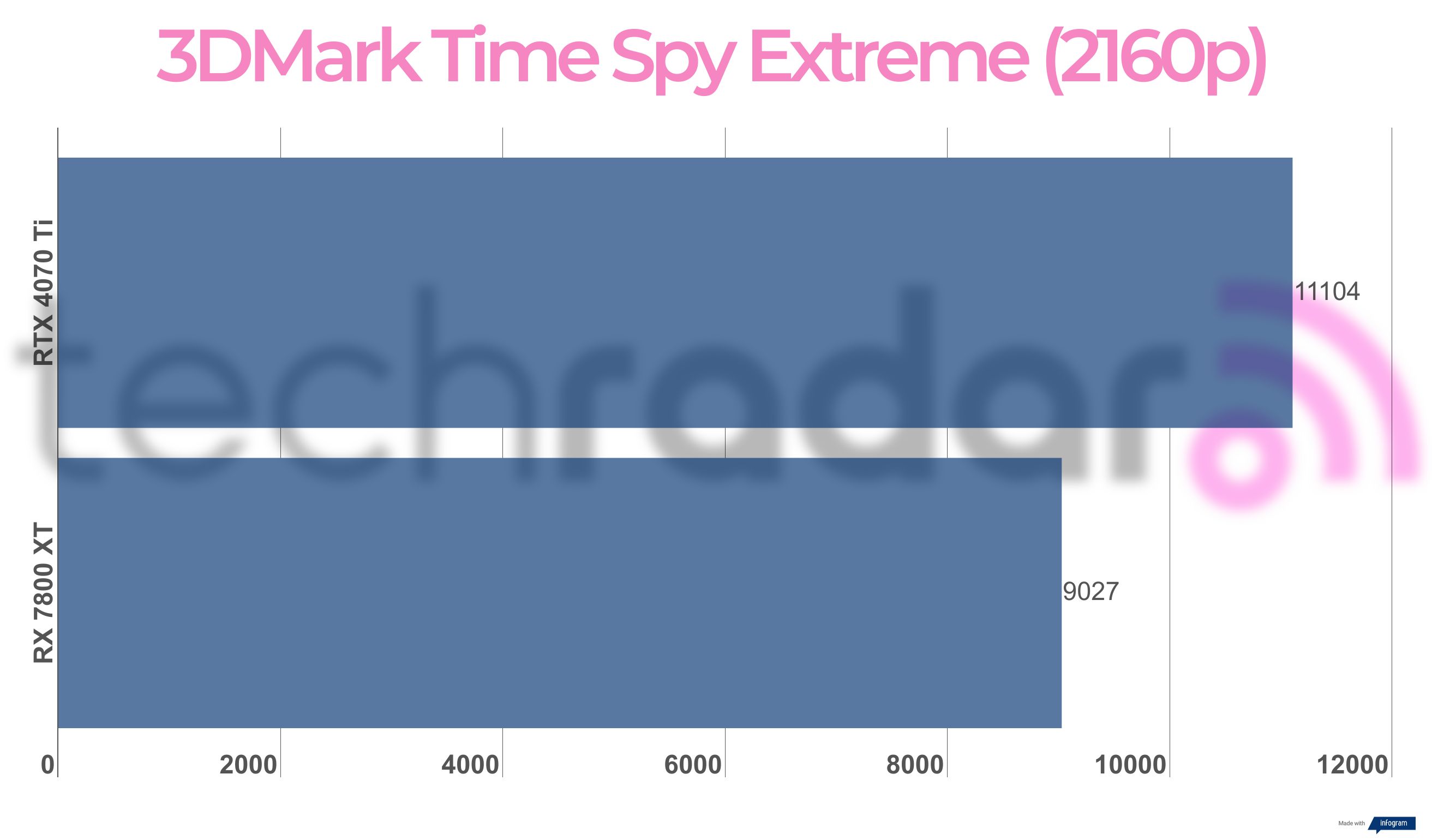
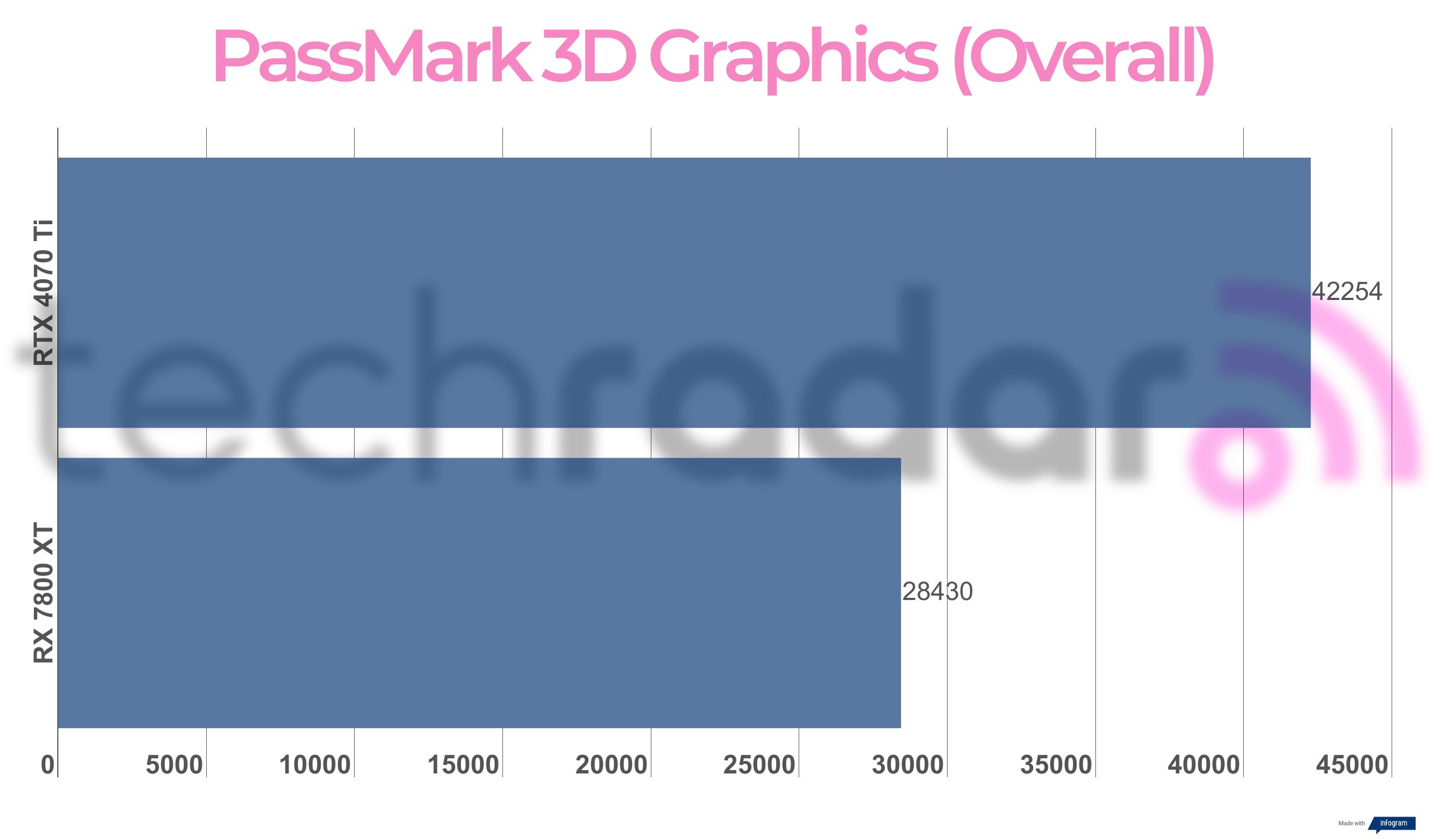
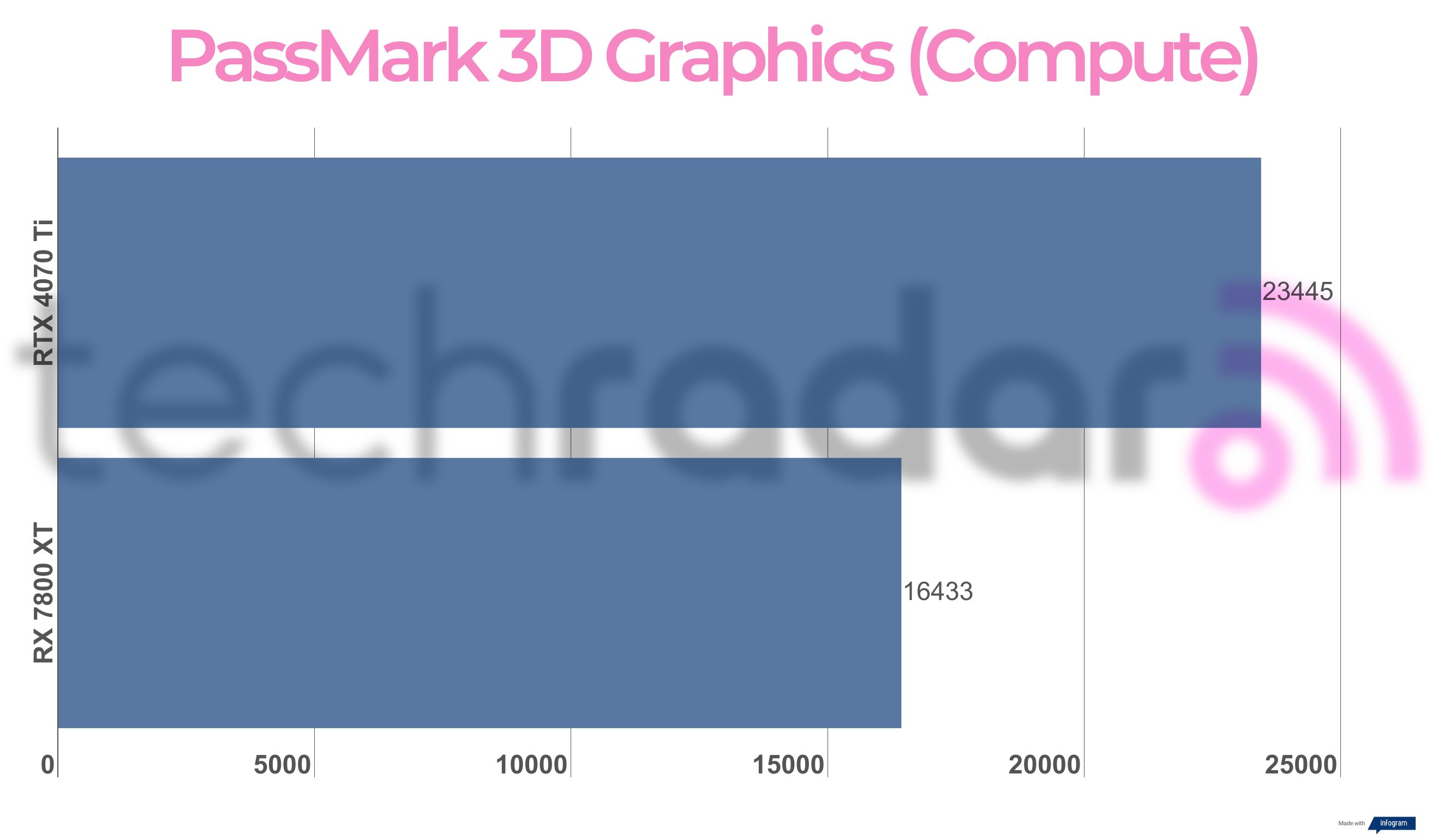
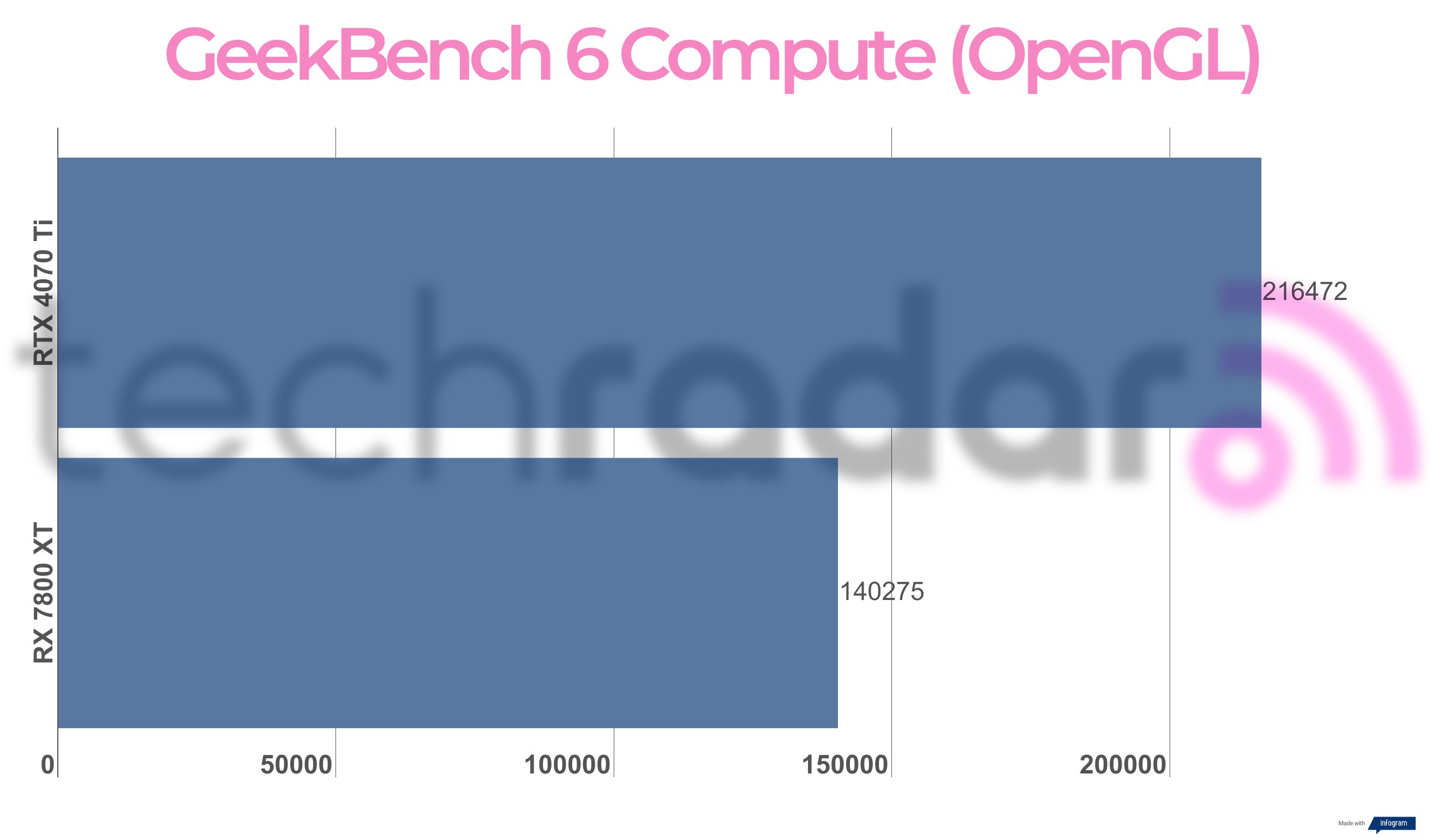
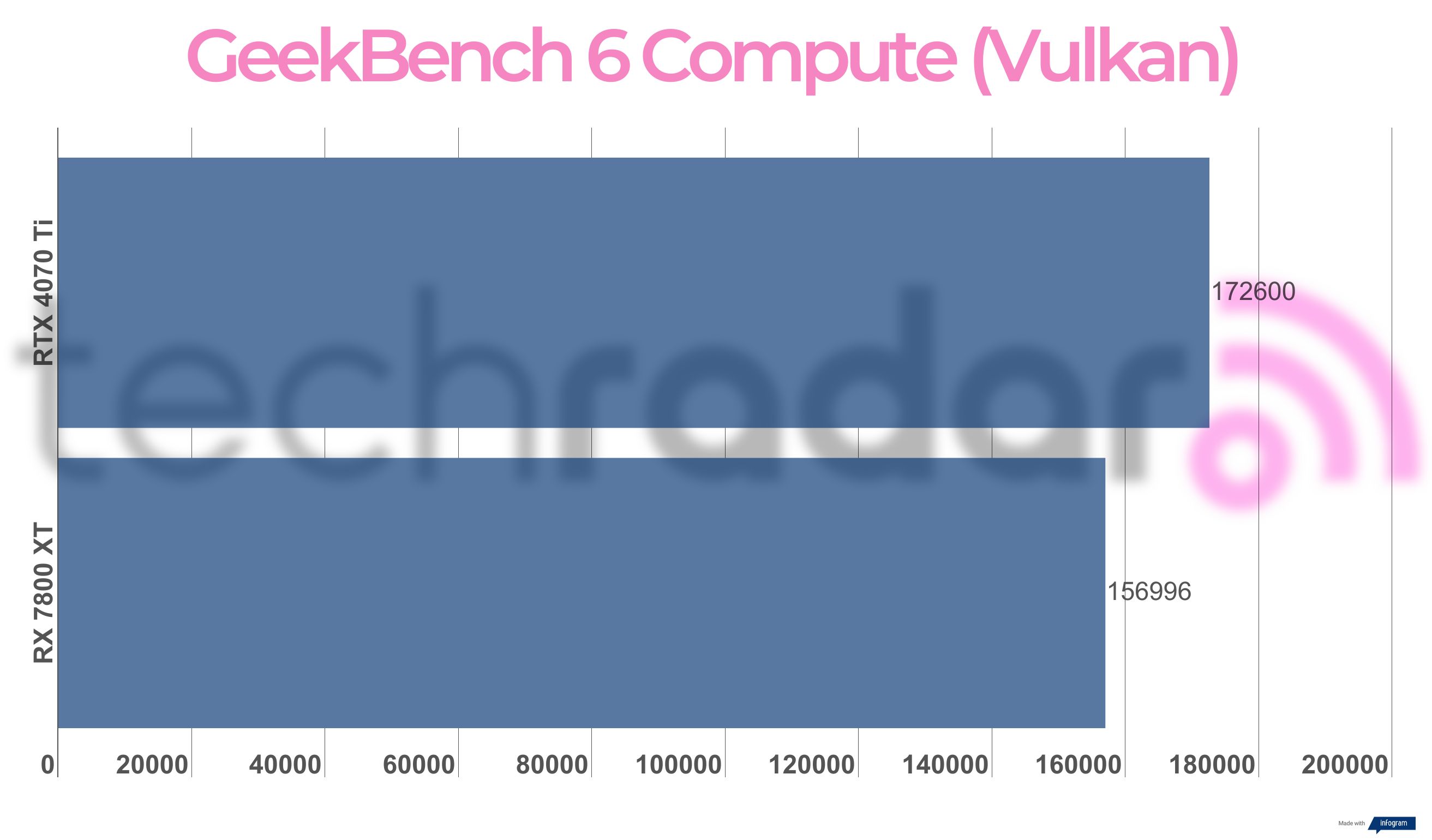
In terms of synthetic benchmarks, the RTX 4070 Ti takes a pretty commanding lead and never really looks back. On average, the RX 7800 XT performs 8% worse than the RTX 4070 Ti in 1080p synthetics, while its 1440p synthetic performance is about 12% without ray tracing and about 30% worse with ray tracing. At 4K, the 7800 XT does somewhat better, but still falls about 19% short of the RTX 4070 Ti.
Across all synthetic benchmarks, the RX 7800 XT performs about 17% worse than the RTX 4070 Ti.
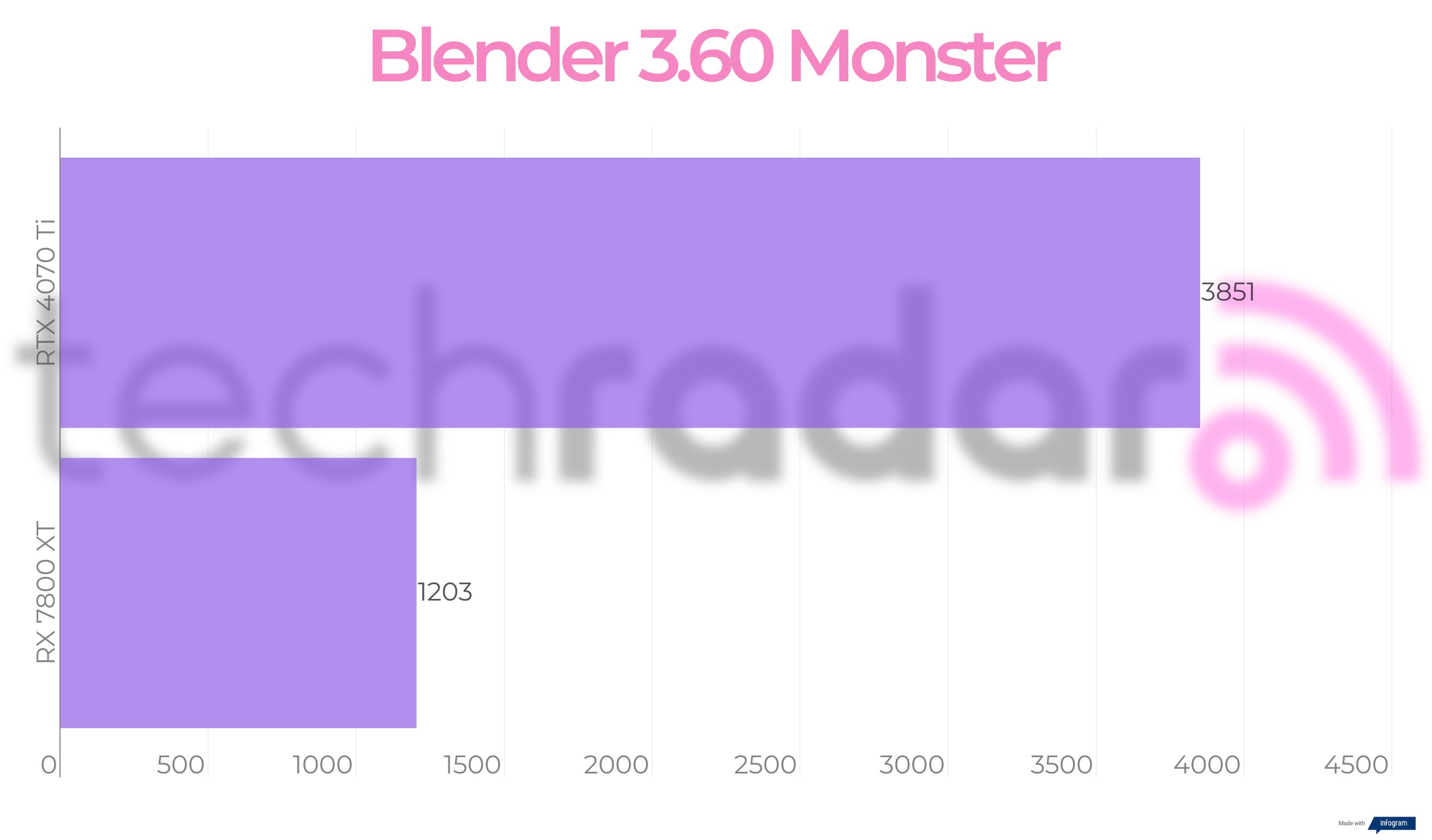
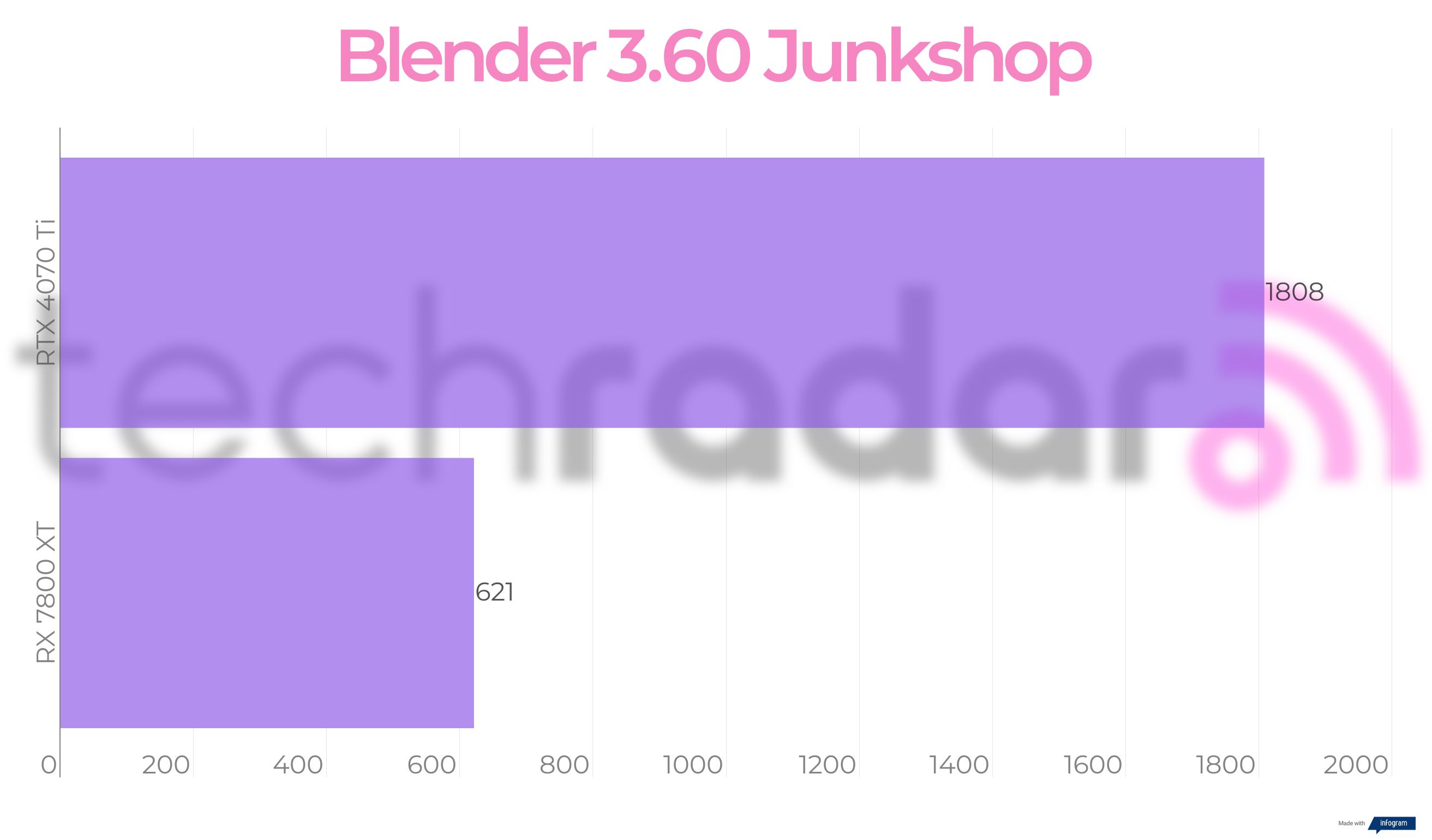
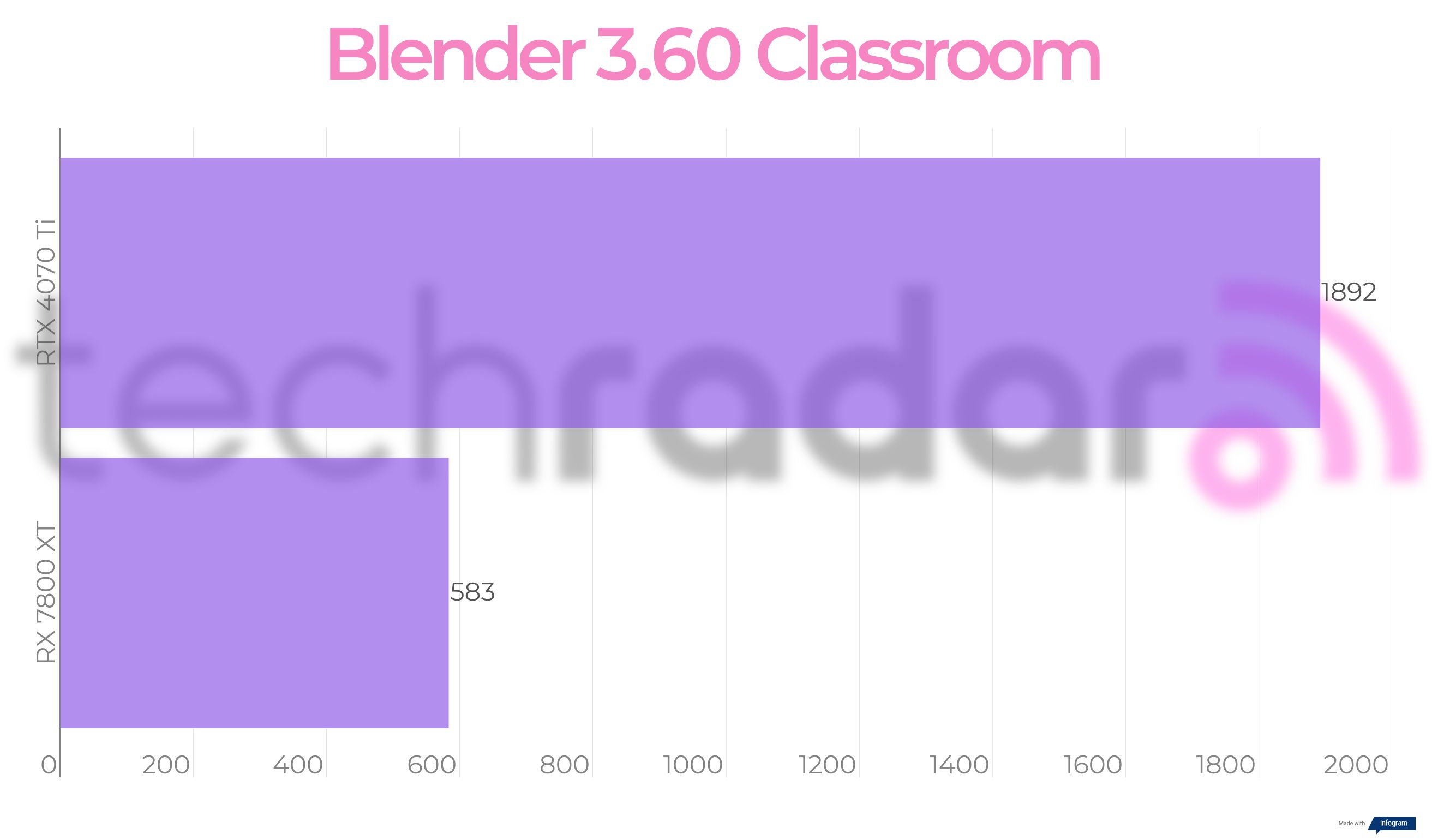
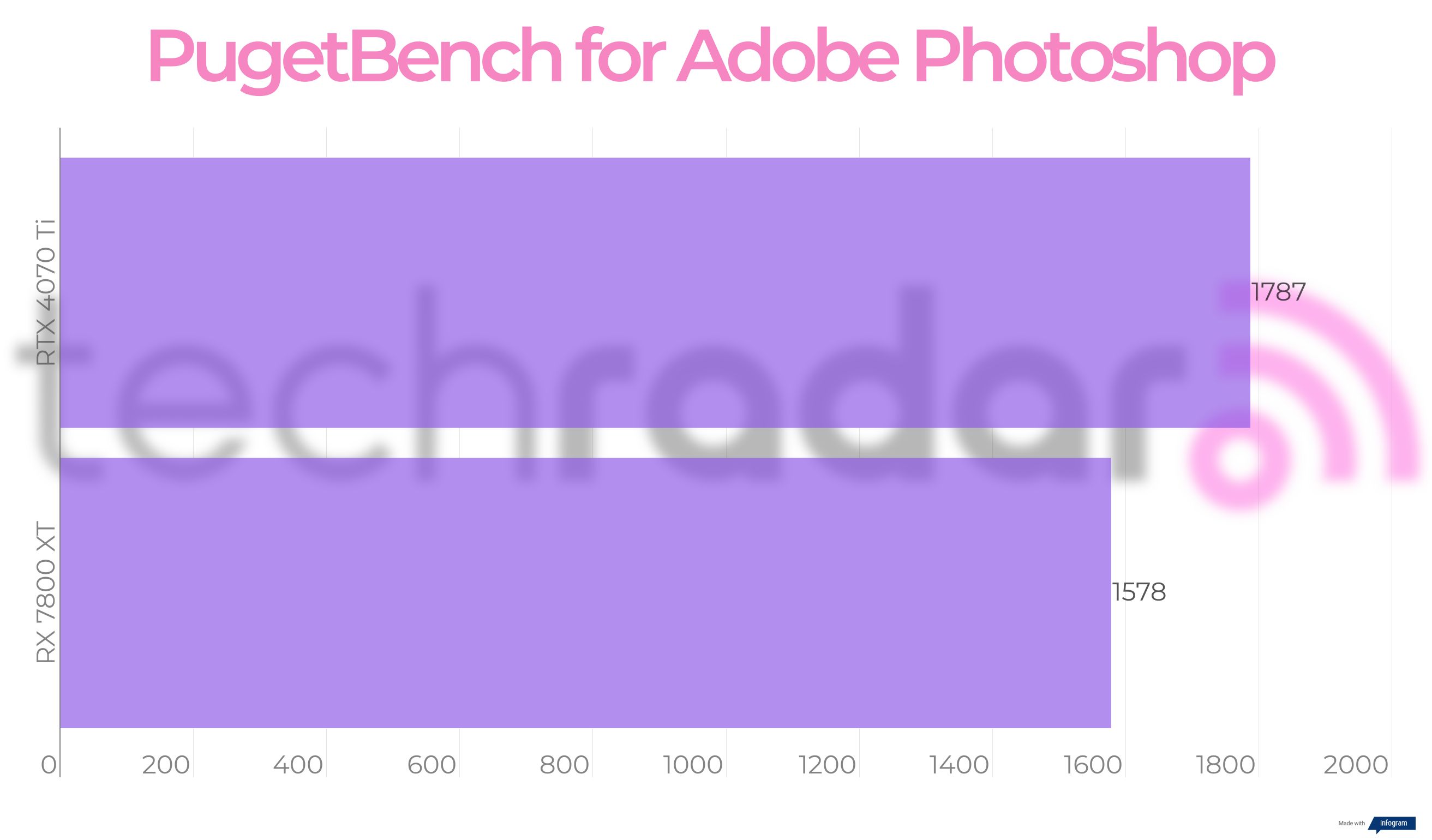
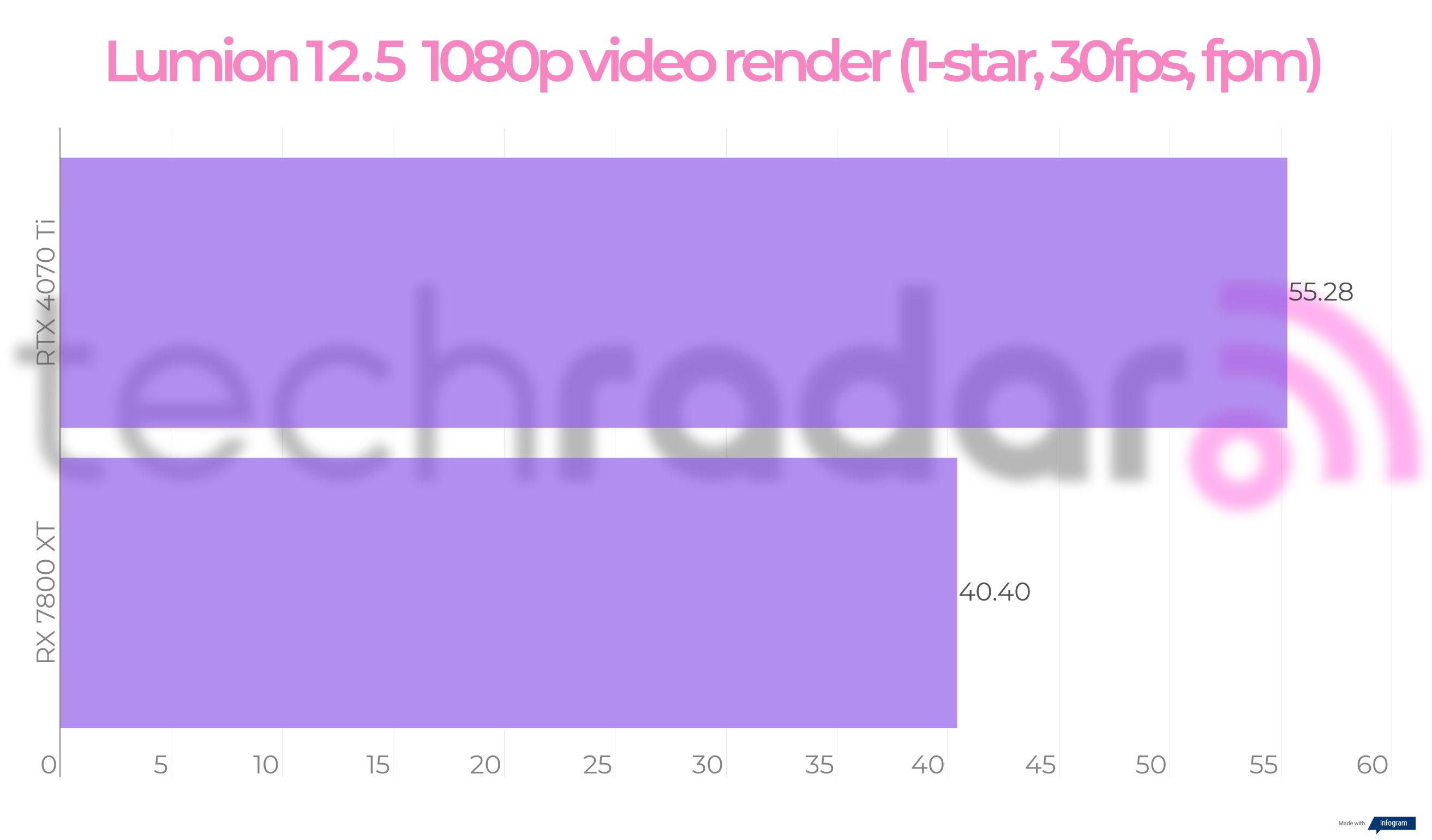
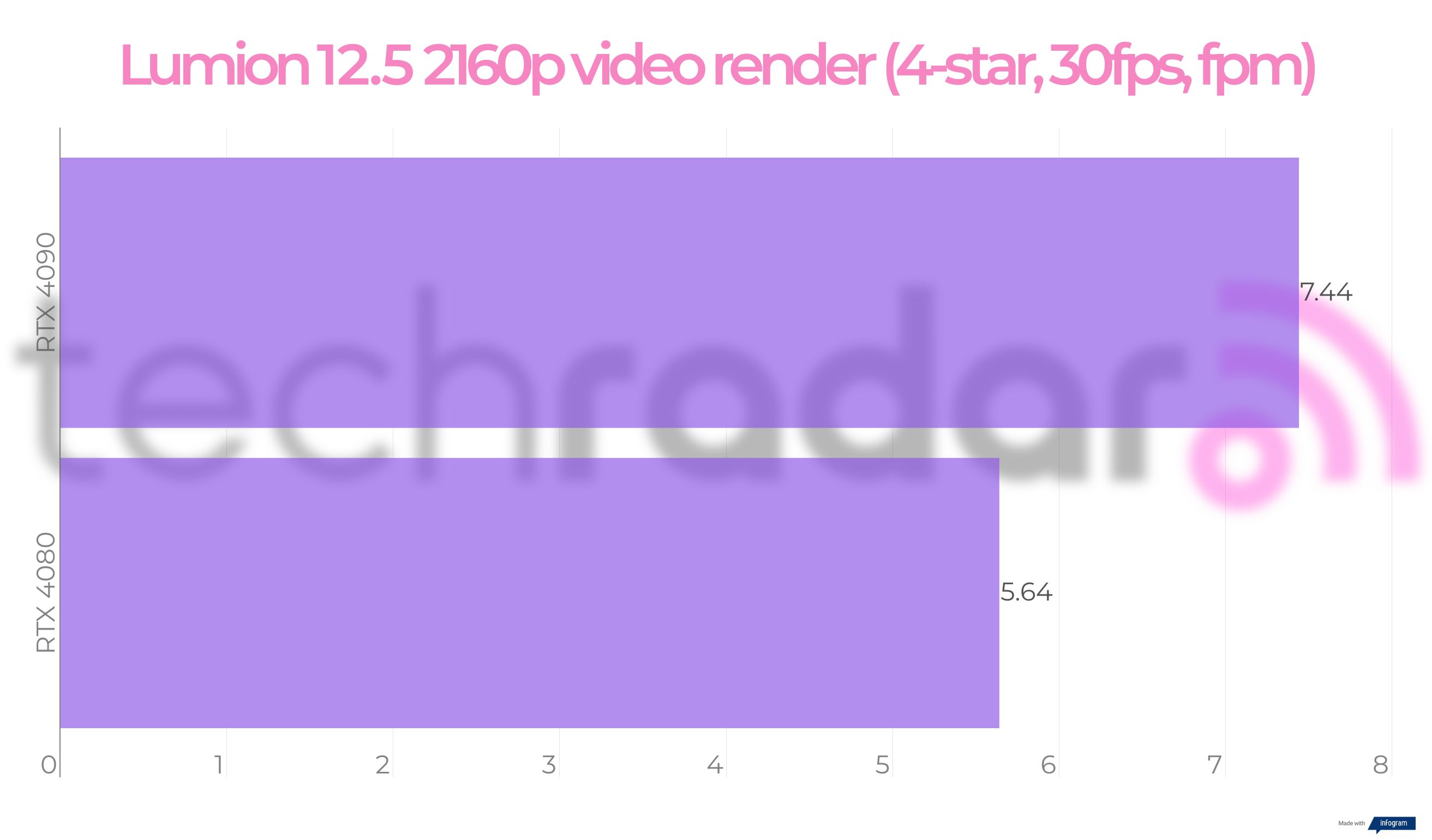
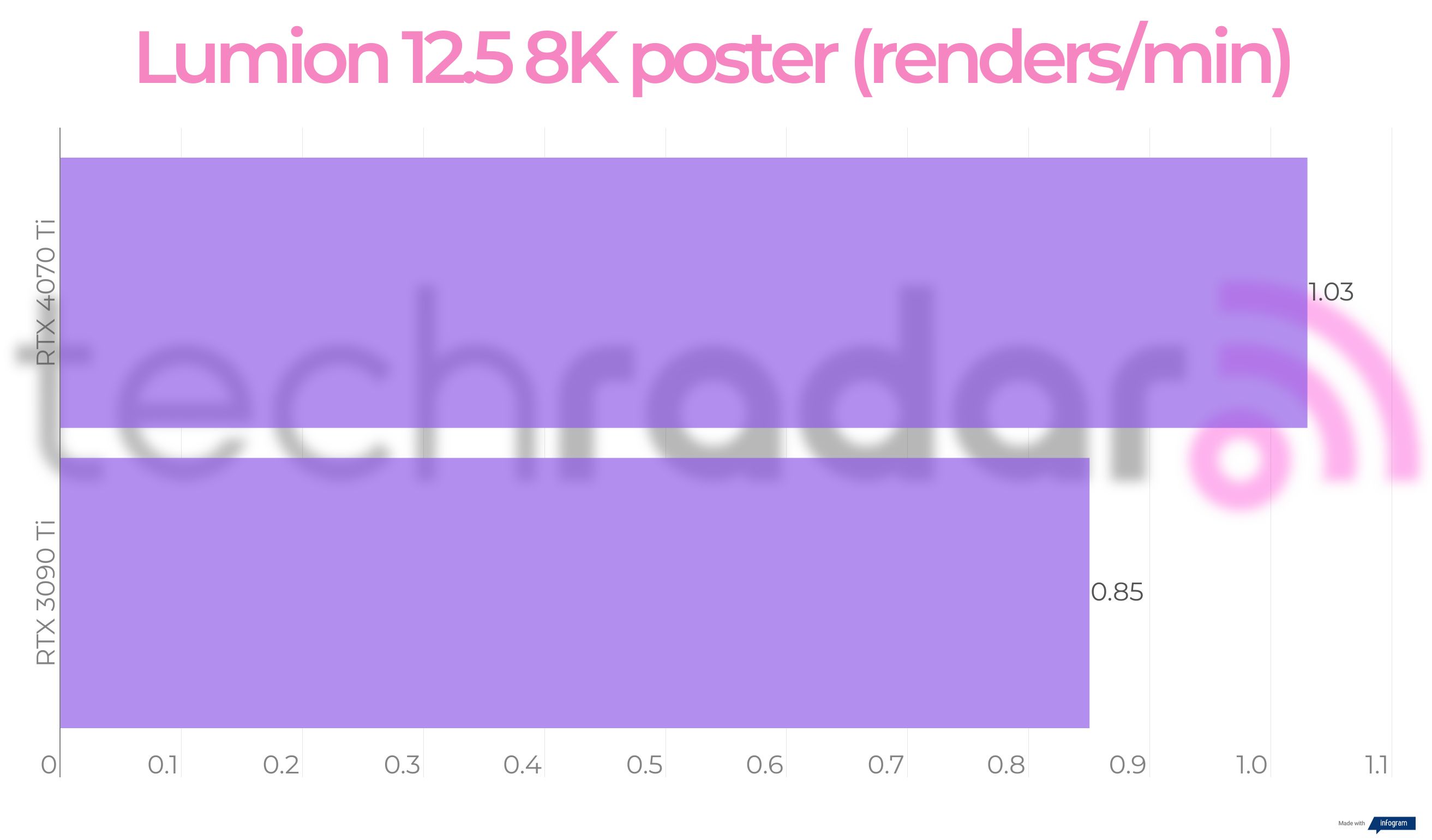
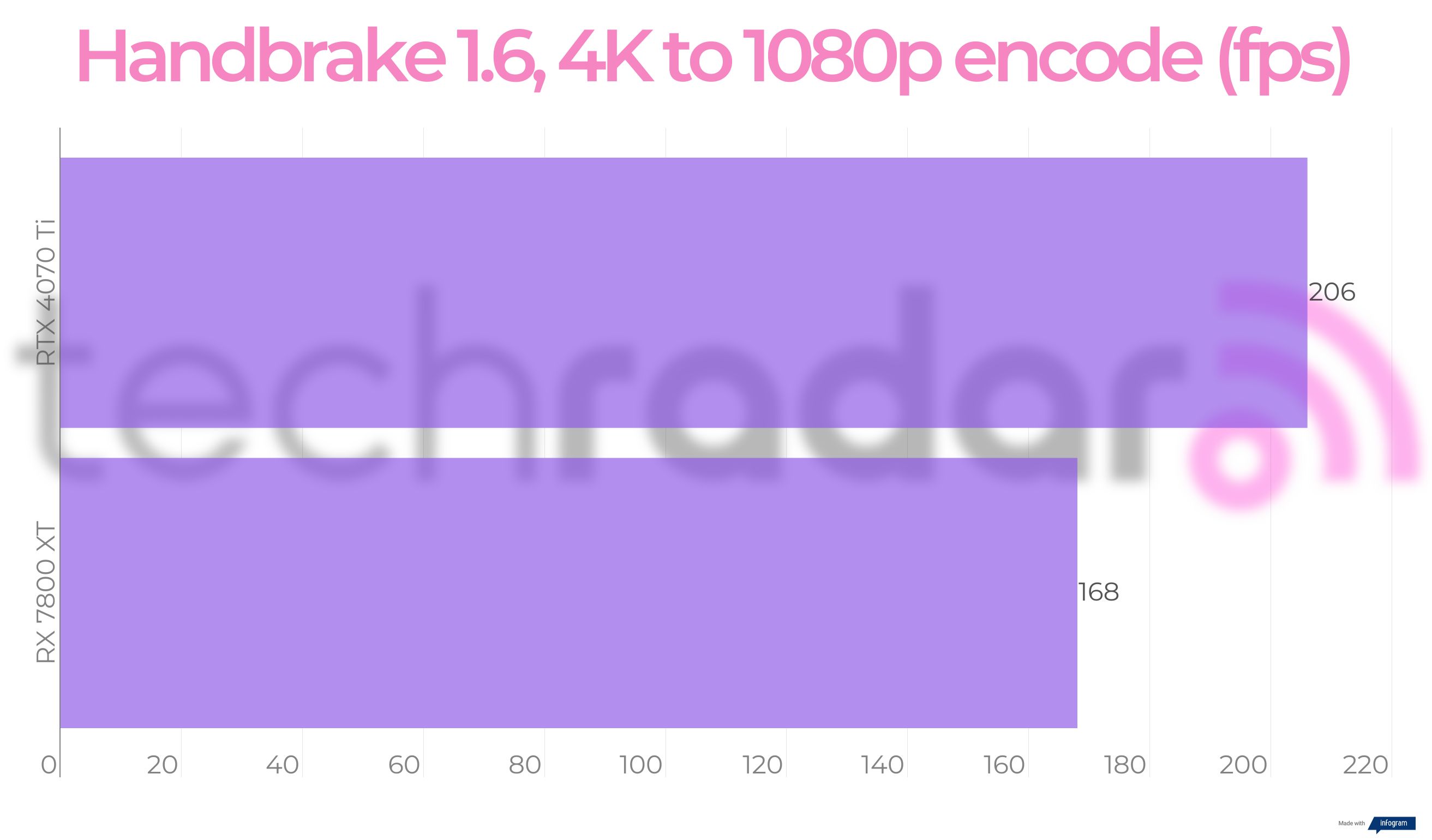
On the creative front, this is really where the RTX 4070 Ti shines, absolutely walloping the RX 7800 XT in just about every test, with its Blender 3.6.0 performance absolutely lapping the RX 7800 XT.
In short, the RX 7800 XT, even at a much lower price, is not going to get you the best performance for the price if what you're looking for is creative performance.
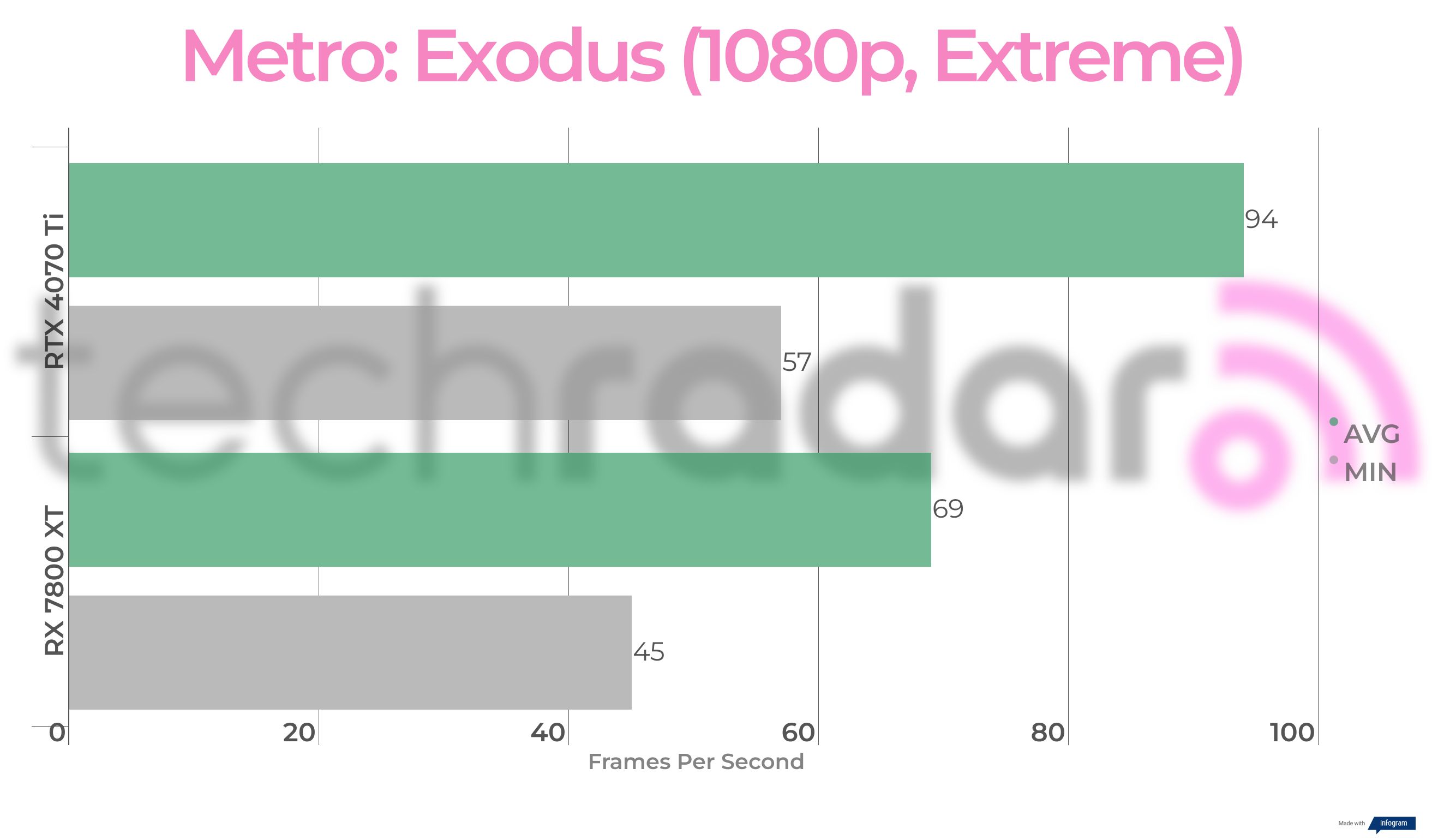
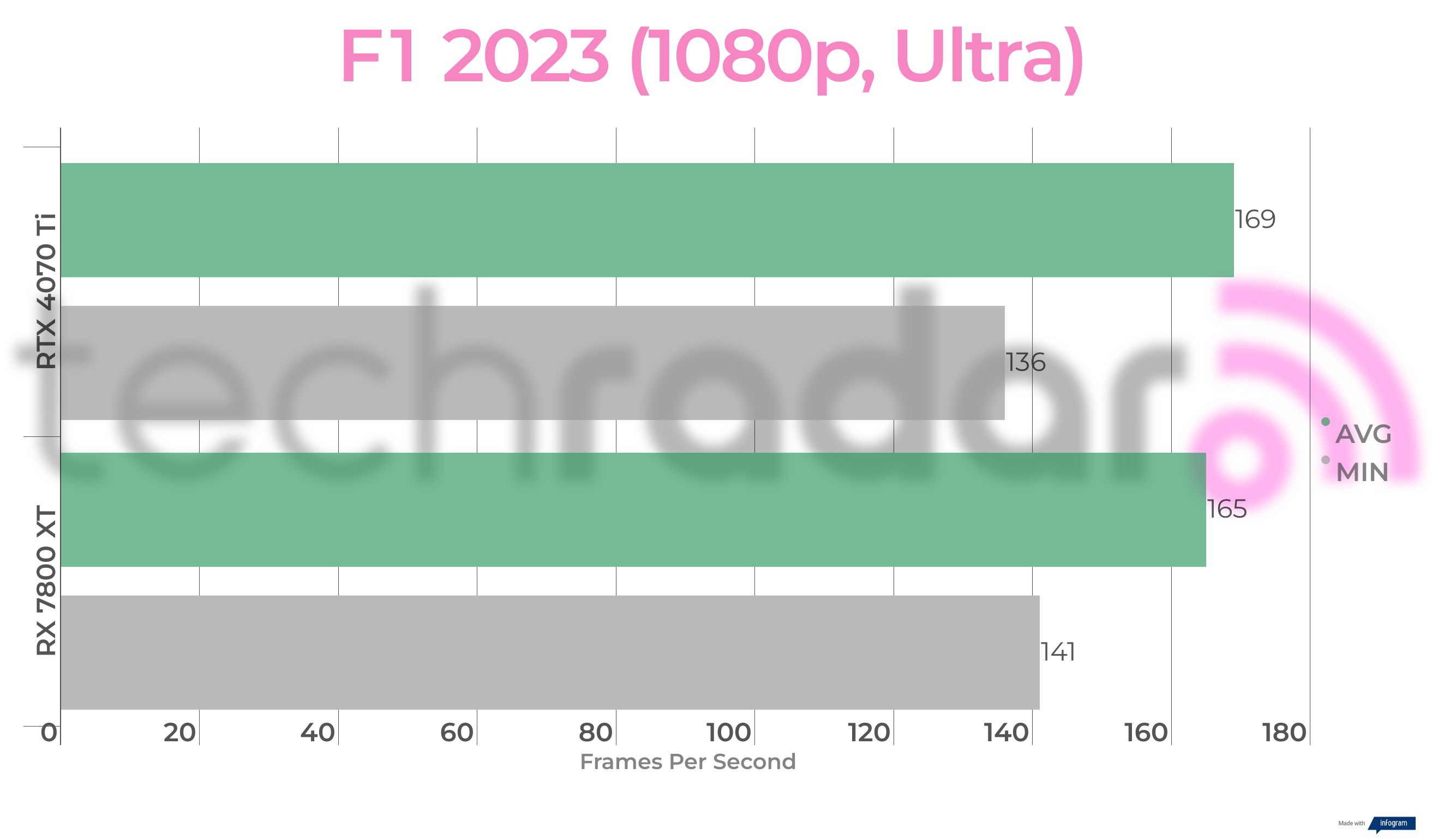
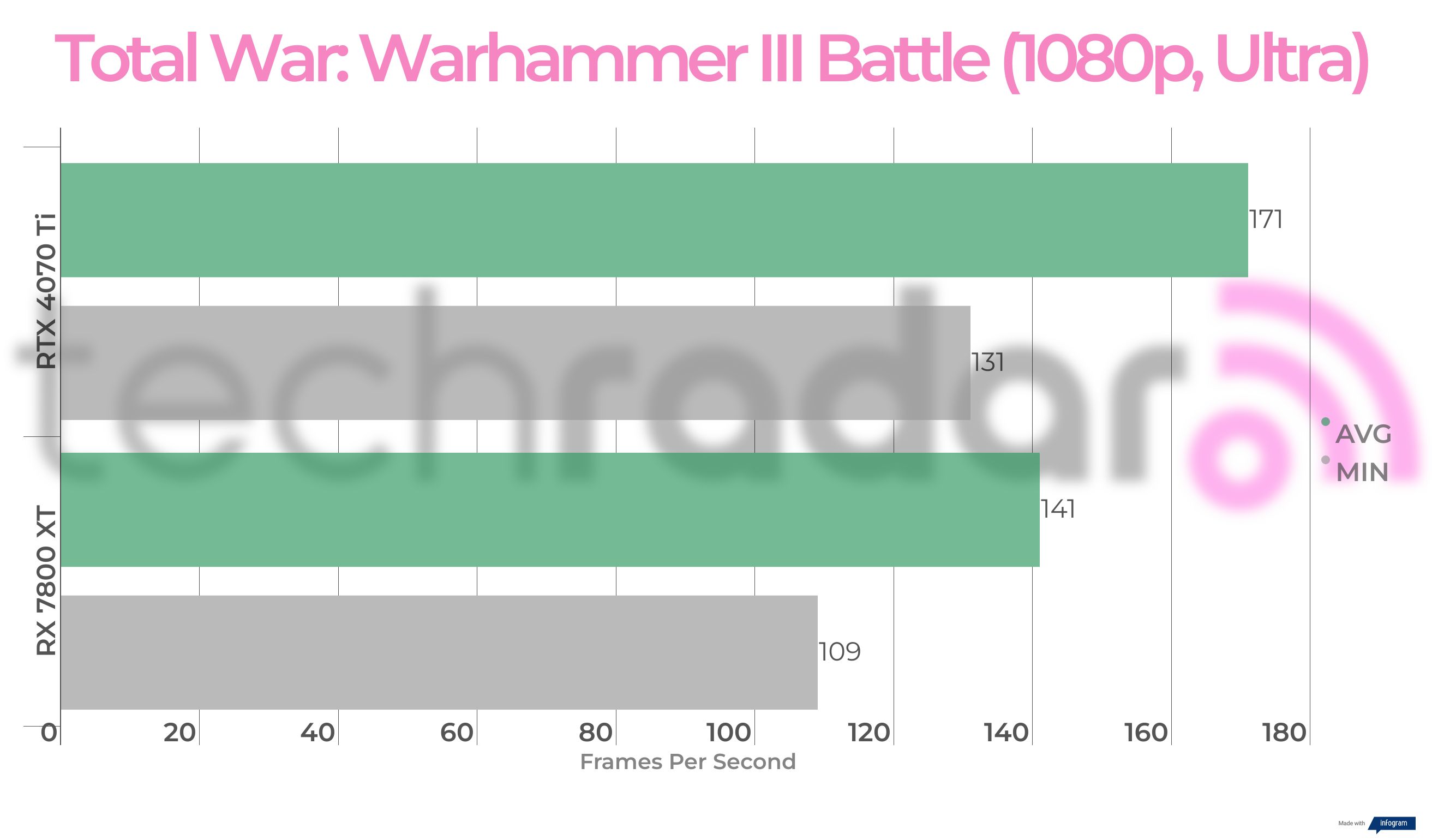
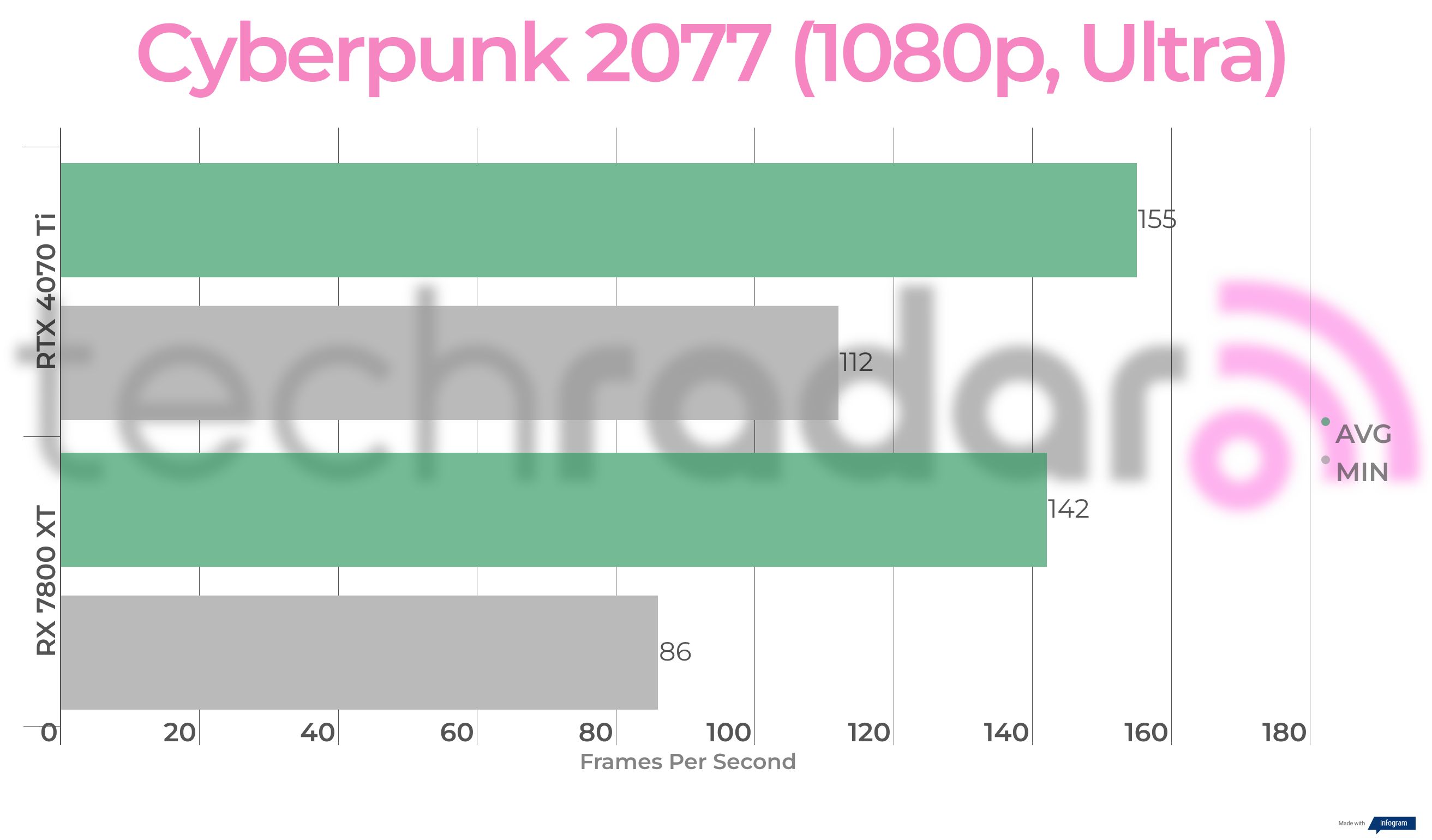

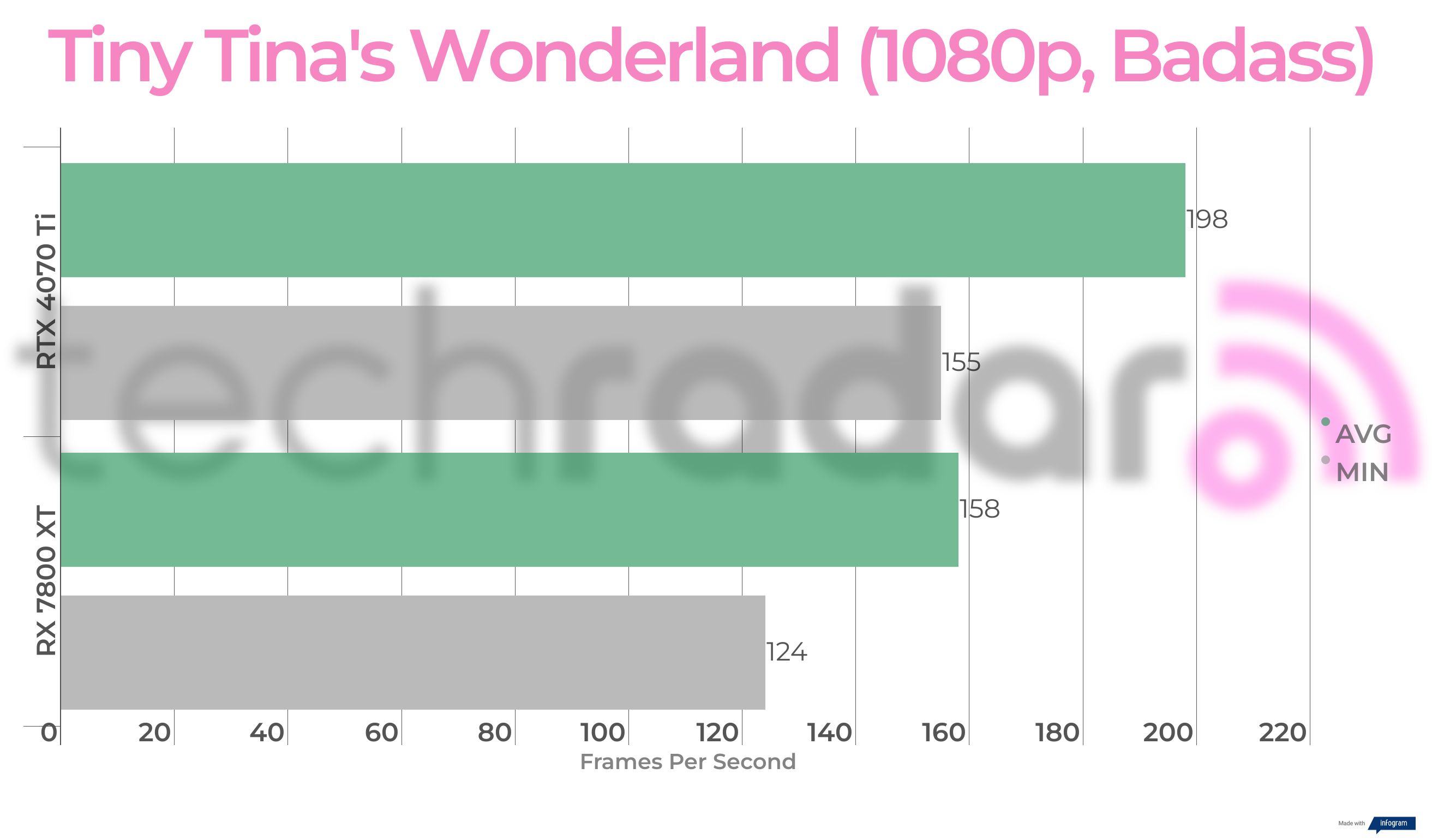
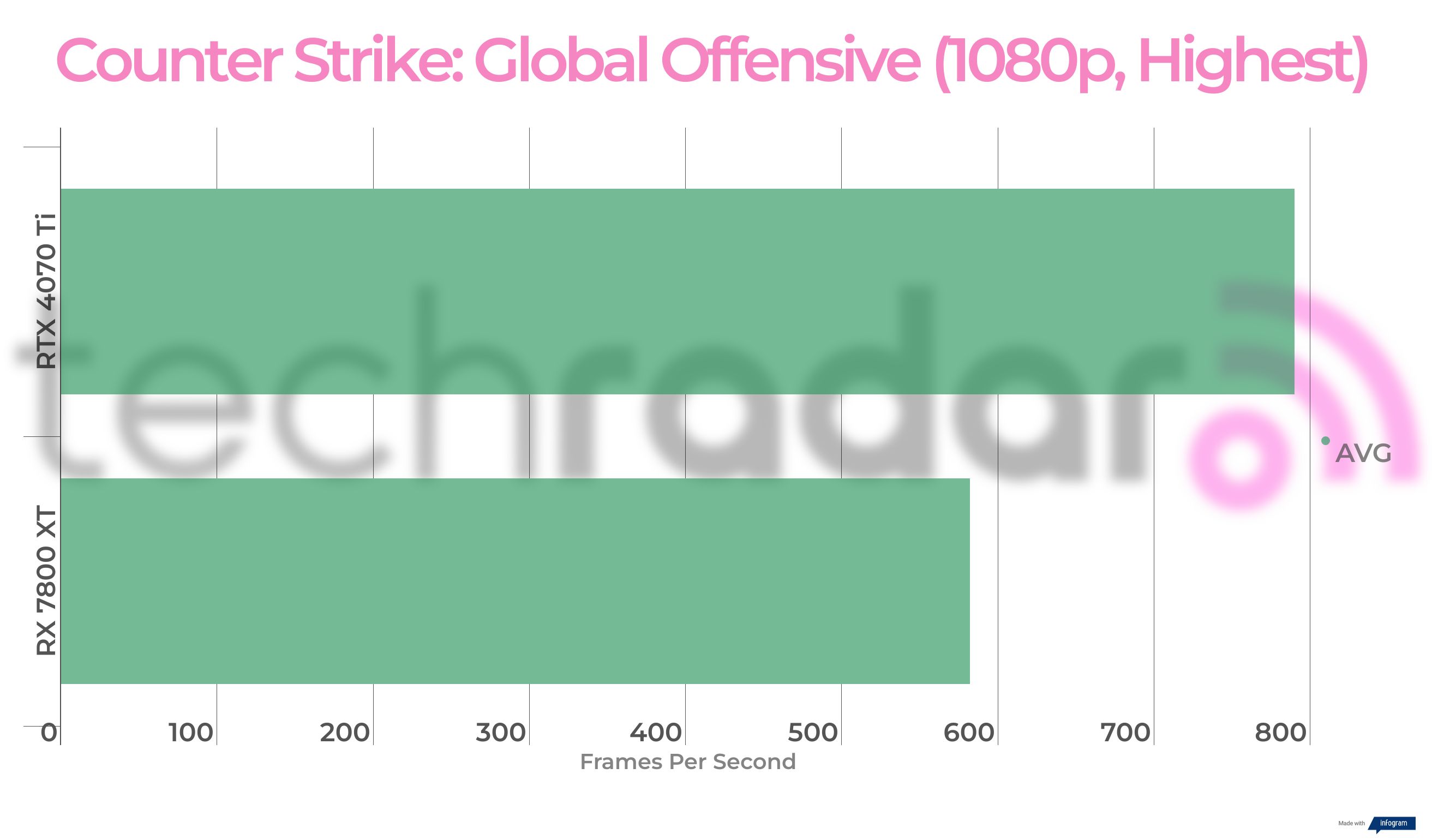
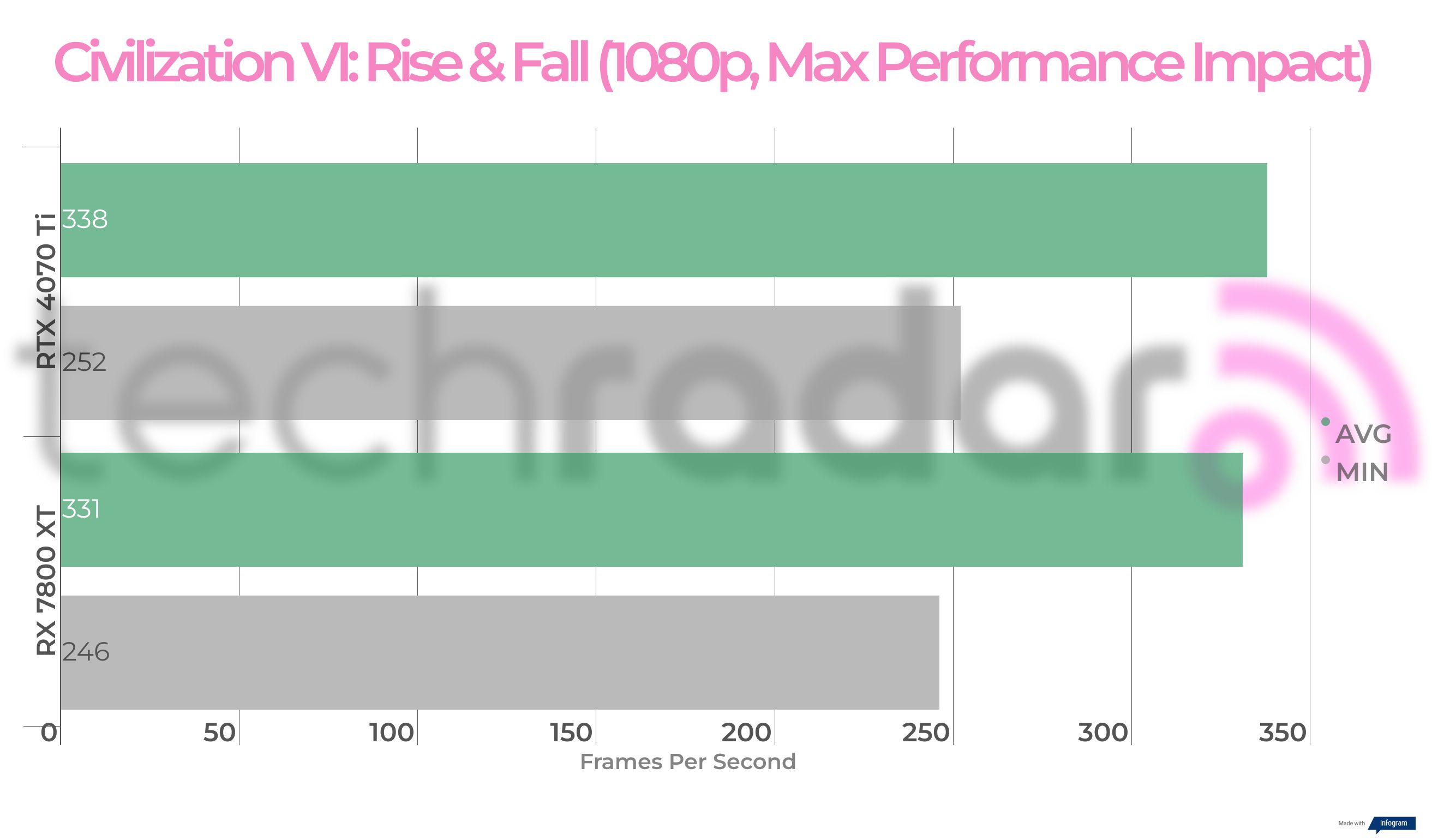
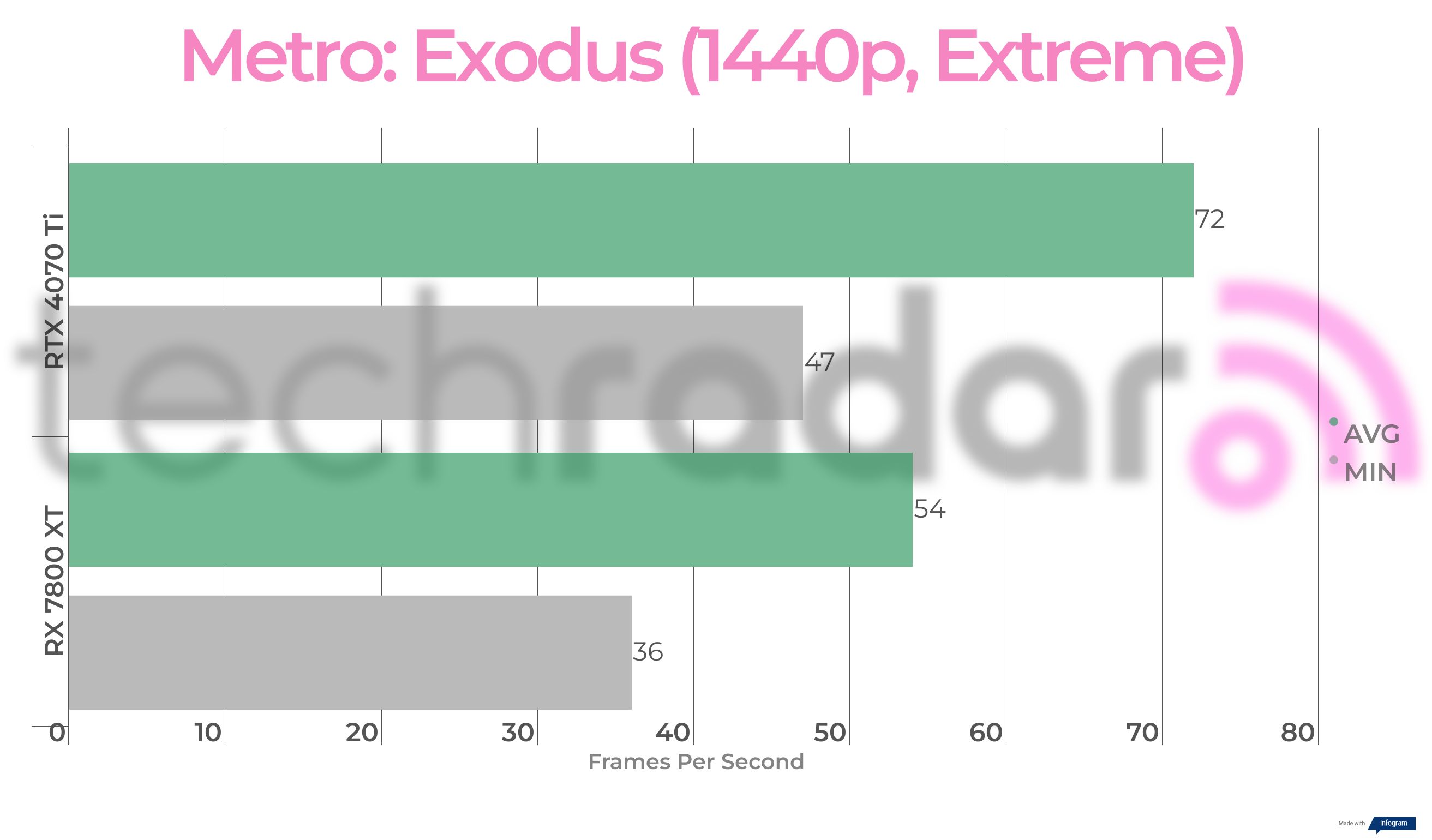
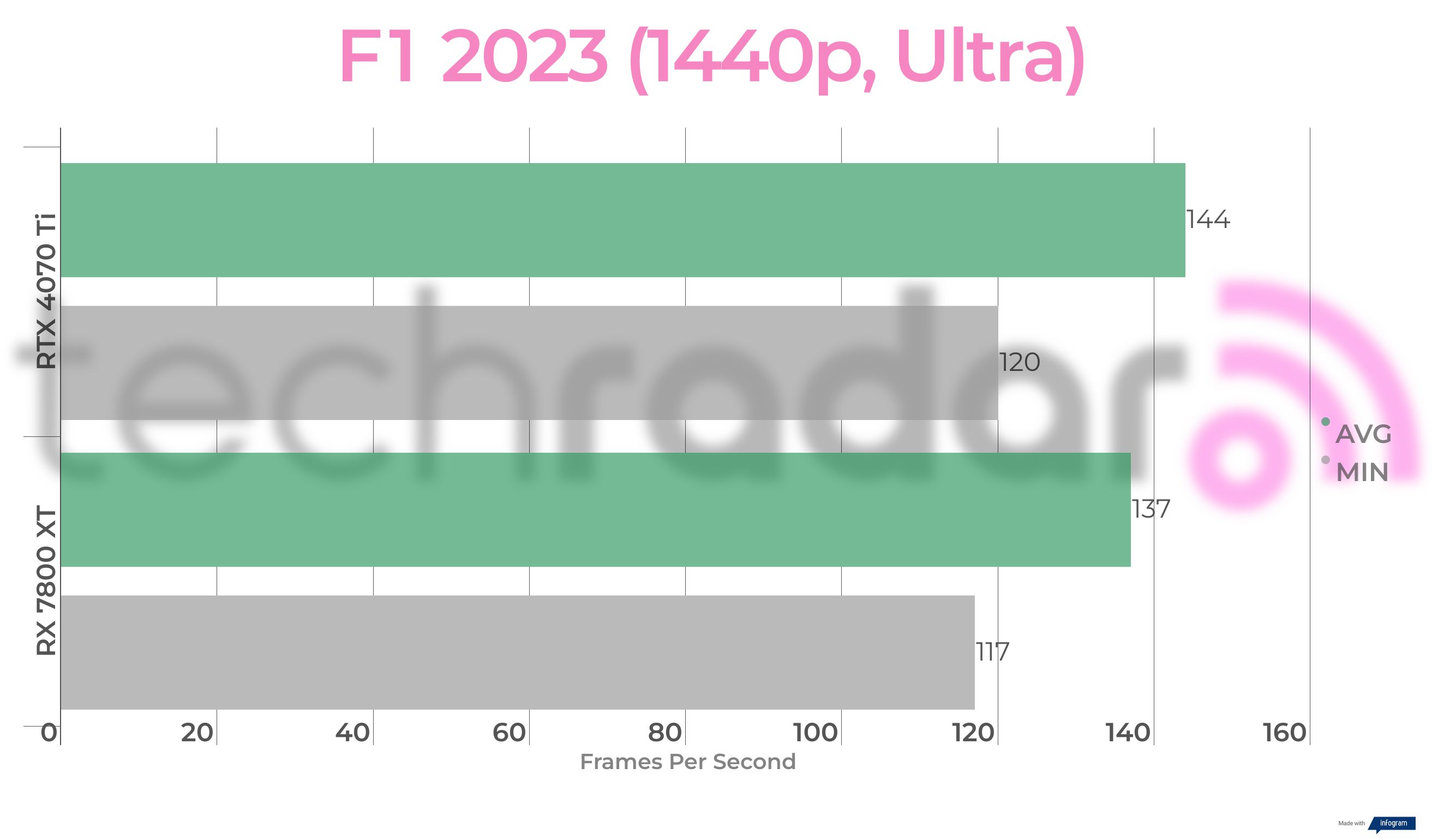
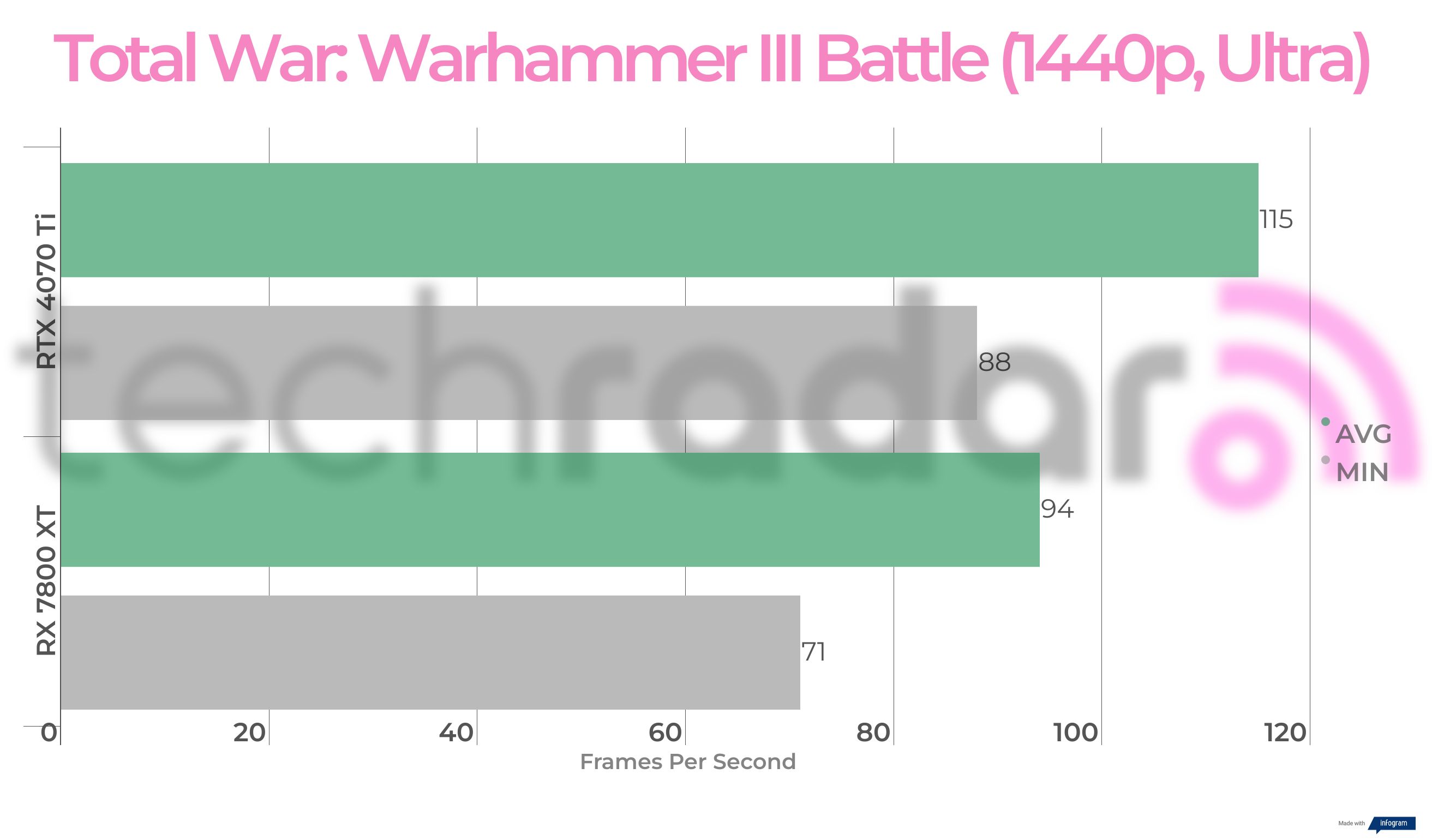
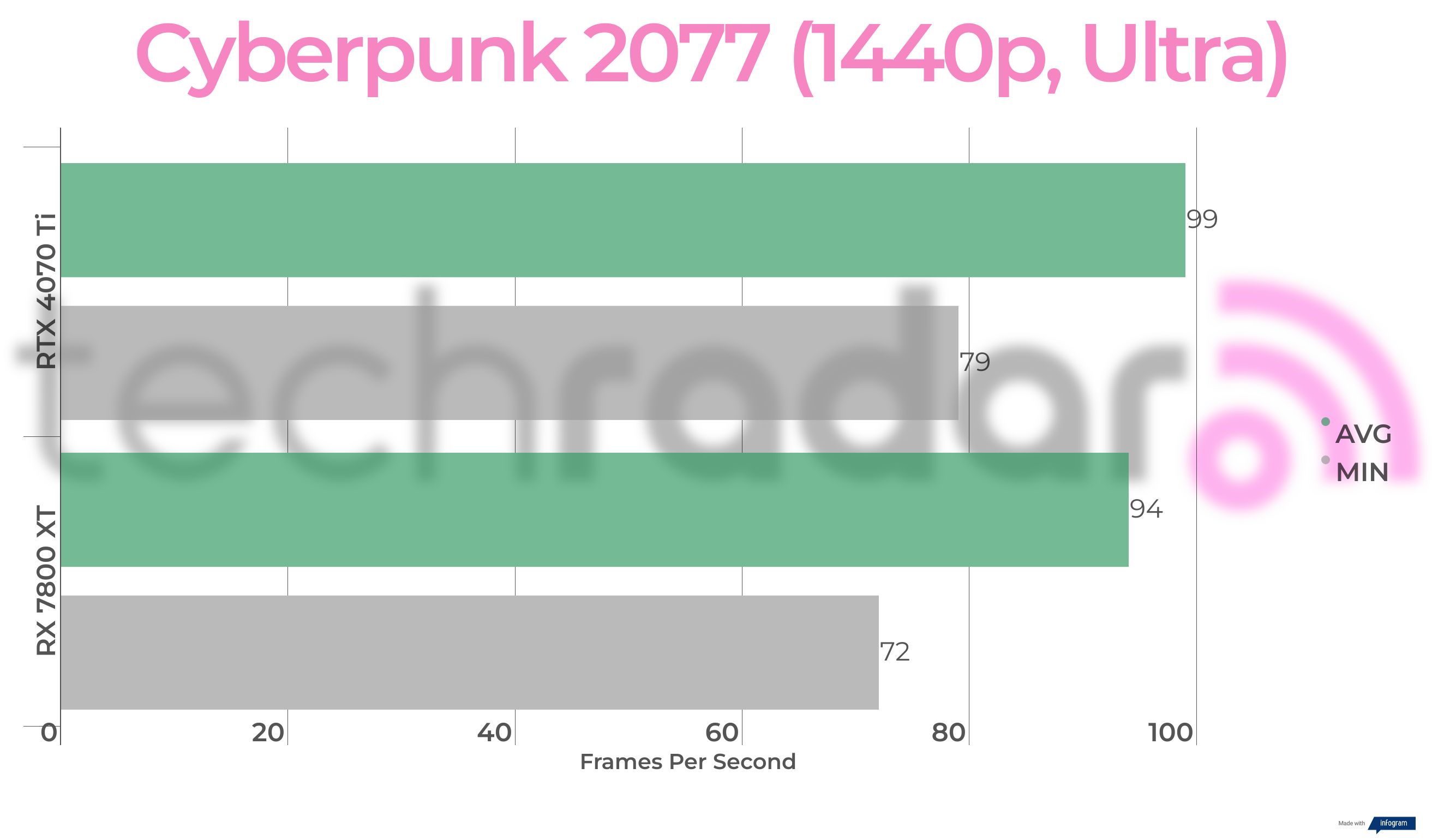
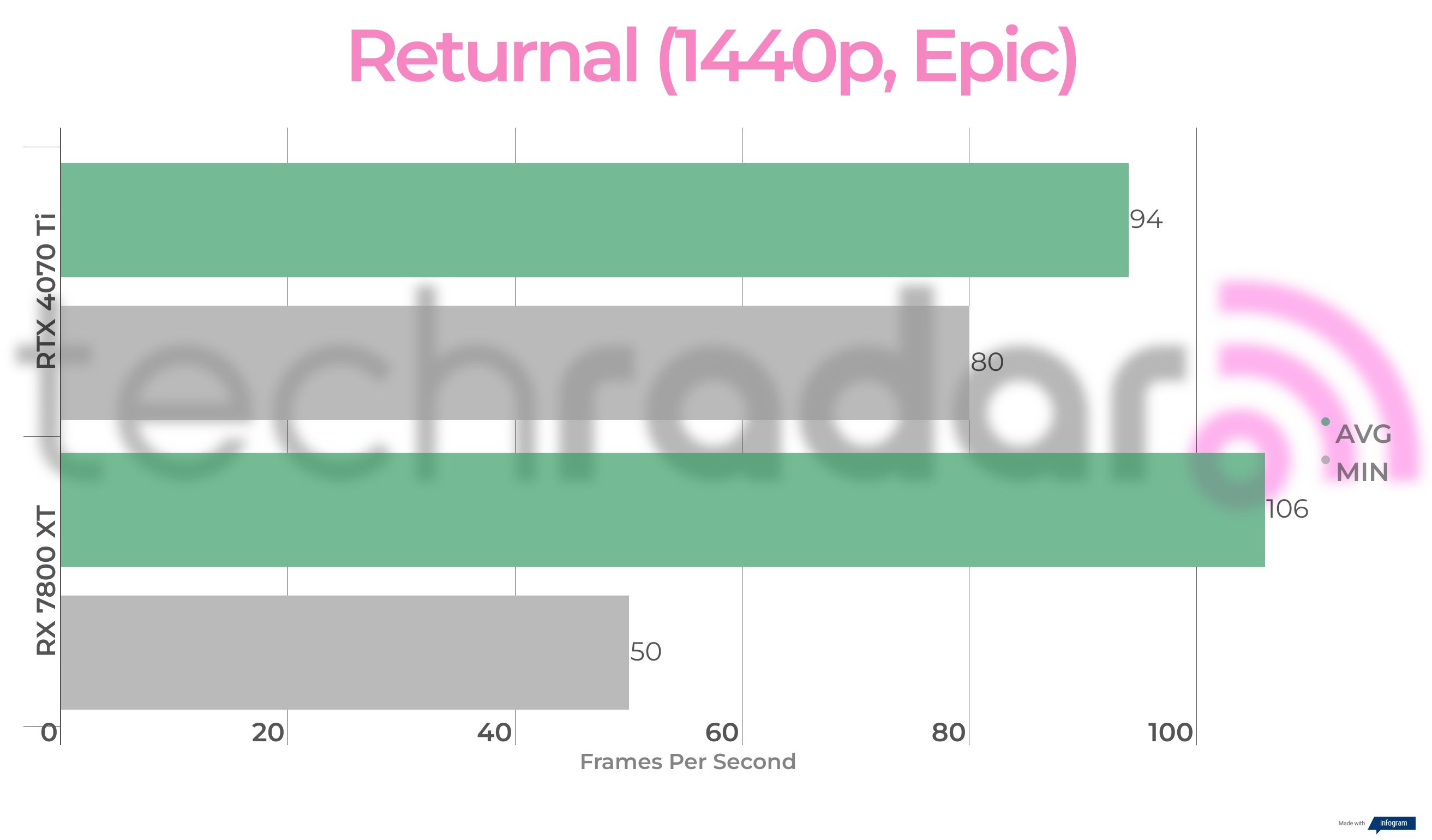
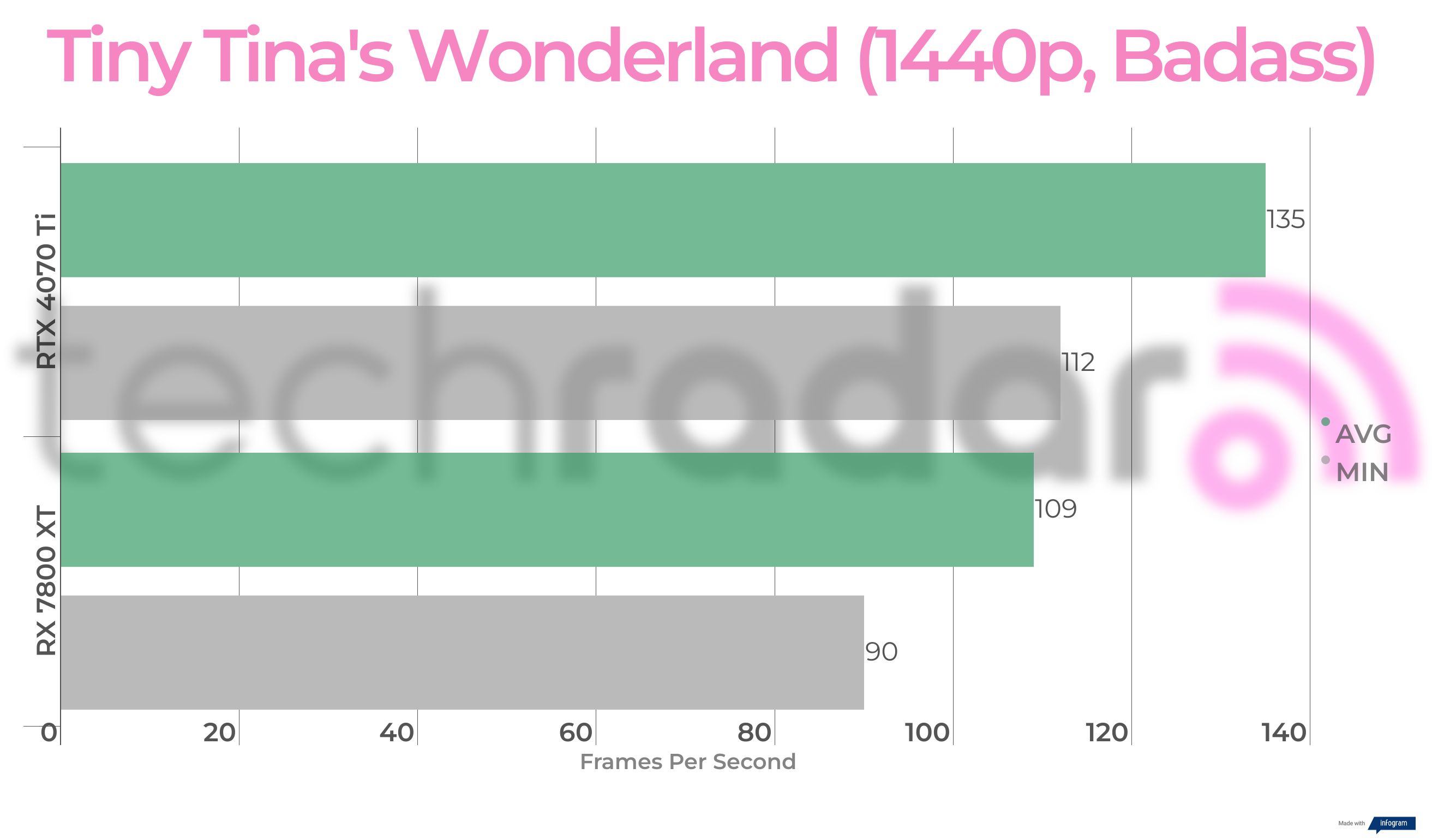
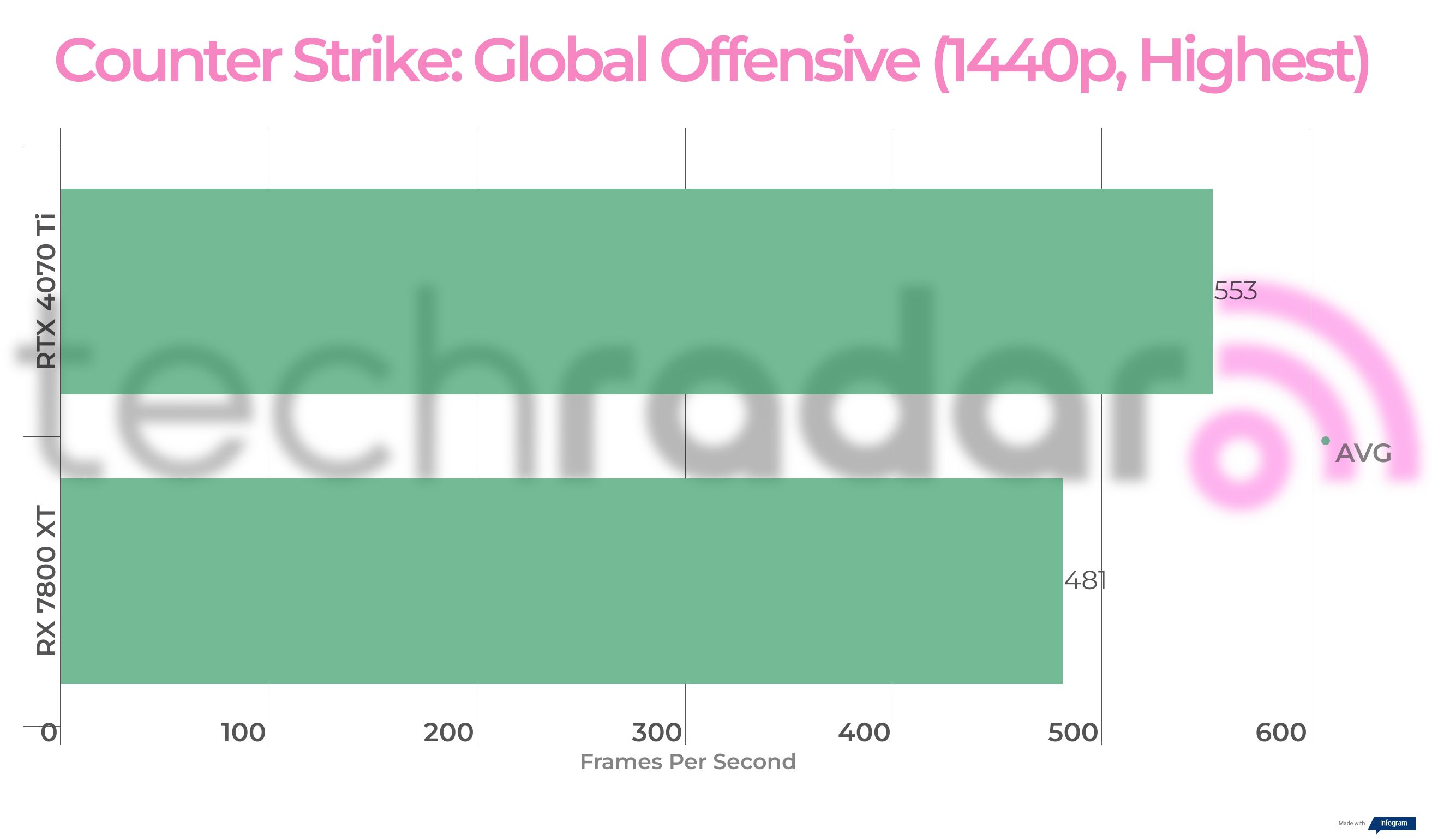
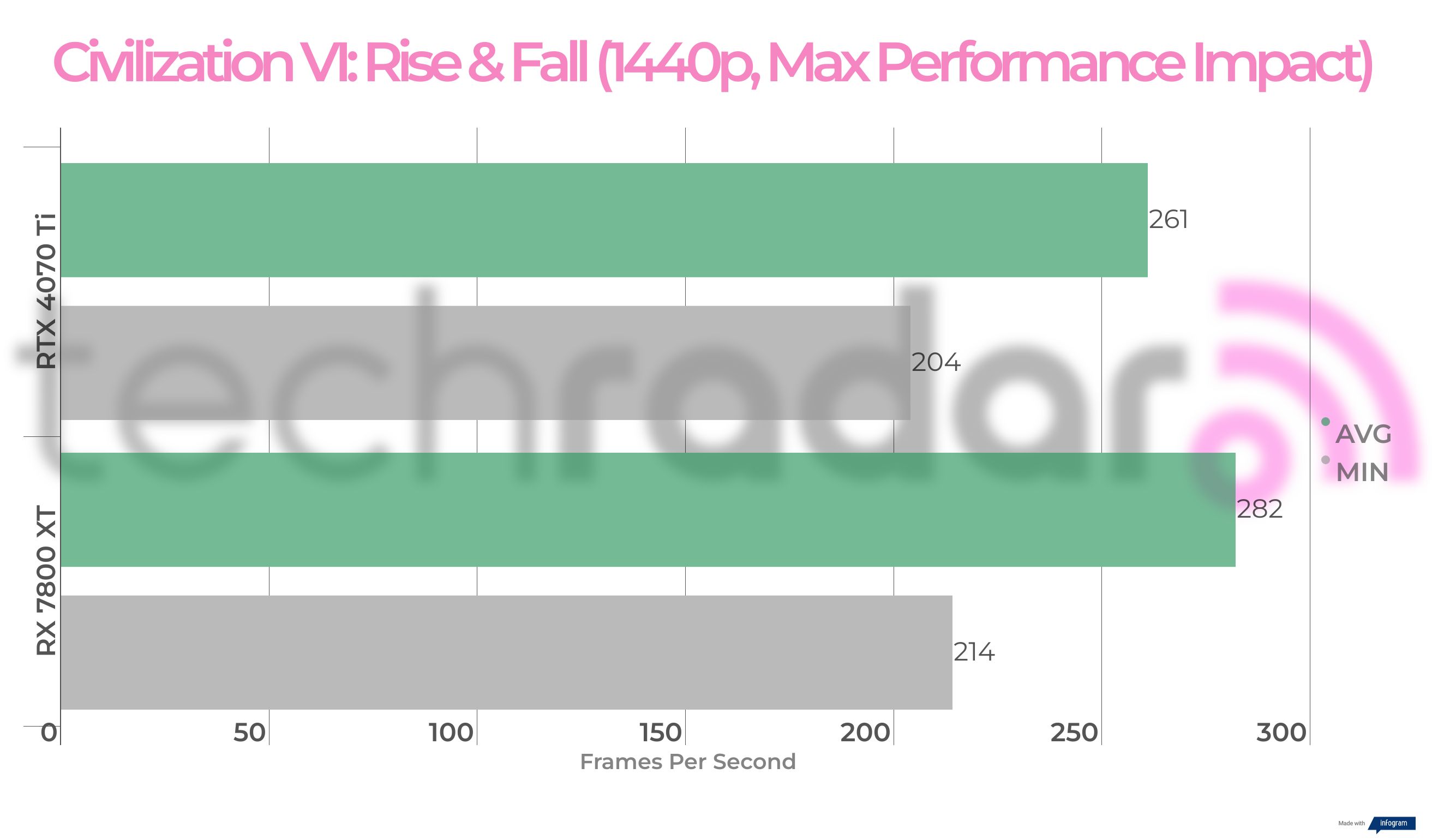
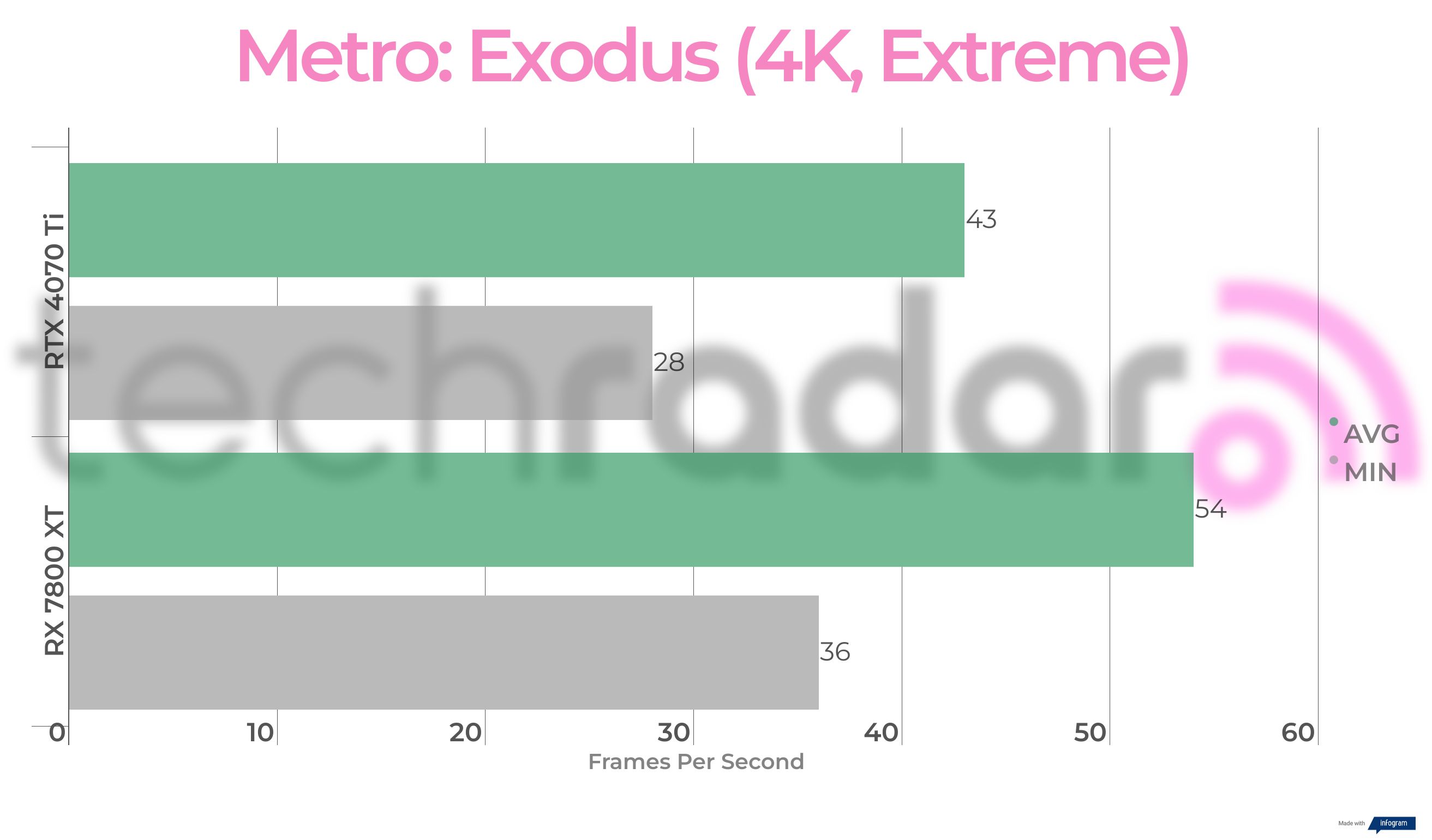
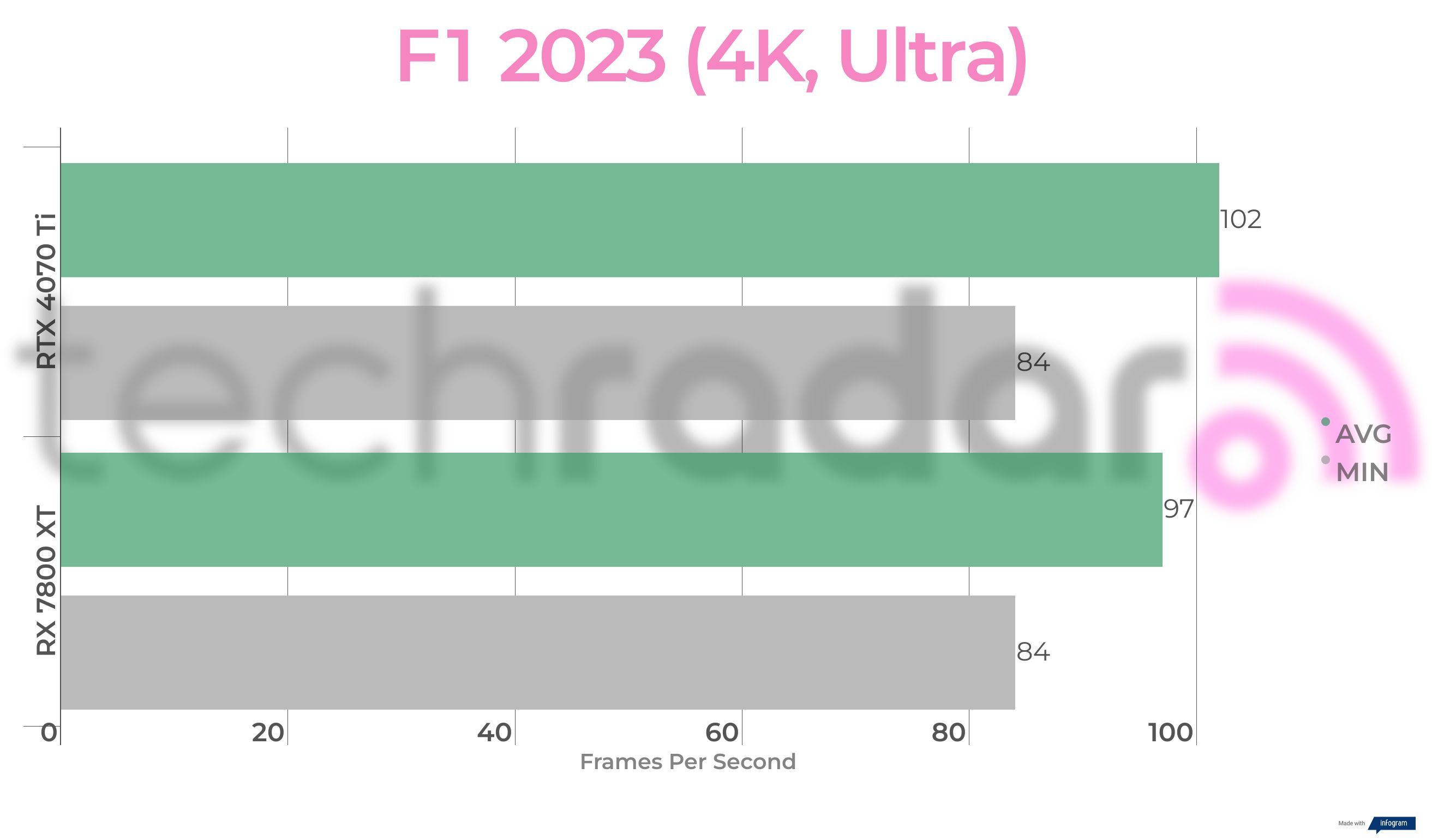
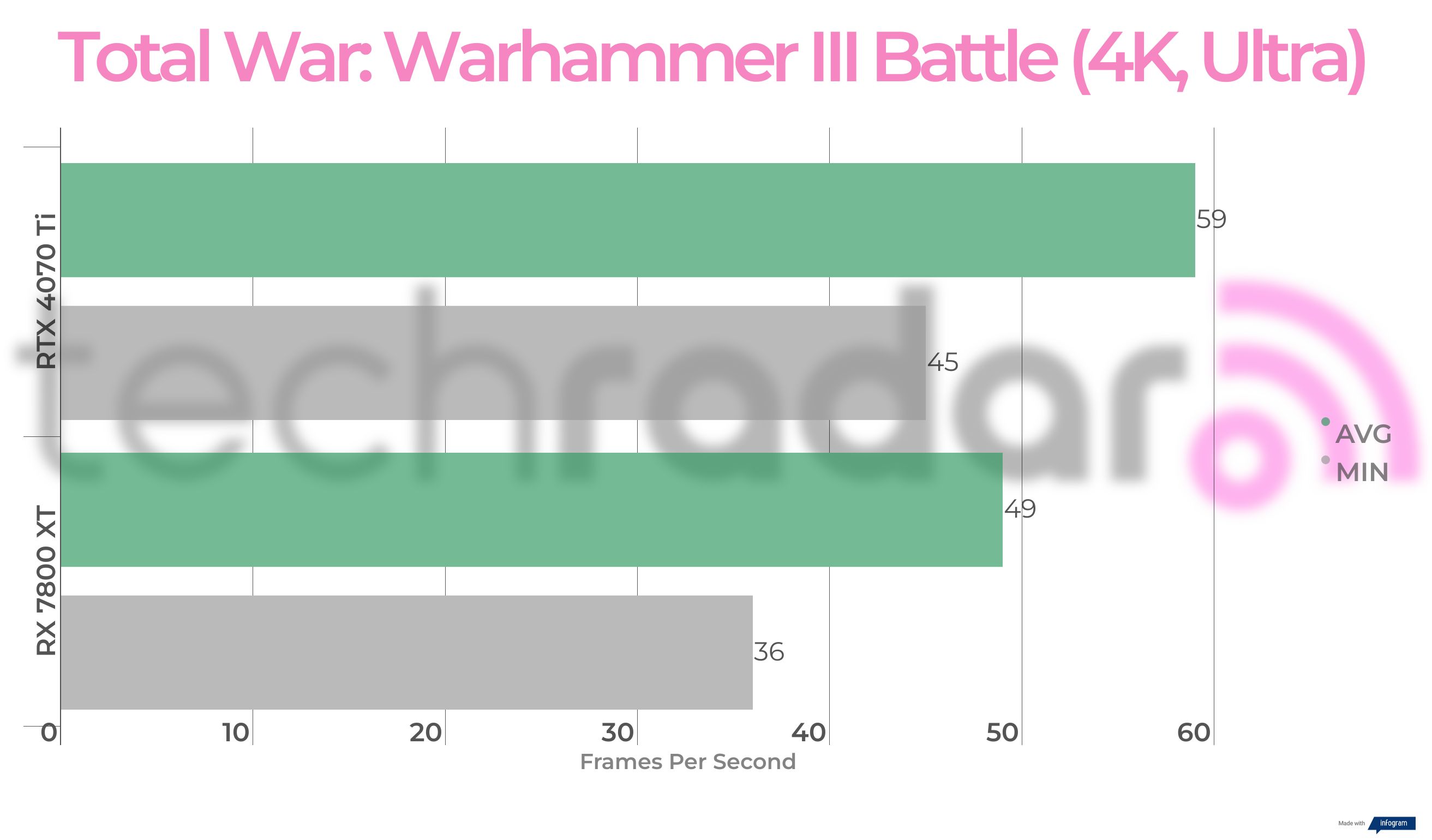
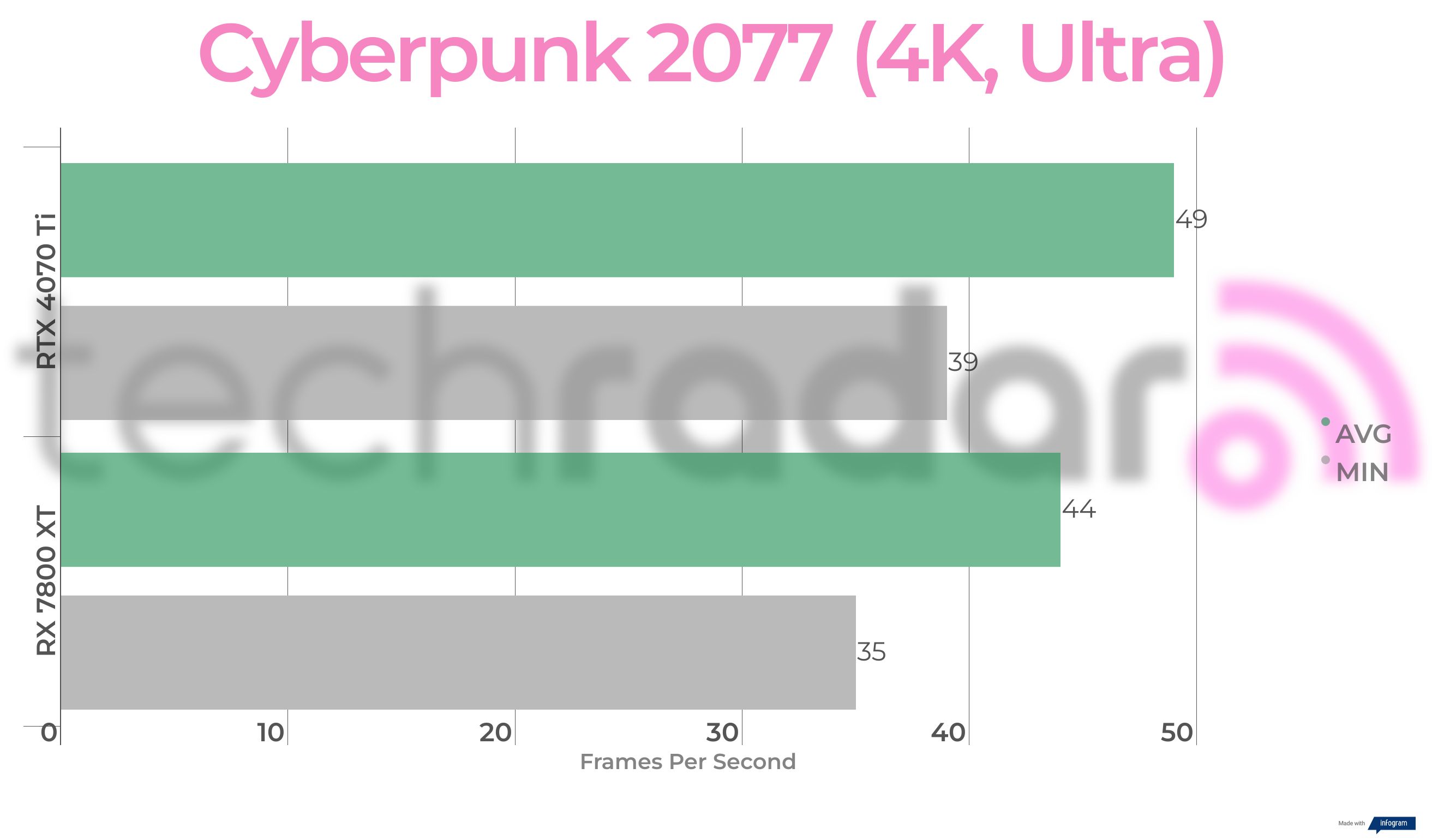
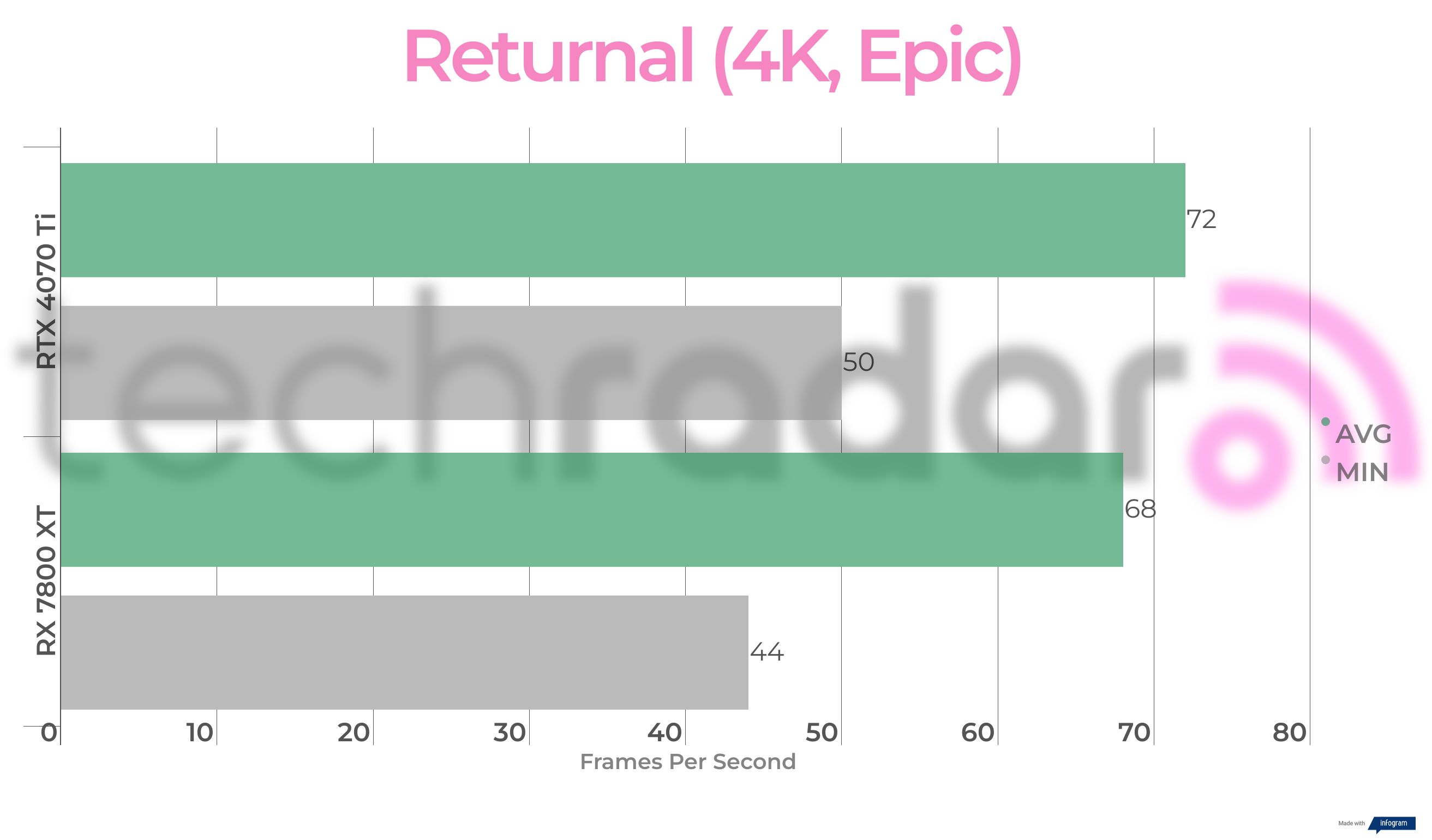
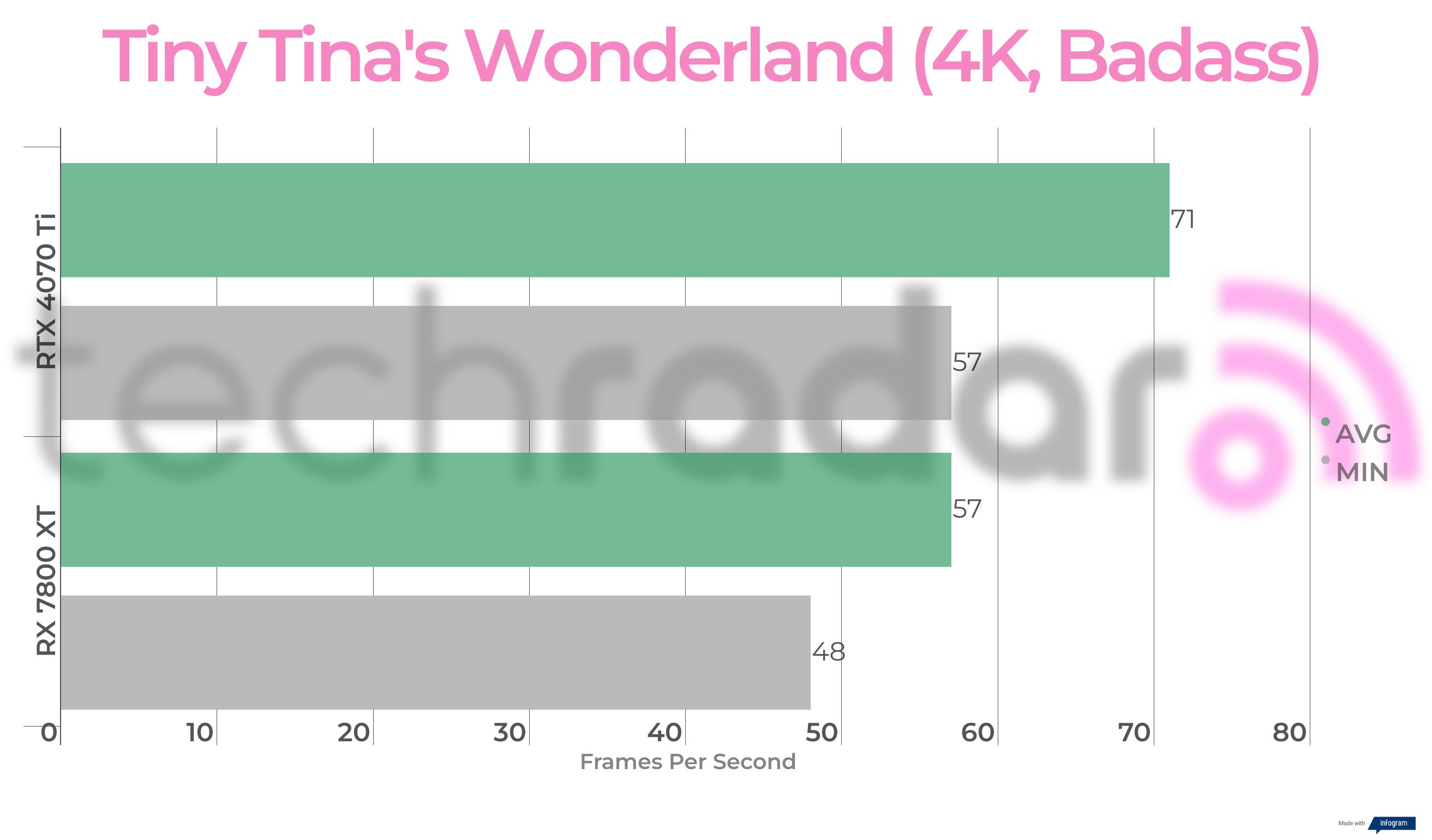
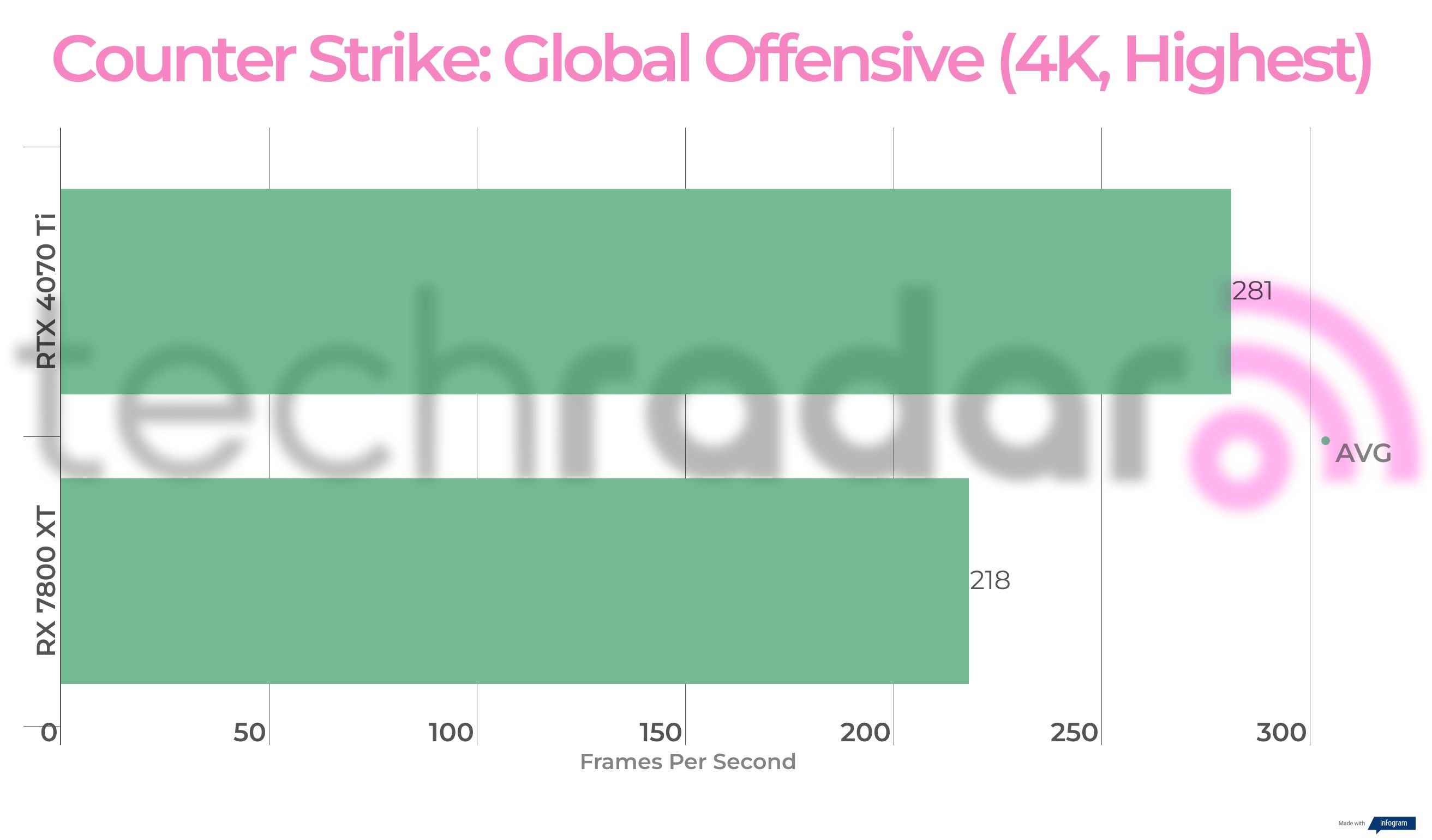
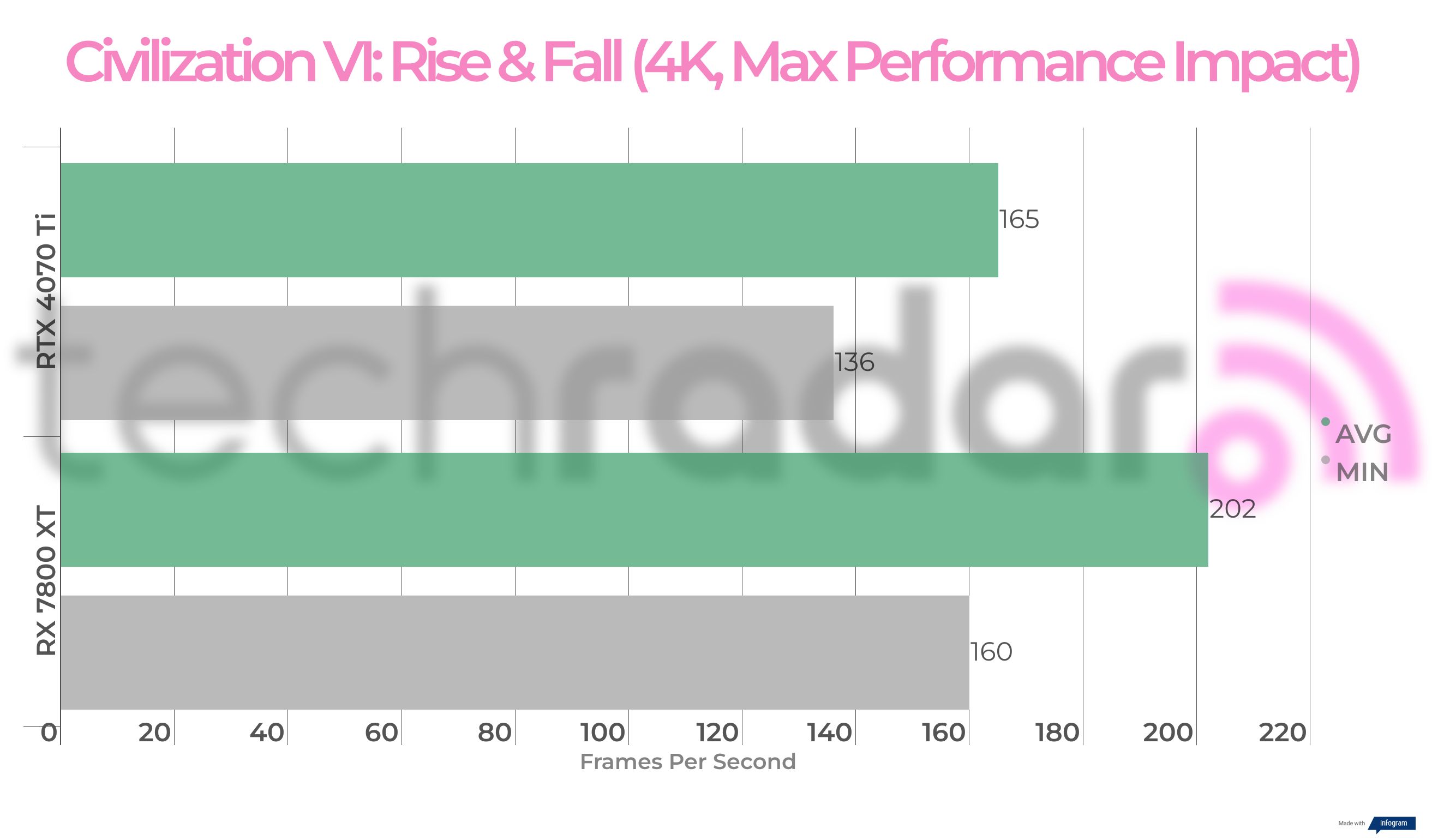
In gaming, you'd expect the RTX 4070 Ti to absolutely crush the RX 7800 XT, but that picture is somewhat more complicated. In pure rasterization performance, the RX 7800 XT manages to score a few wins, including in titles like Metro: Exodus on Extreme settings at 4K. It also comes in a very close second to the RTX 4070 Ti in Cyberpunk 2077, which is usually Nvidia's most dominant gaming benchmark.
While the RX 7800 XT still falls about 12.5% short of the RTX 4070 Ti in terms of non-ray-traced gaming performance, this is still a very decent showing against a card that is outside its weight class.
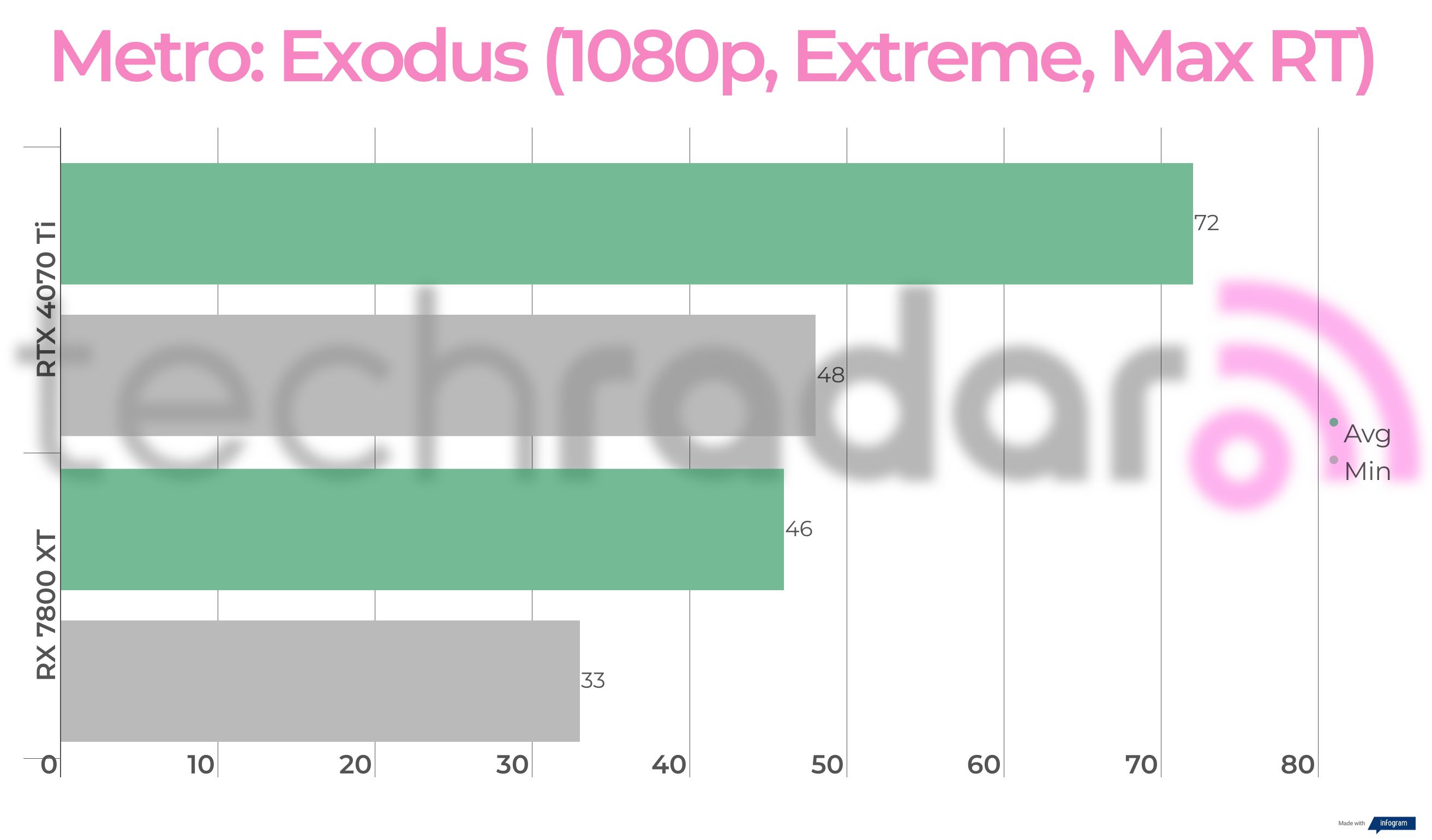

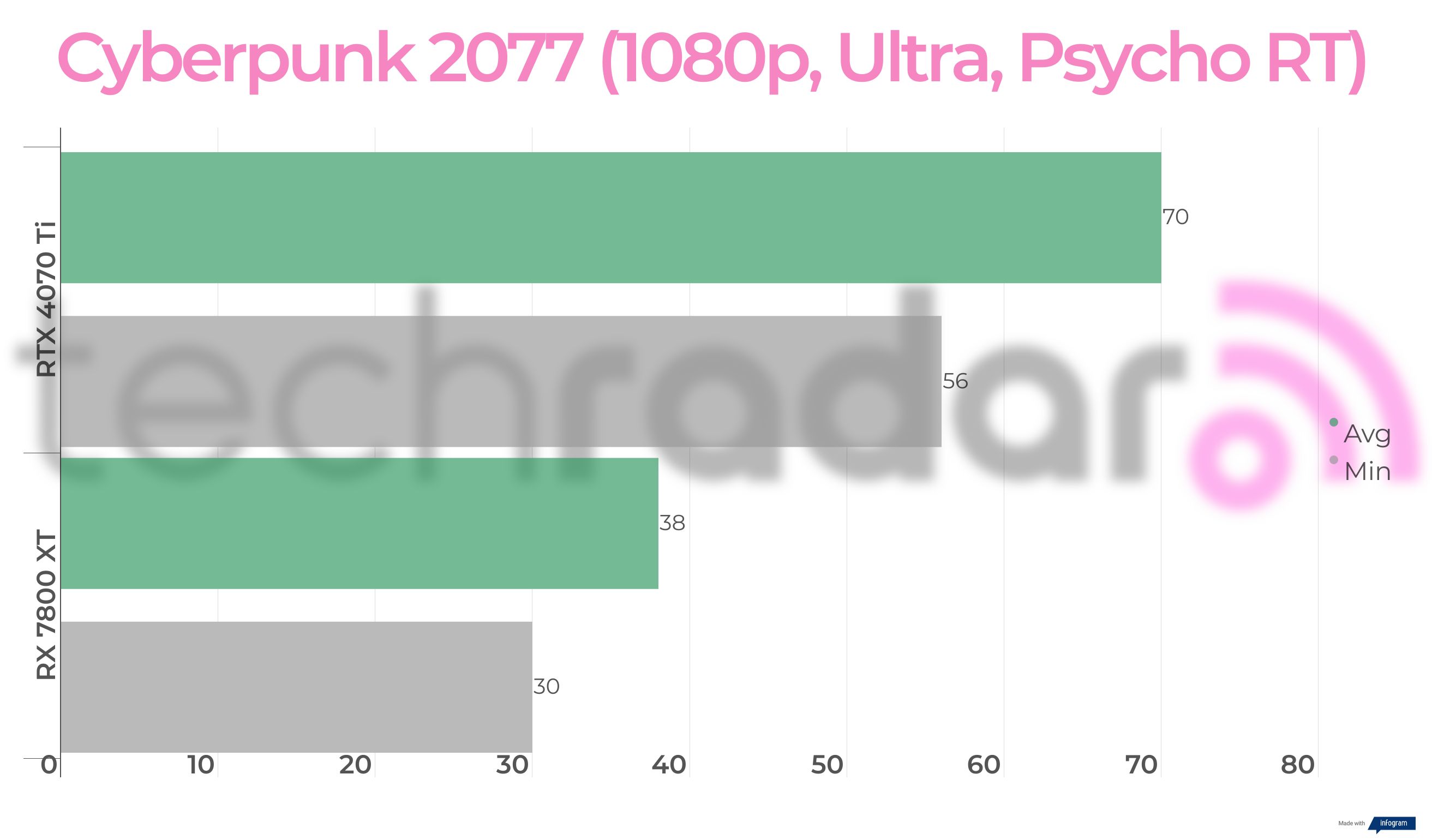
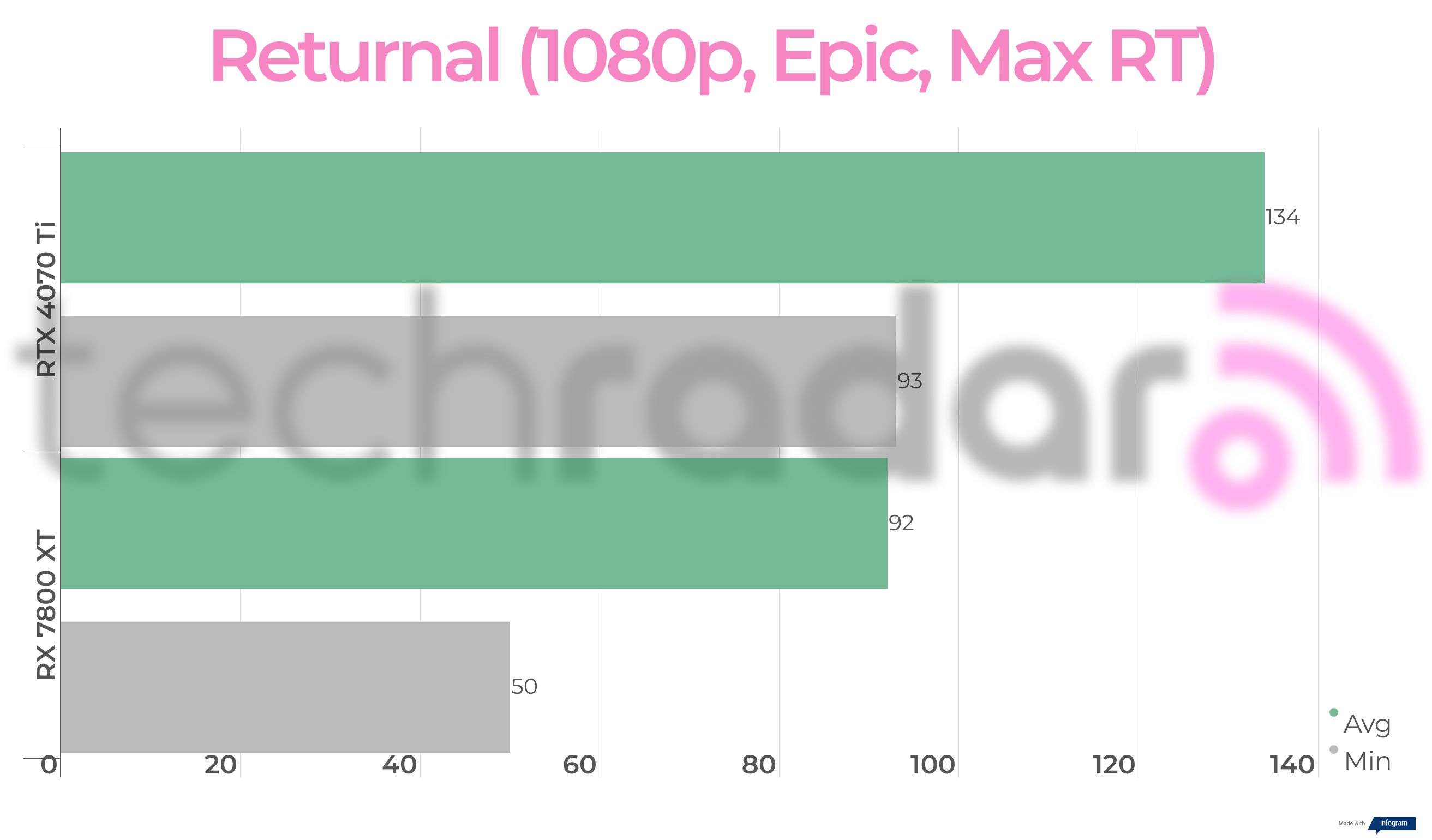
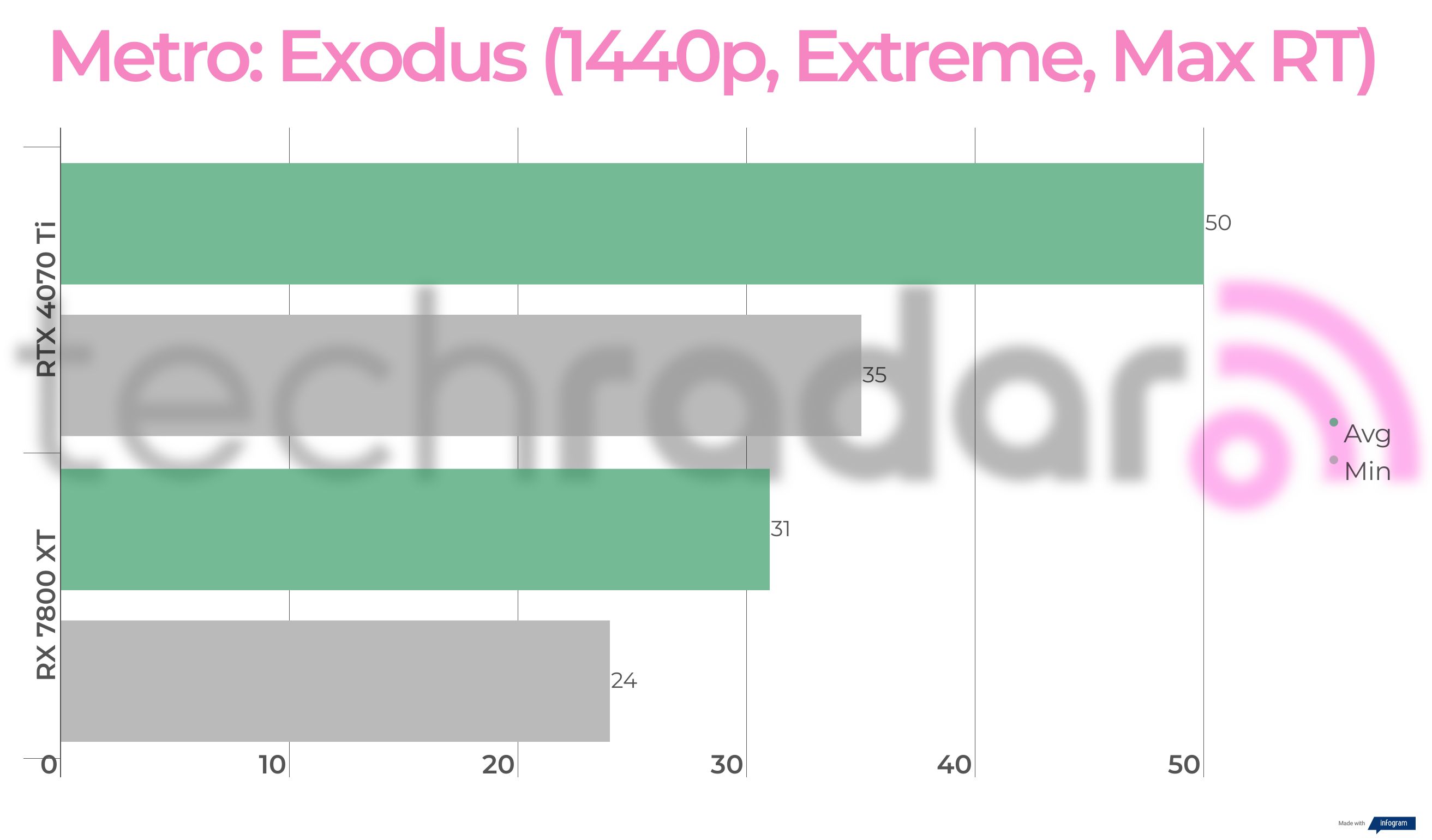
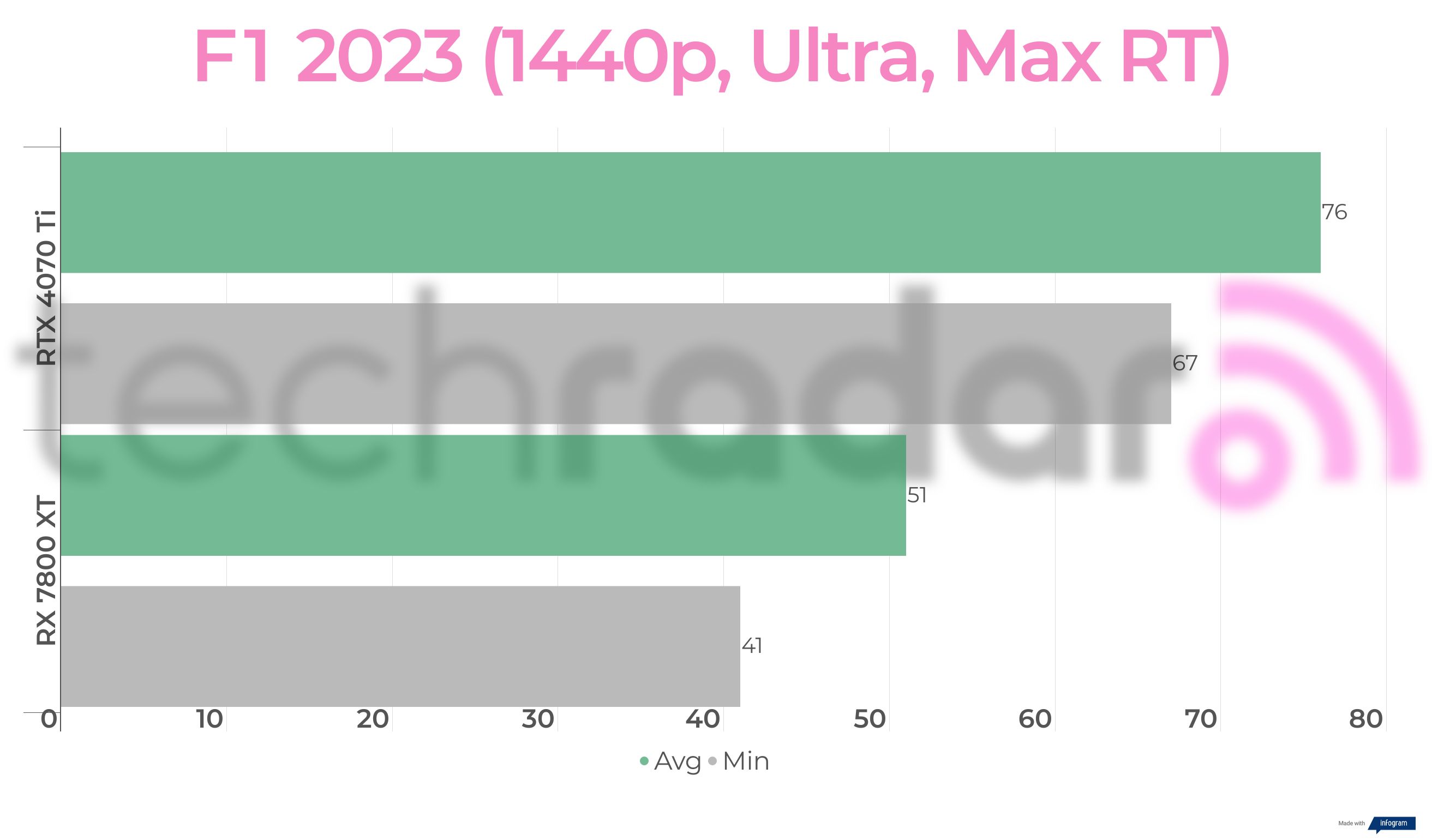


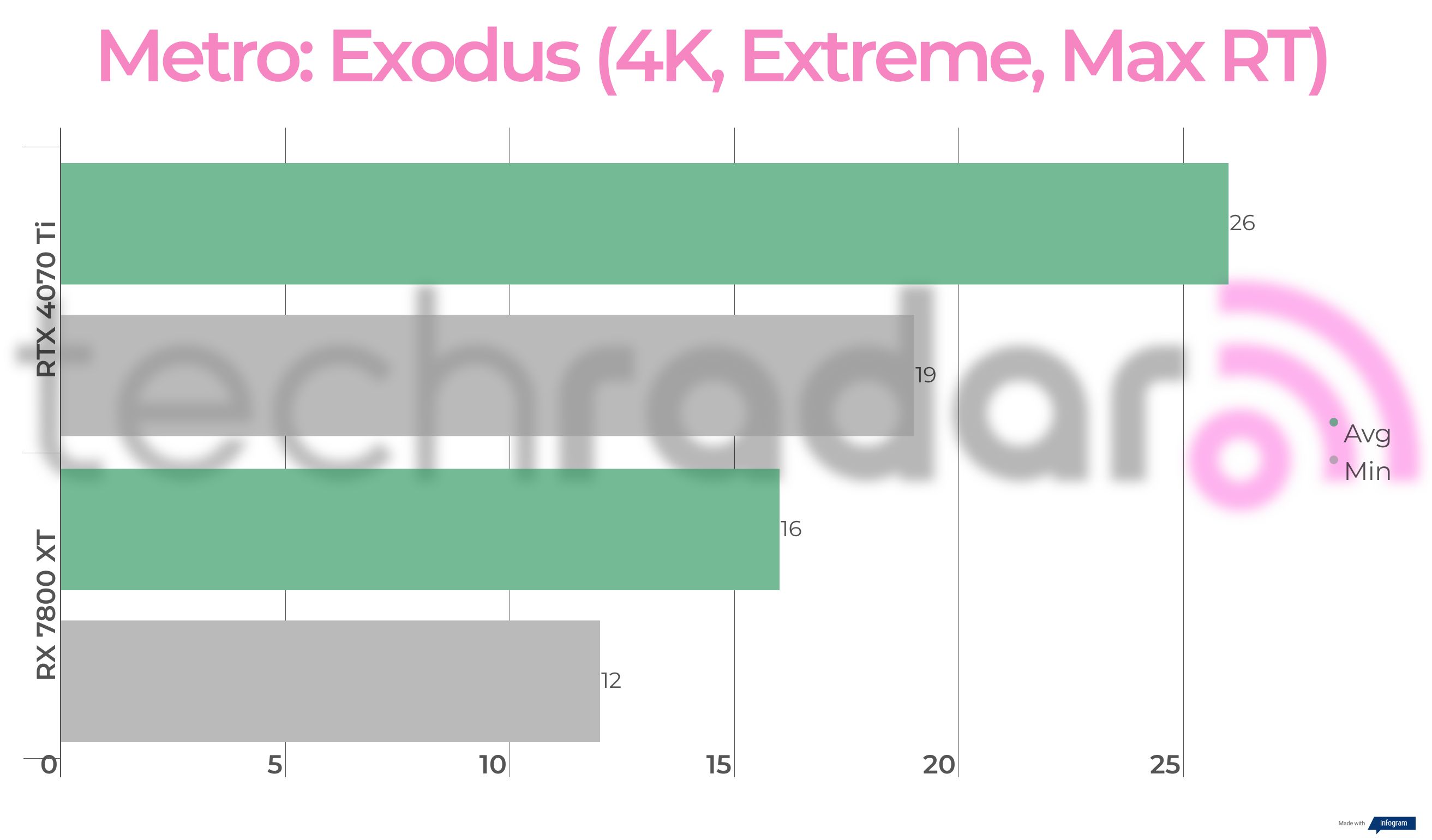
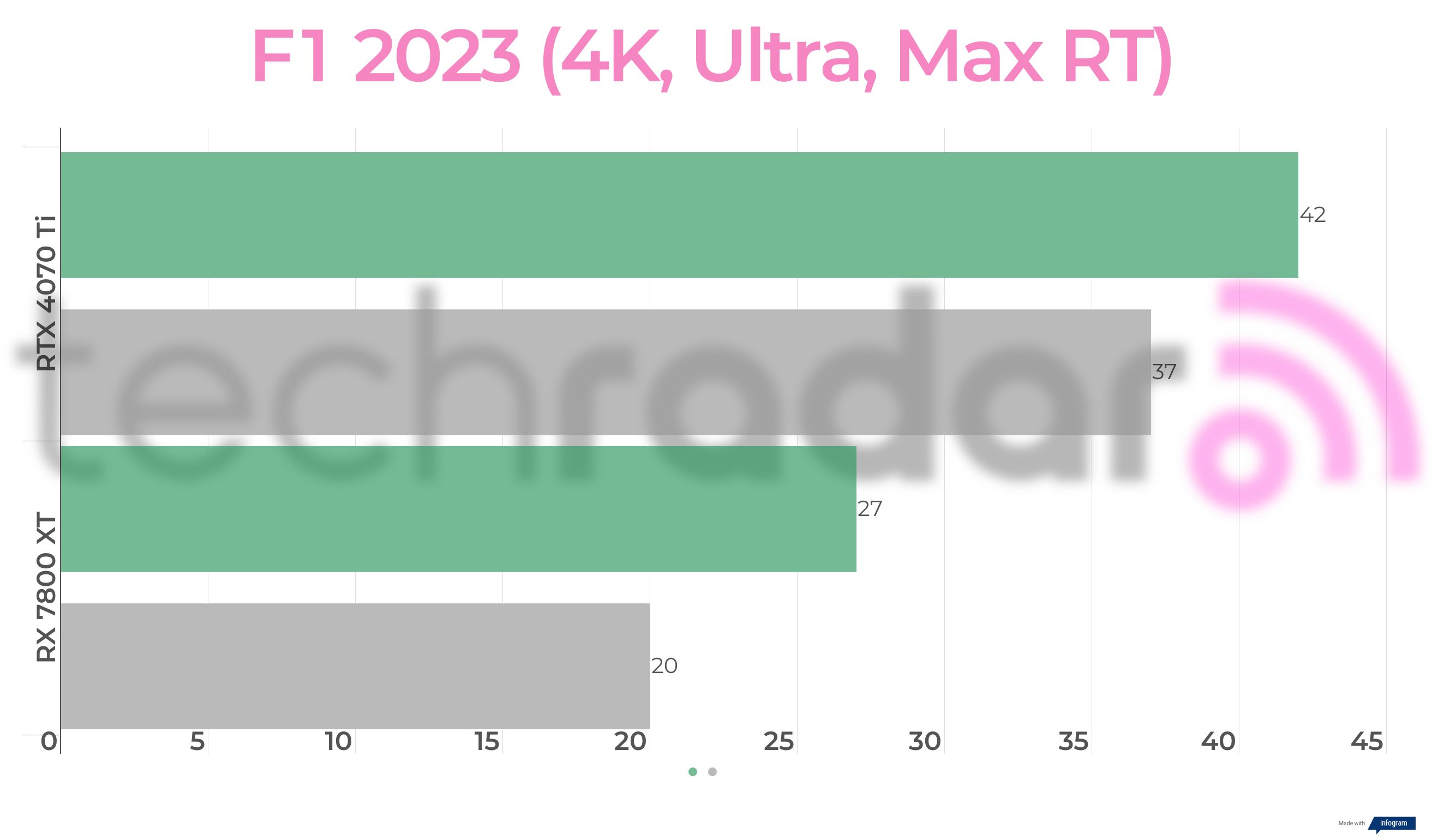
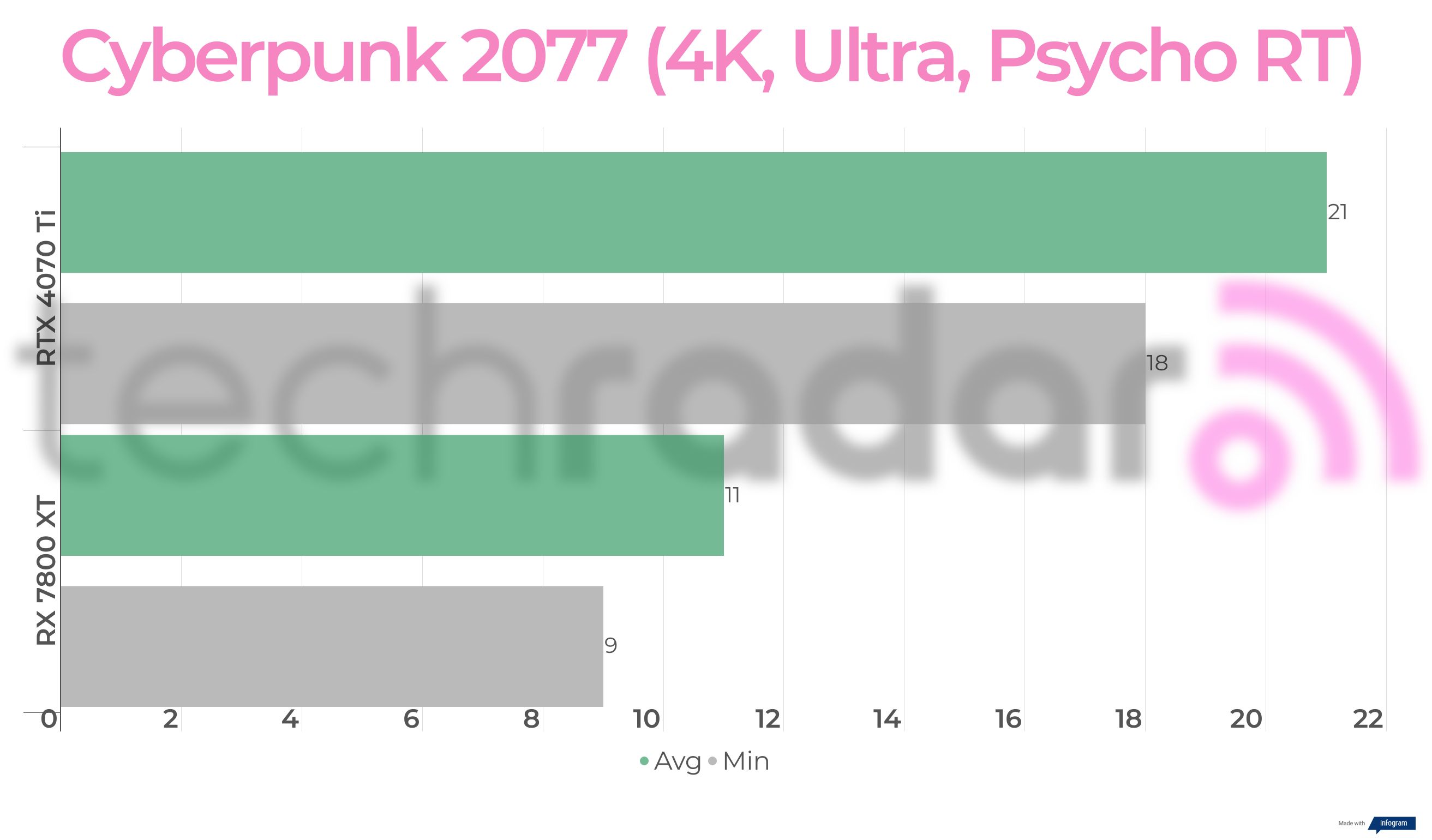
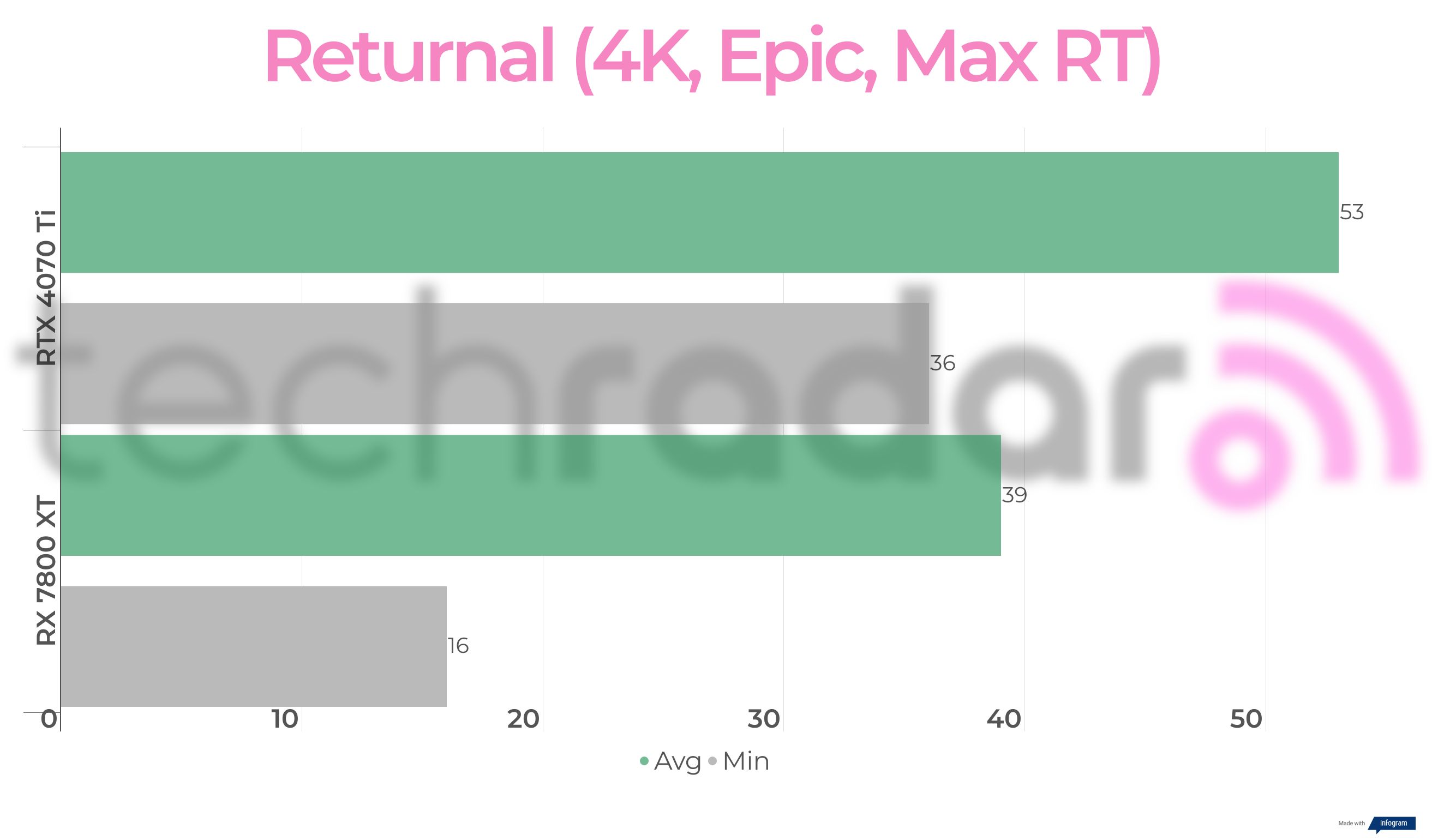
Turning to ray-traced gaming, however, and it's all over but for the crying. Across every benchmark at every resolution, the RX 7800 XT doesn't even come close to the RTX 4070 Ti. On average, the RX 7800 XT performs about 36% worse when ray tracing than the RTX 4070 Ti.
Using FSR 2 does help things, but when factoring in both FSR 2 and DLSS 3 (no Frame Generation) on balanced settings, the RX 7800 XT comes closest to the RTX 4070 Ti (about 6% lower) when not ray tracing, but still 32% lower performance than the RTX 4070 Ti when ray tracing is turned up to max.
Given the price difference, the RX 7800 XT does put up decent numbers against the RTX 4070 Ti, but these two cards really just aren't in the same class performance-wise.
- Winner: Nvidia RTX 4070 Ti
Which one should you buy?
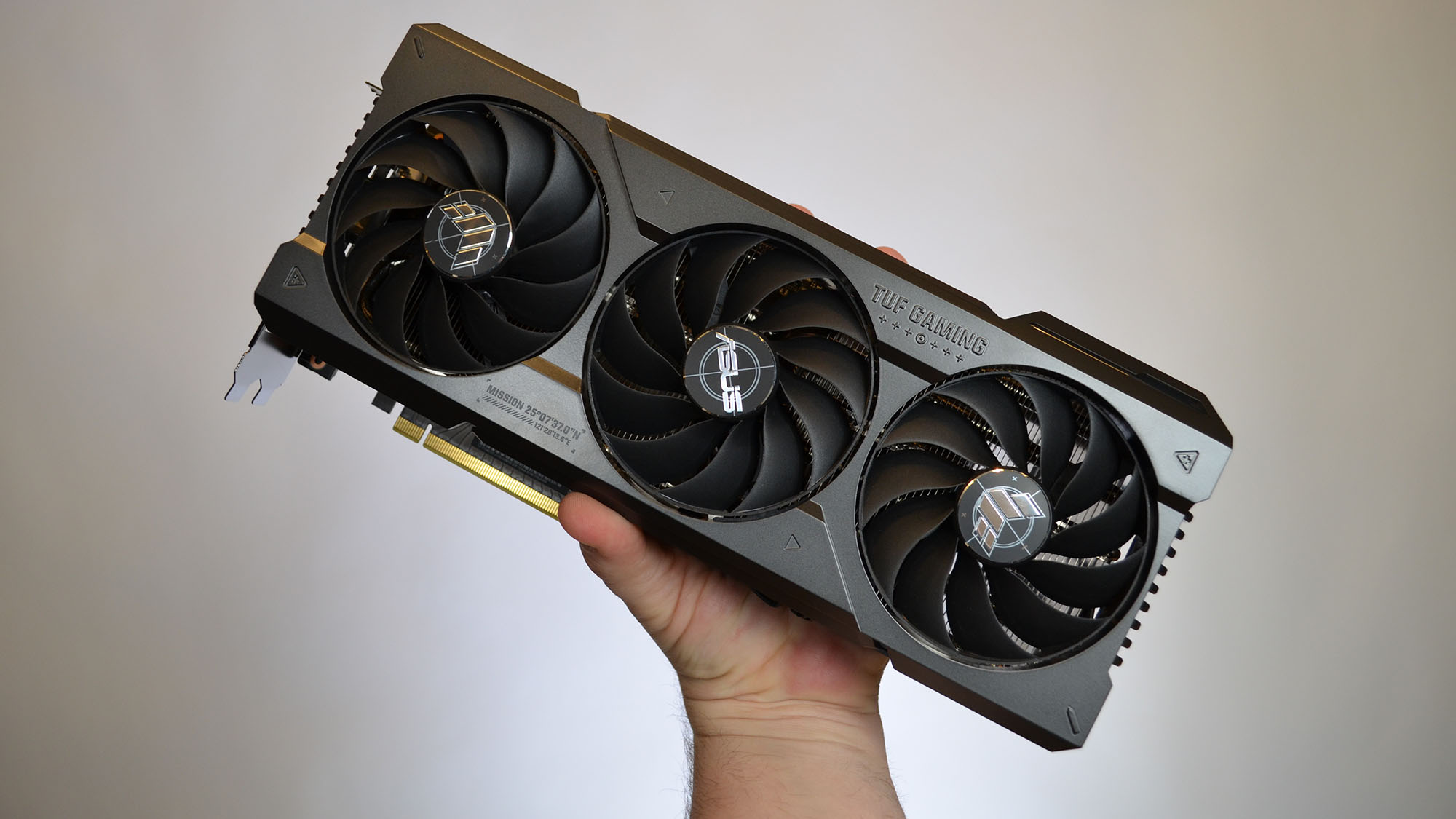
If price is your main concern, then the AMD Radeon RX 7800 XT is going to be a very good option for you, though you're going to have to accept a lower level of absolute performance than the RTX 4070 Ti, especially in creative workloads.
If raw performance is your main priority, there's no question that the RTX 4070 Ti is the superior card. While the RX 7800 XT does give the RTX 4070 Ti some fight on a couple of gaming benchmarks, generally speaking, the RX 7800 XT isn't competitive, and the RTX 4070 Ti is absolutely the card to opt for, just be willing to pay something of a premium for that extra performance.
Get daily insight, inspiration and deals in your inbox
Sign up for breaking news, reviews, opinion, top tech deals, and more.

John (He/Him) is the Components Editor here at TechRadar and he is also a programmer, gamer, activist, and Brooklyn College alum currently living in Brooklyn, NY.
Named by the CTA as a CES 2020 Media Trailblazer for his science and technology reporting, John specializes in all areas of computer science, including industry news, hardware reviews, PC gaming, as well as general science writing and the social impact of the tech industry.
You can find him online on Bluesky @johnloeffler.bsky.social